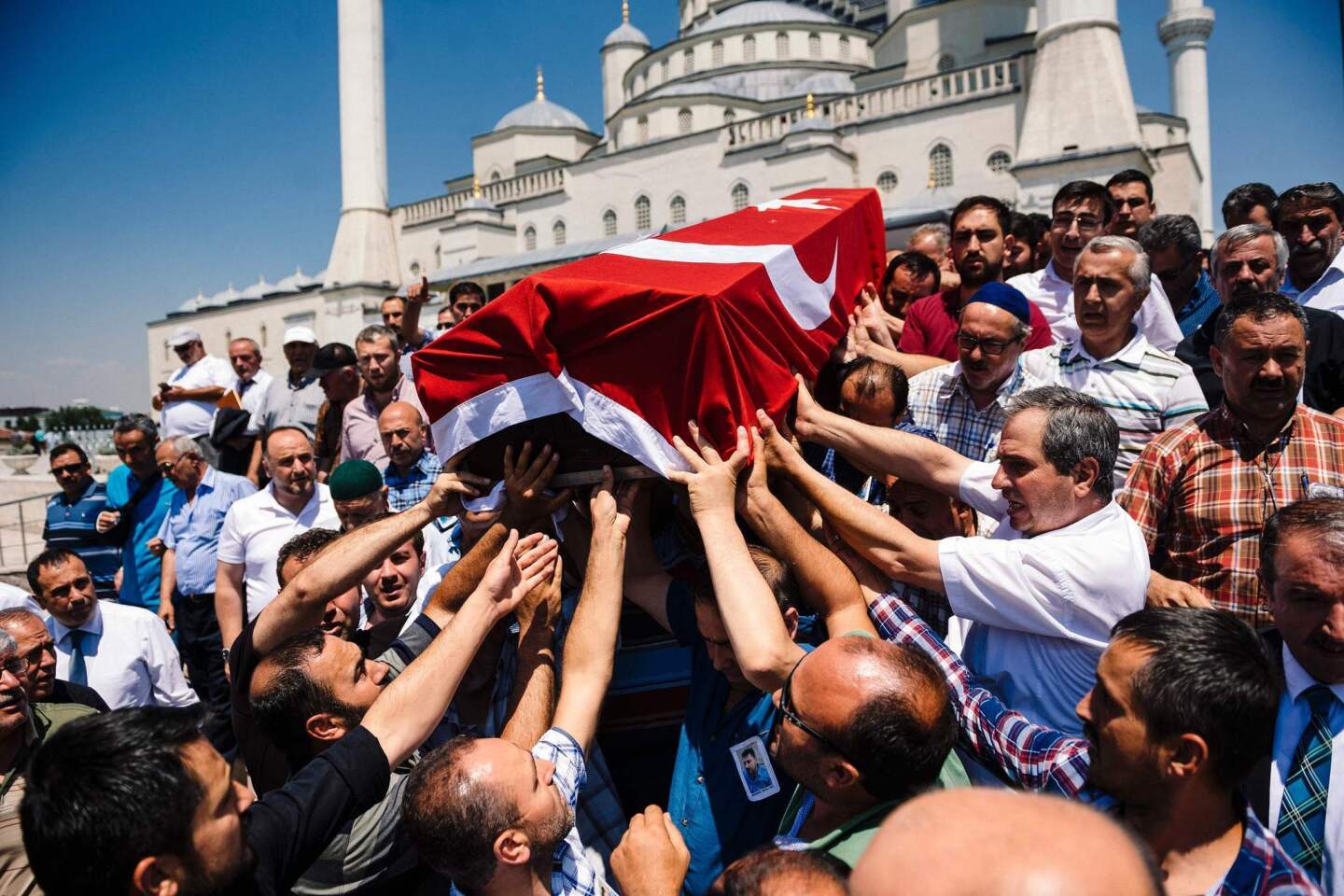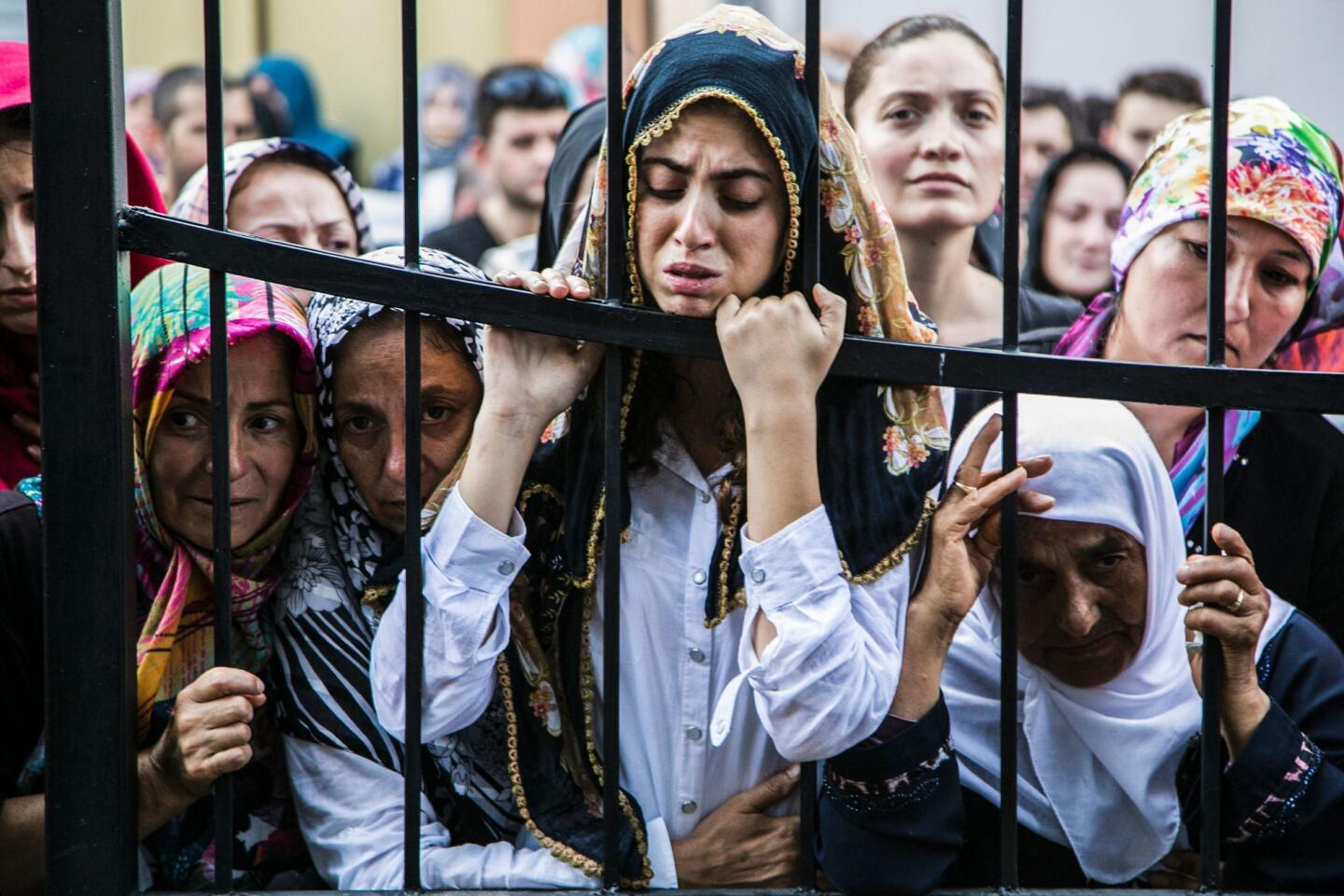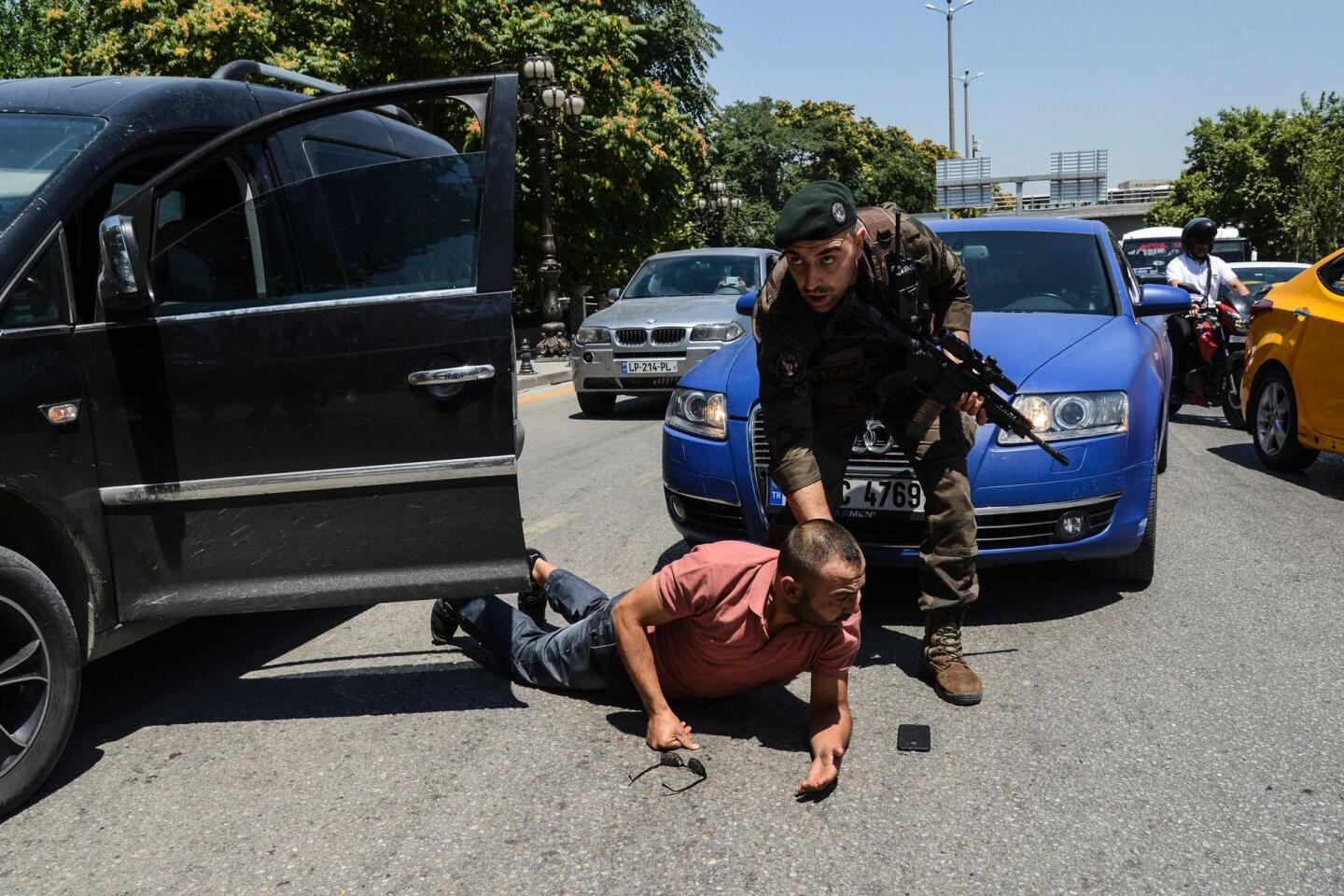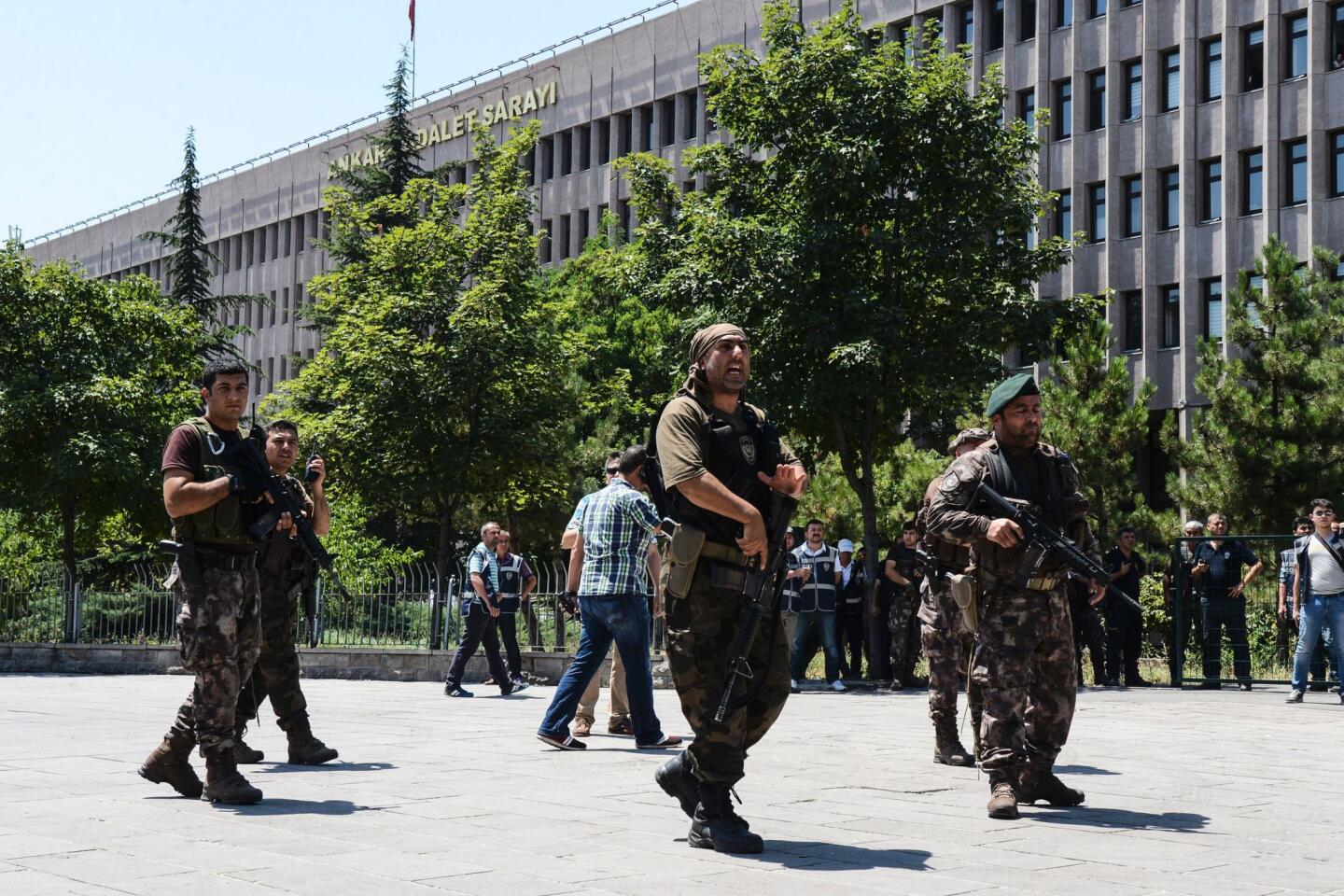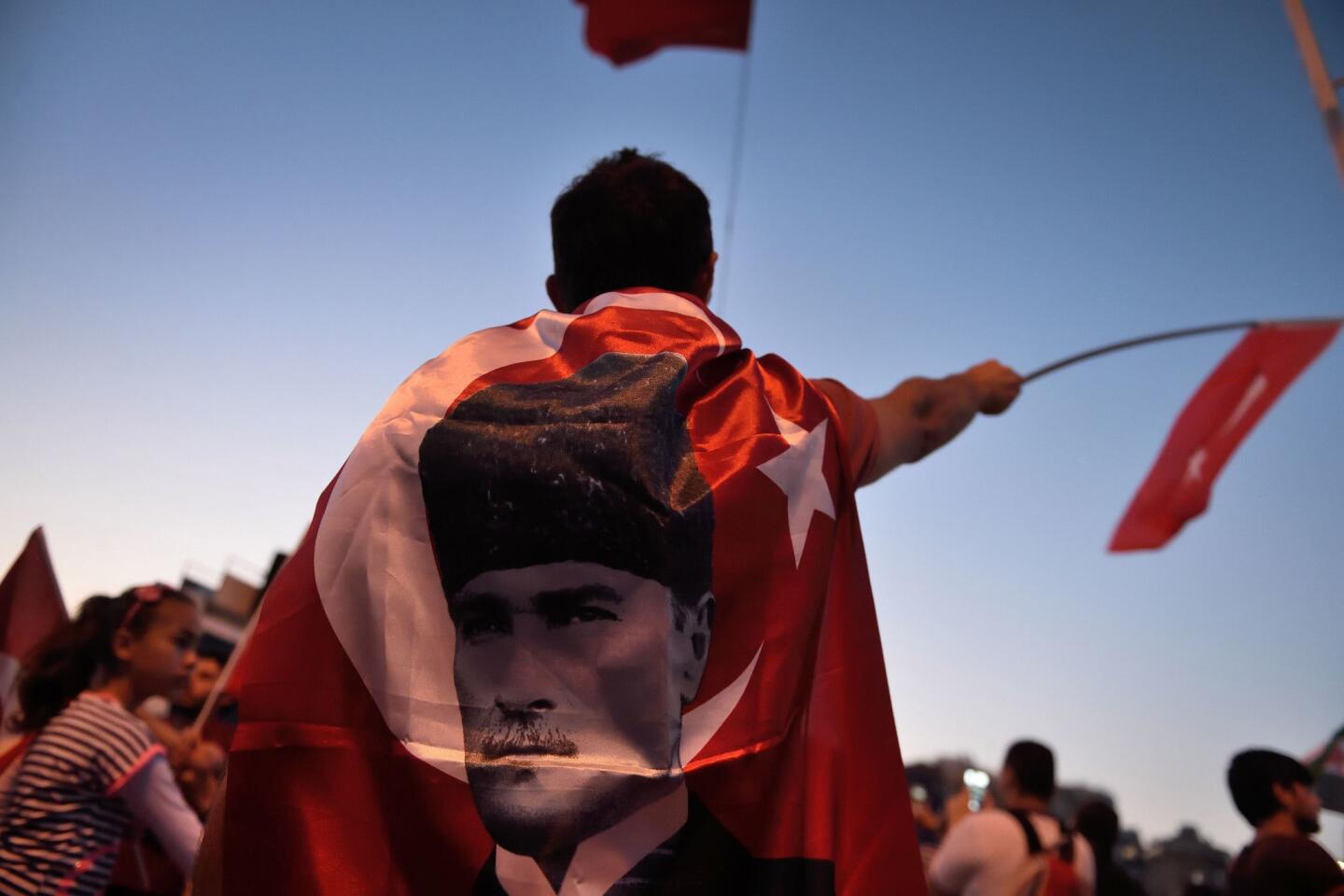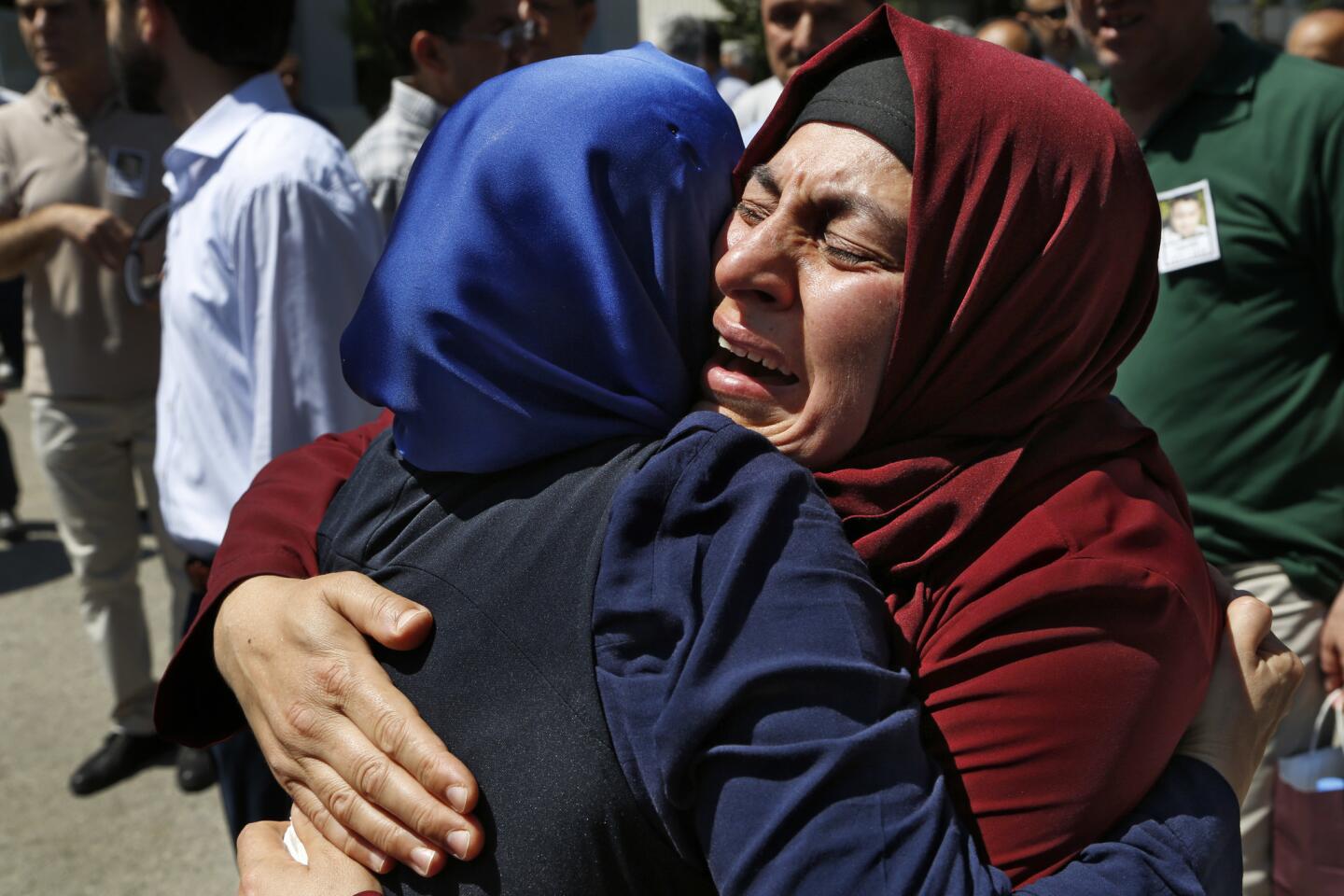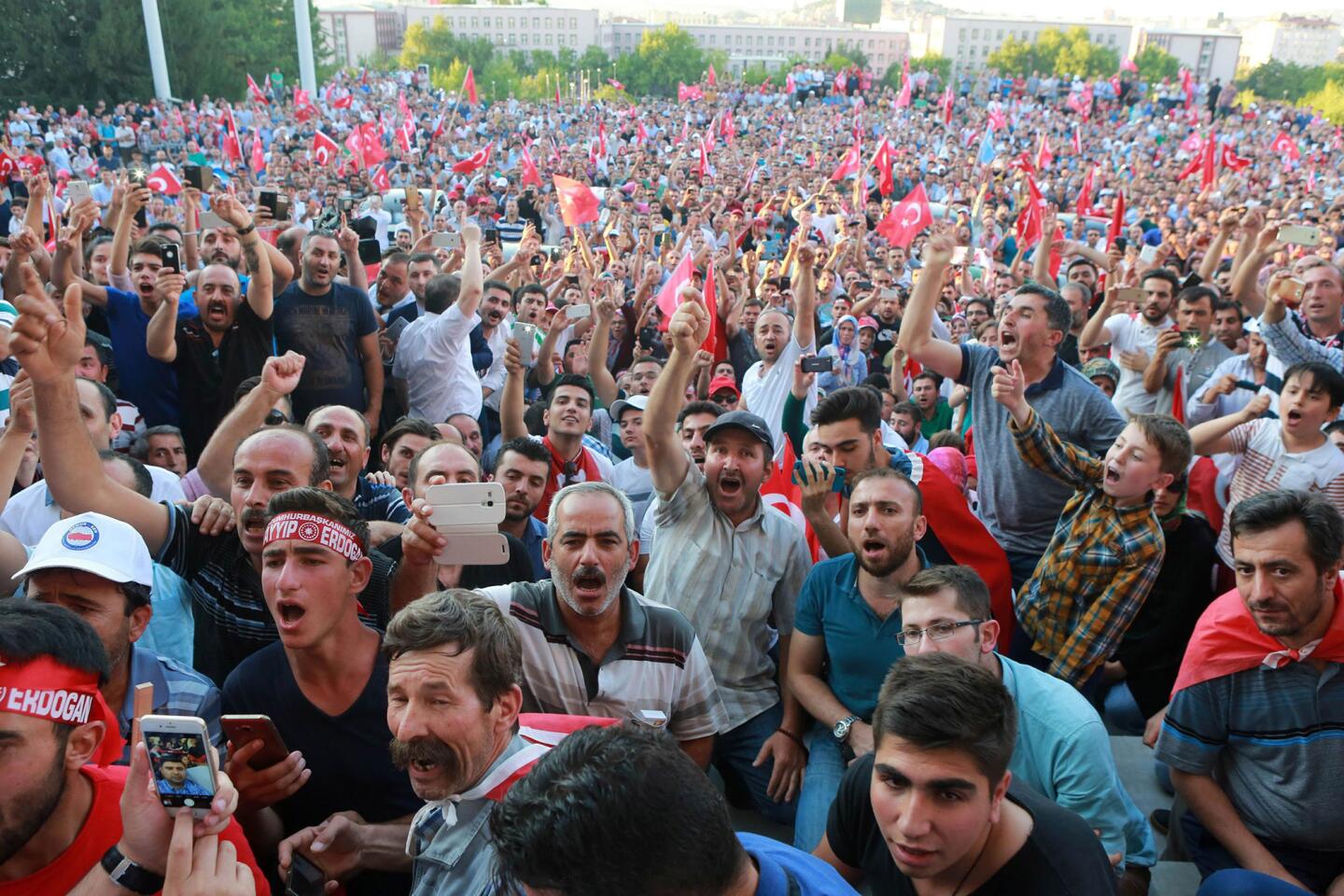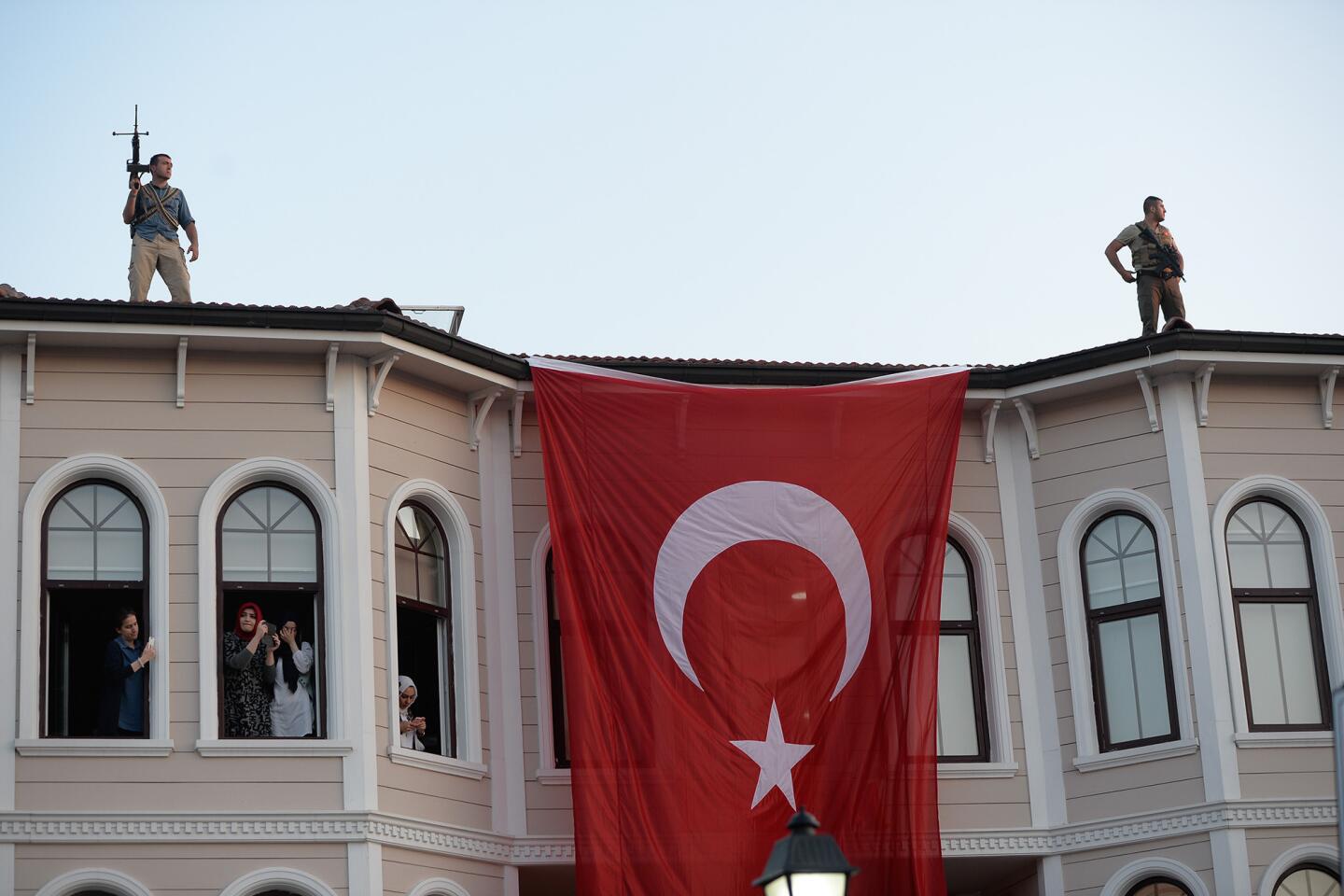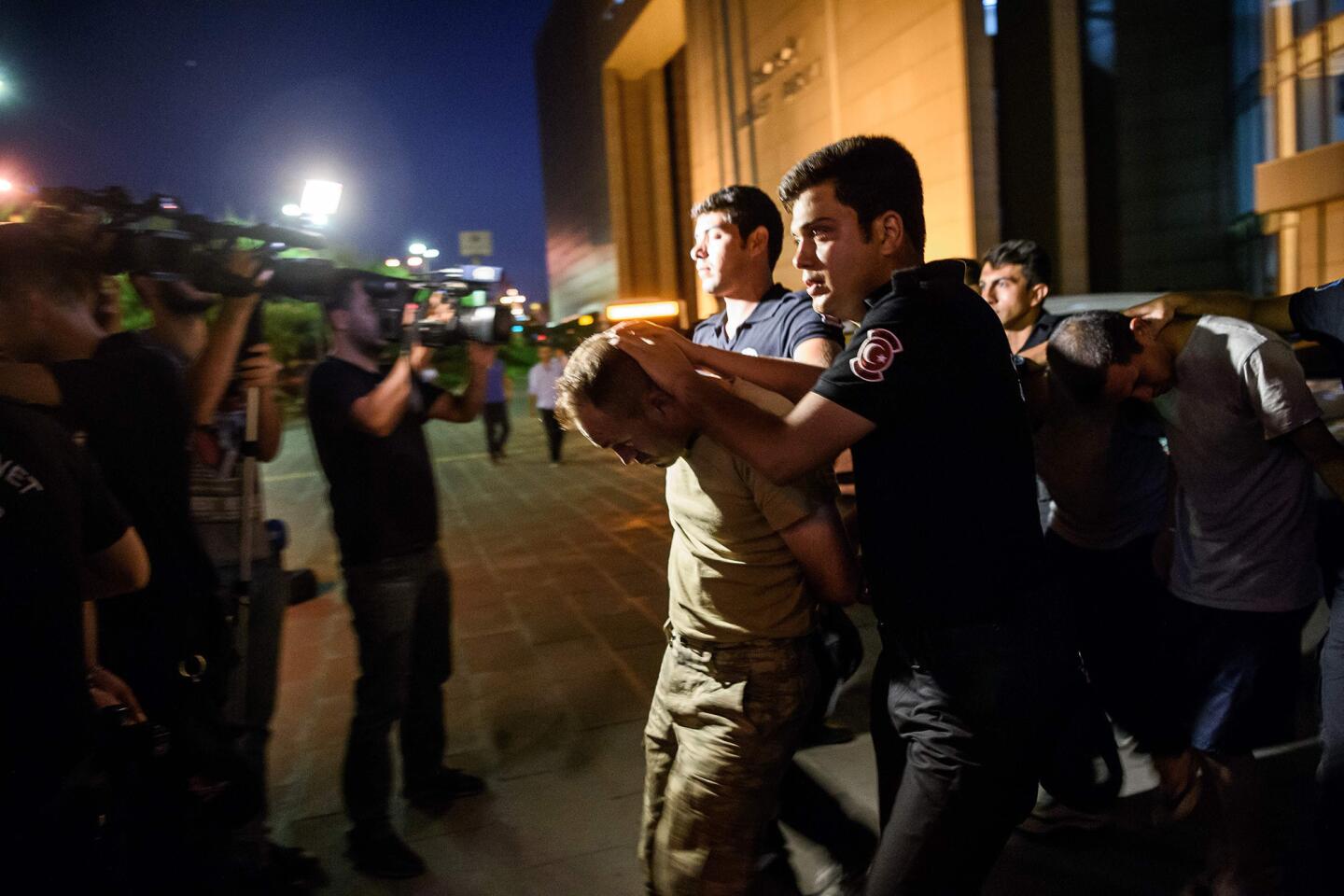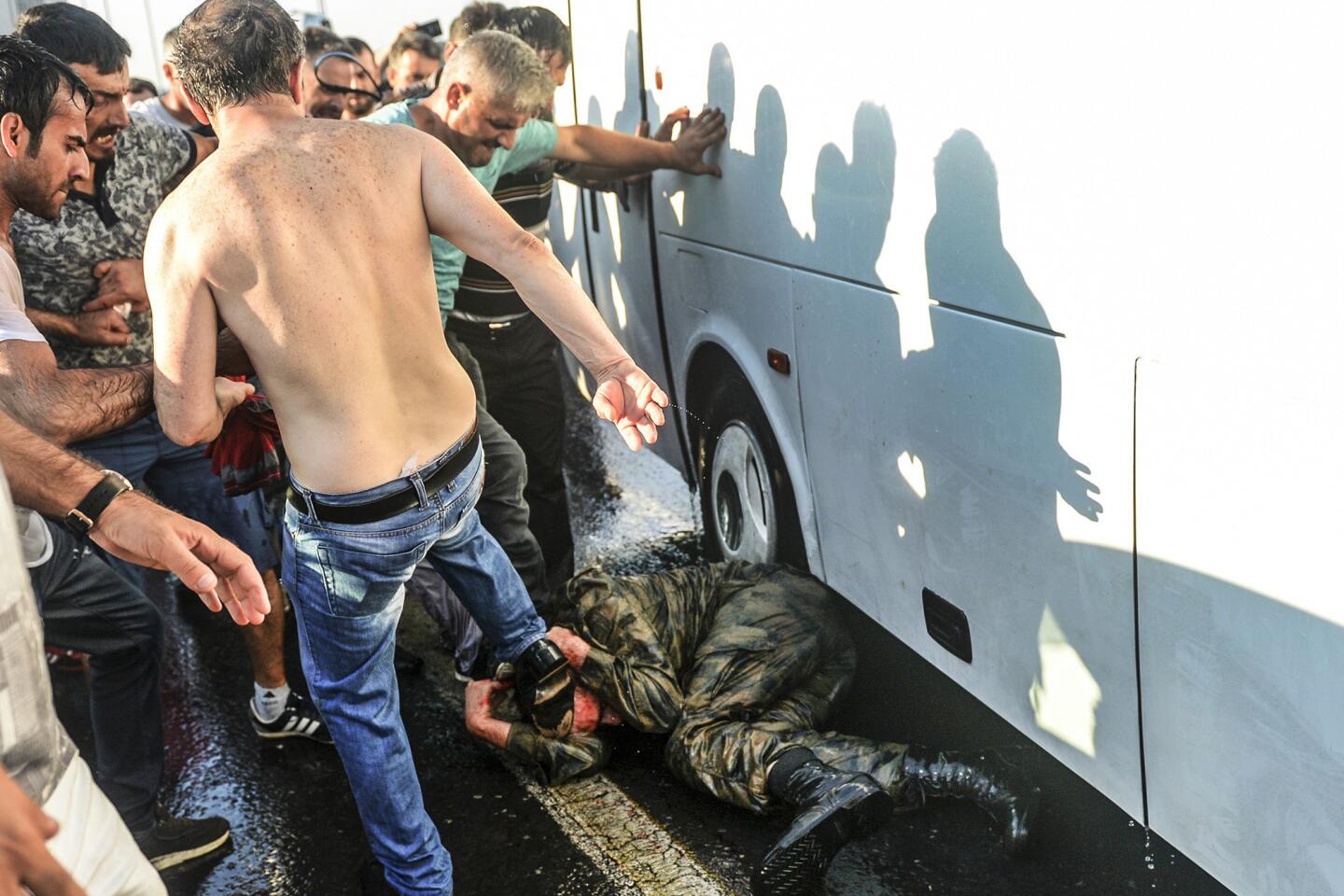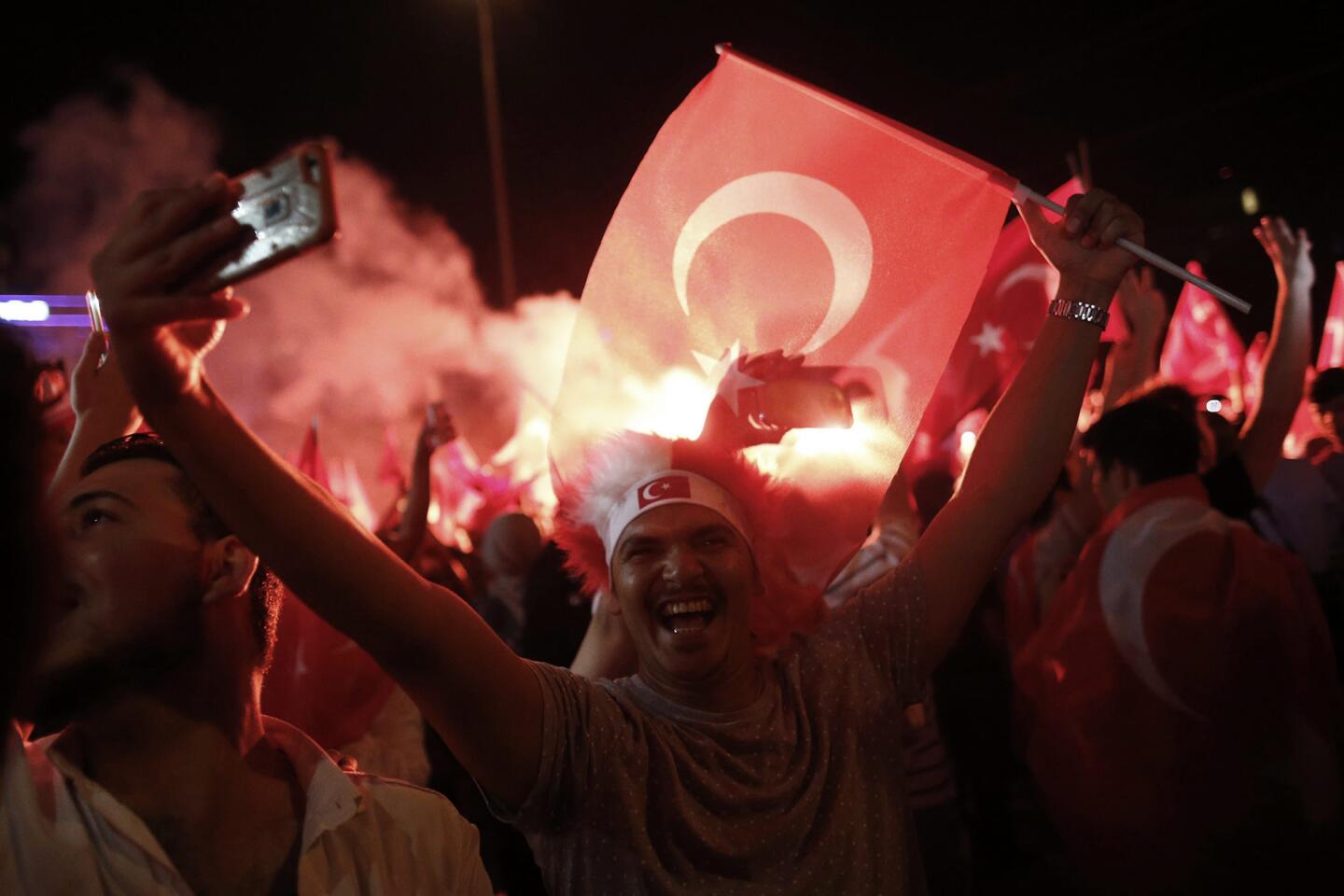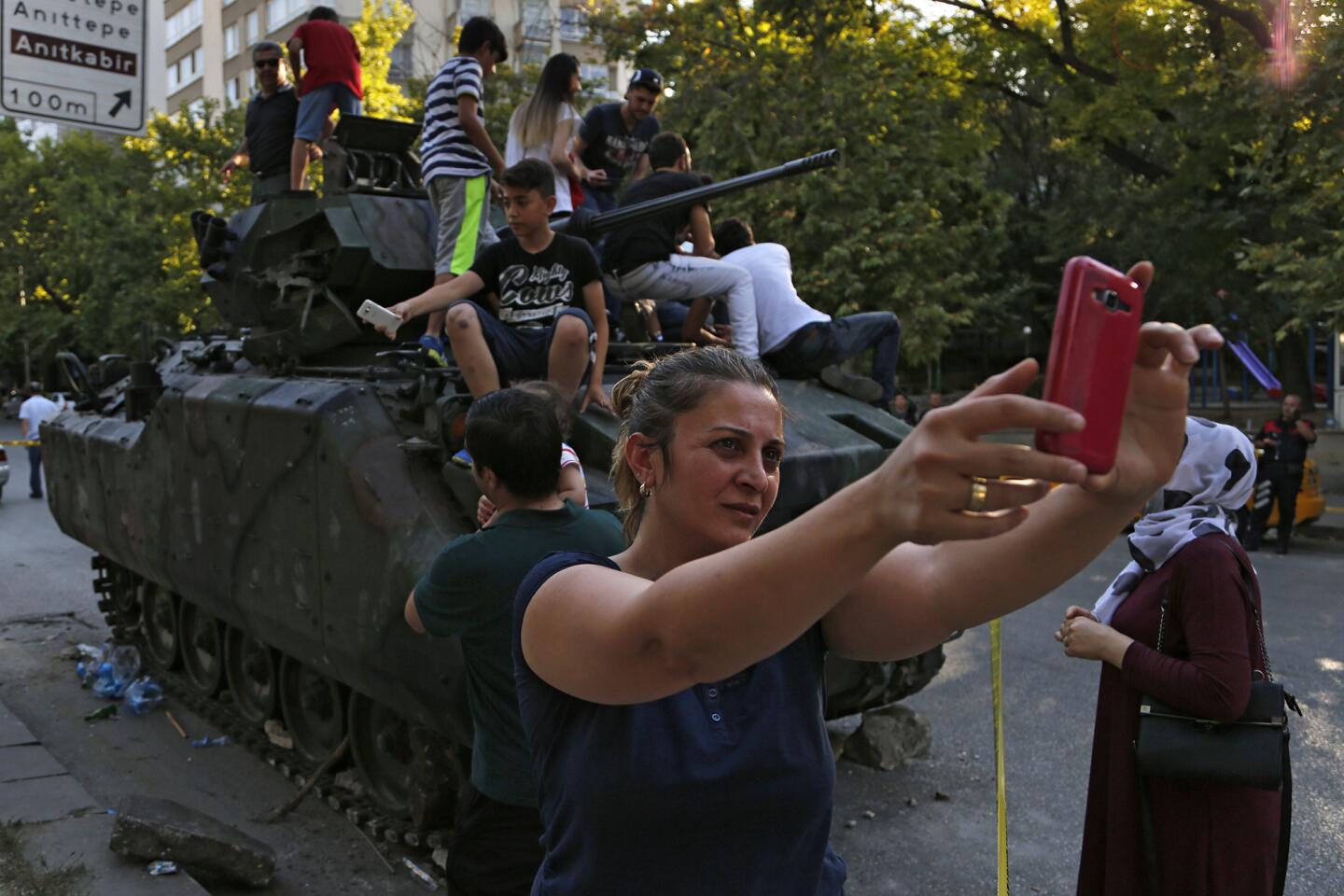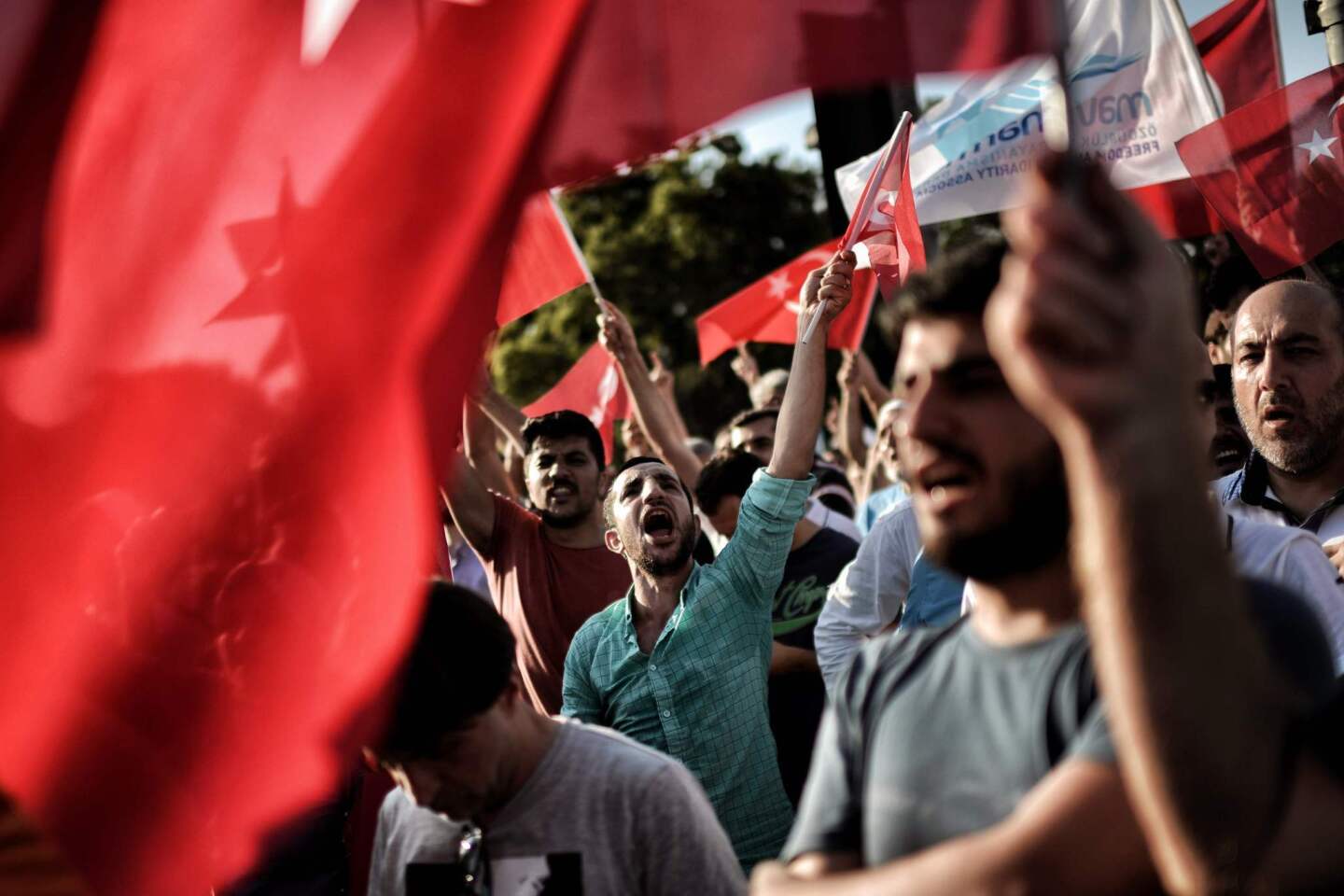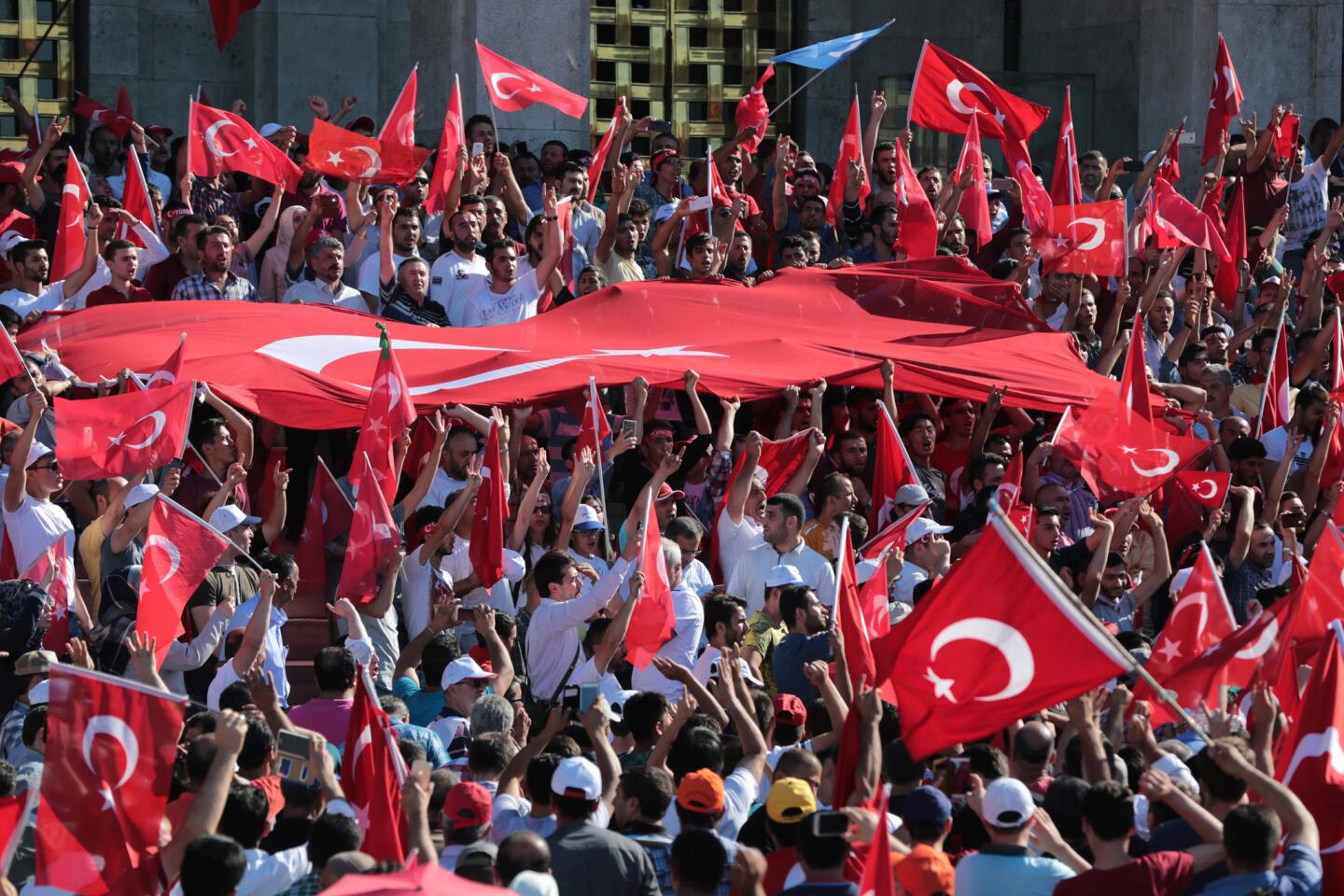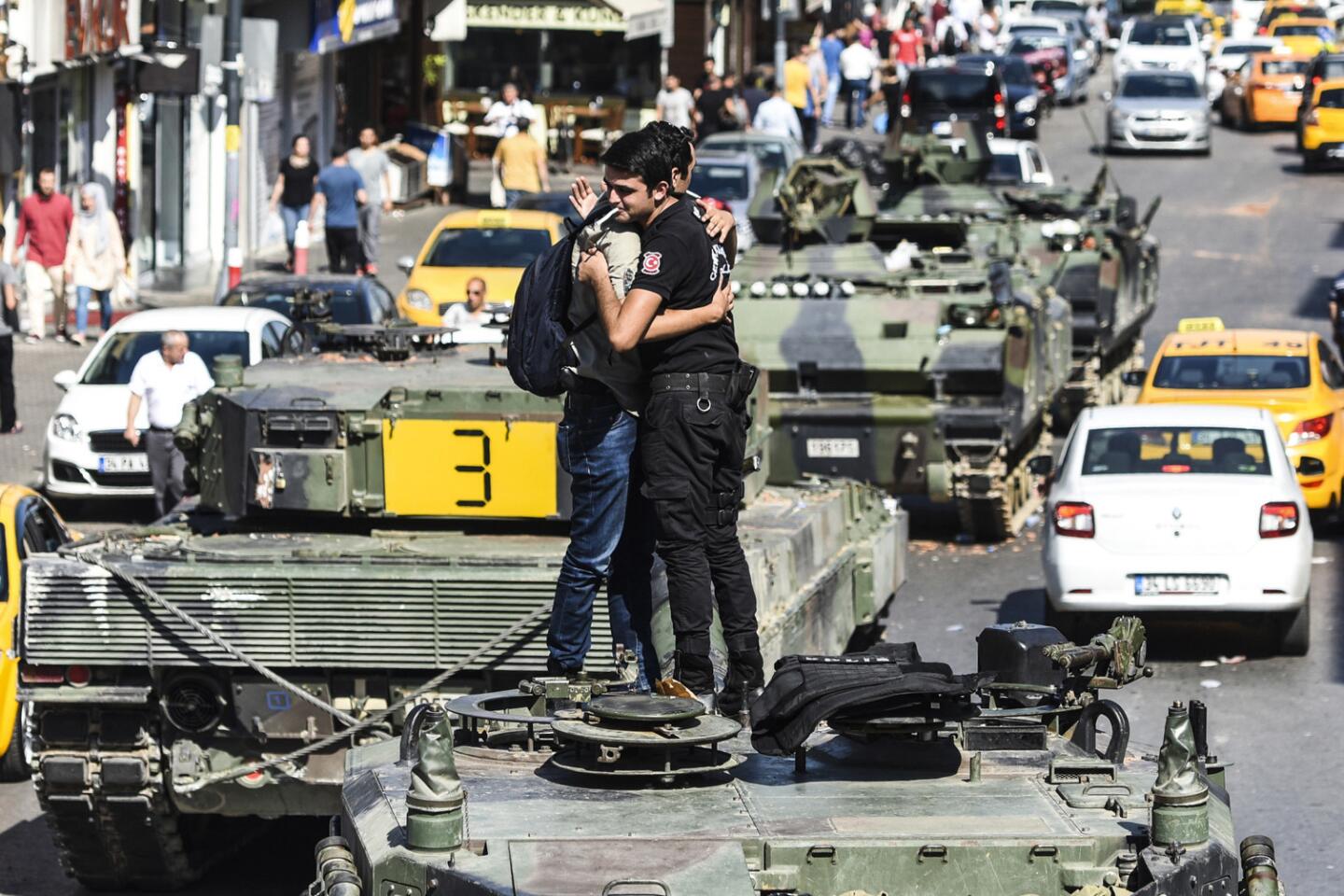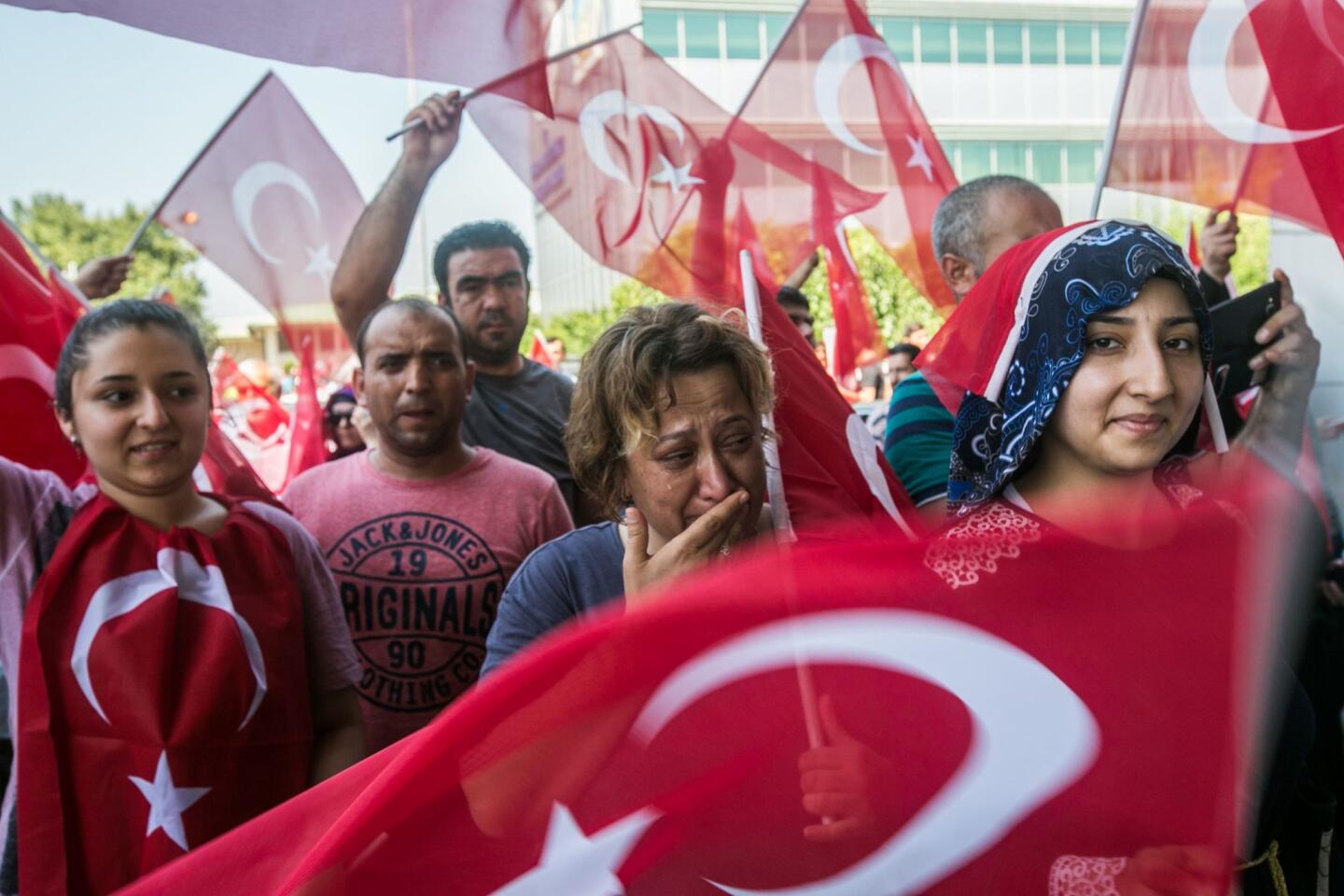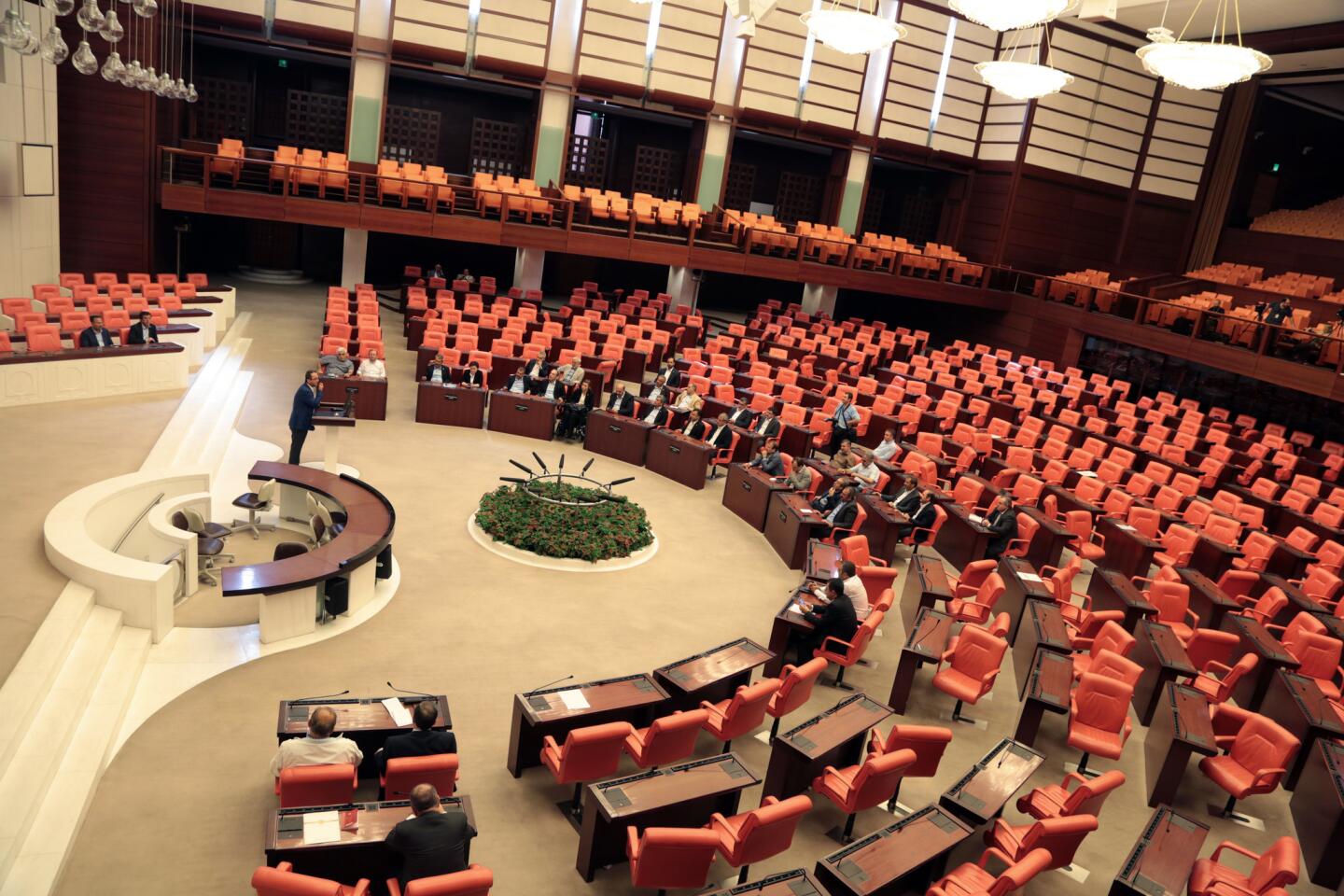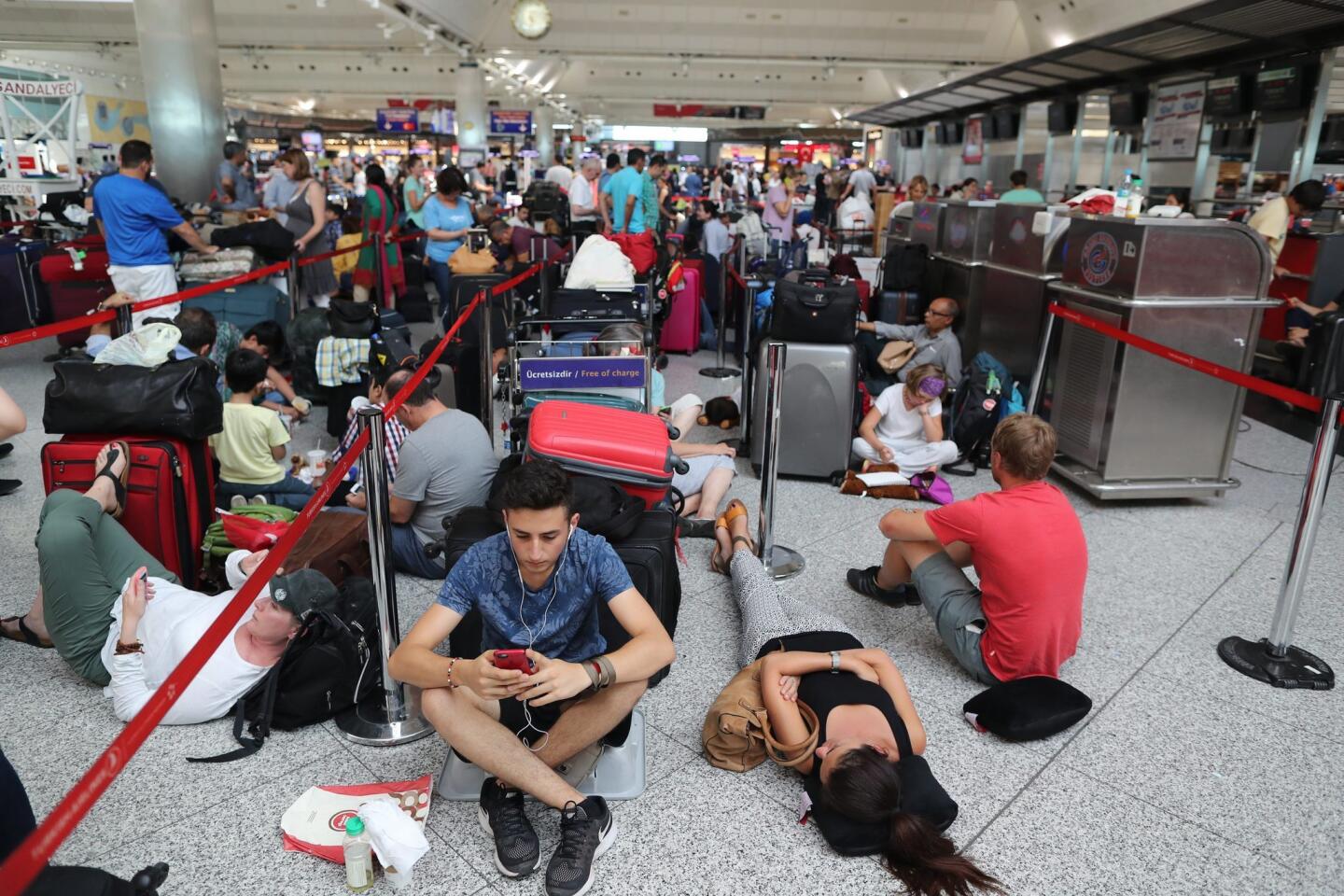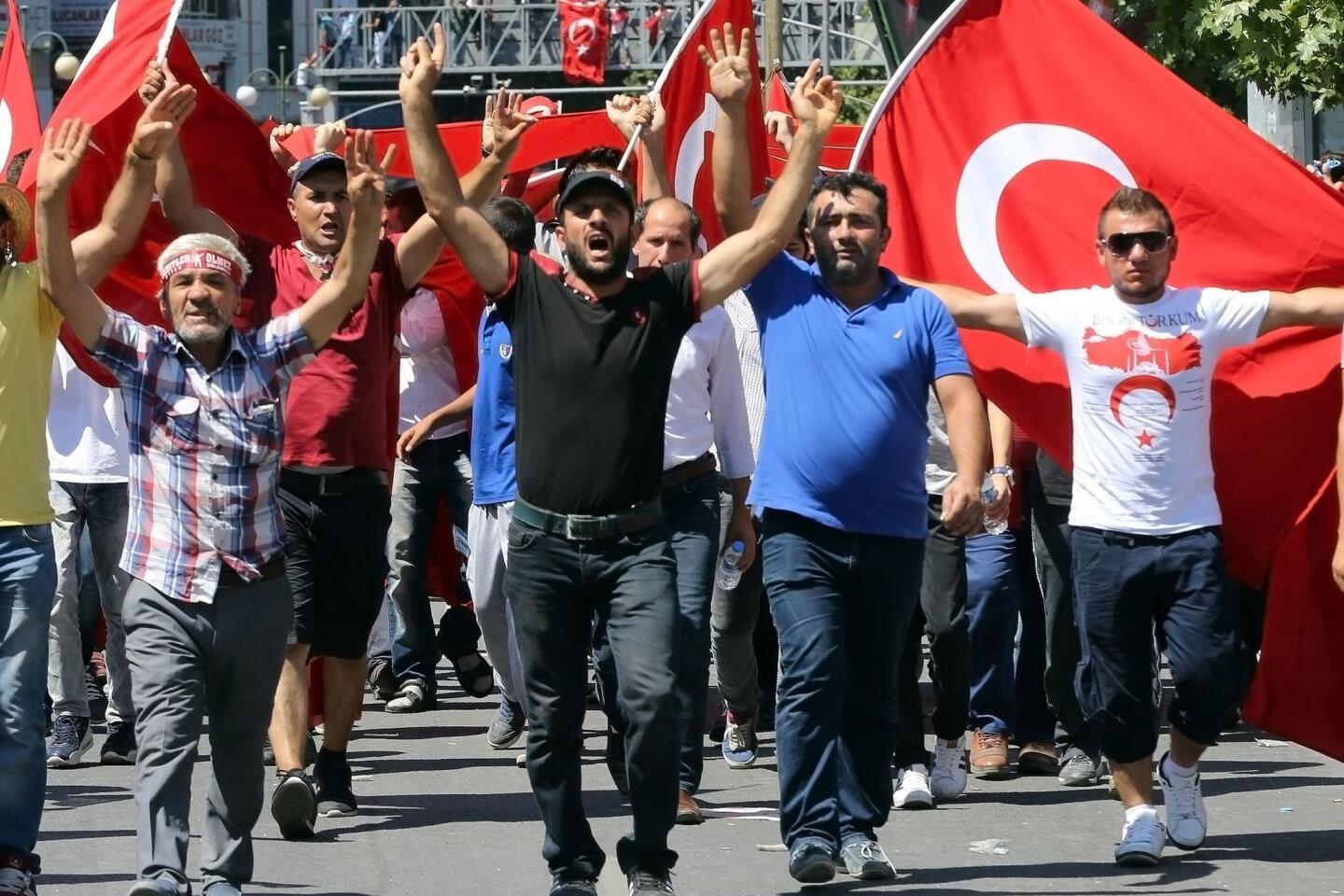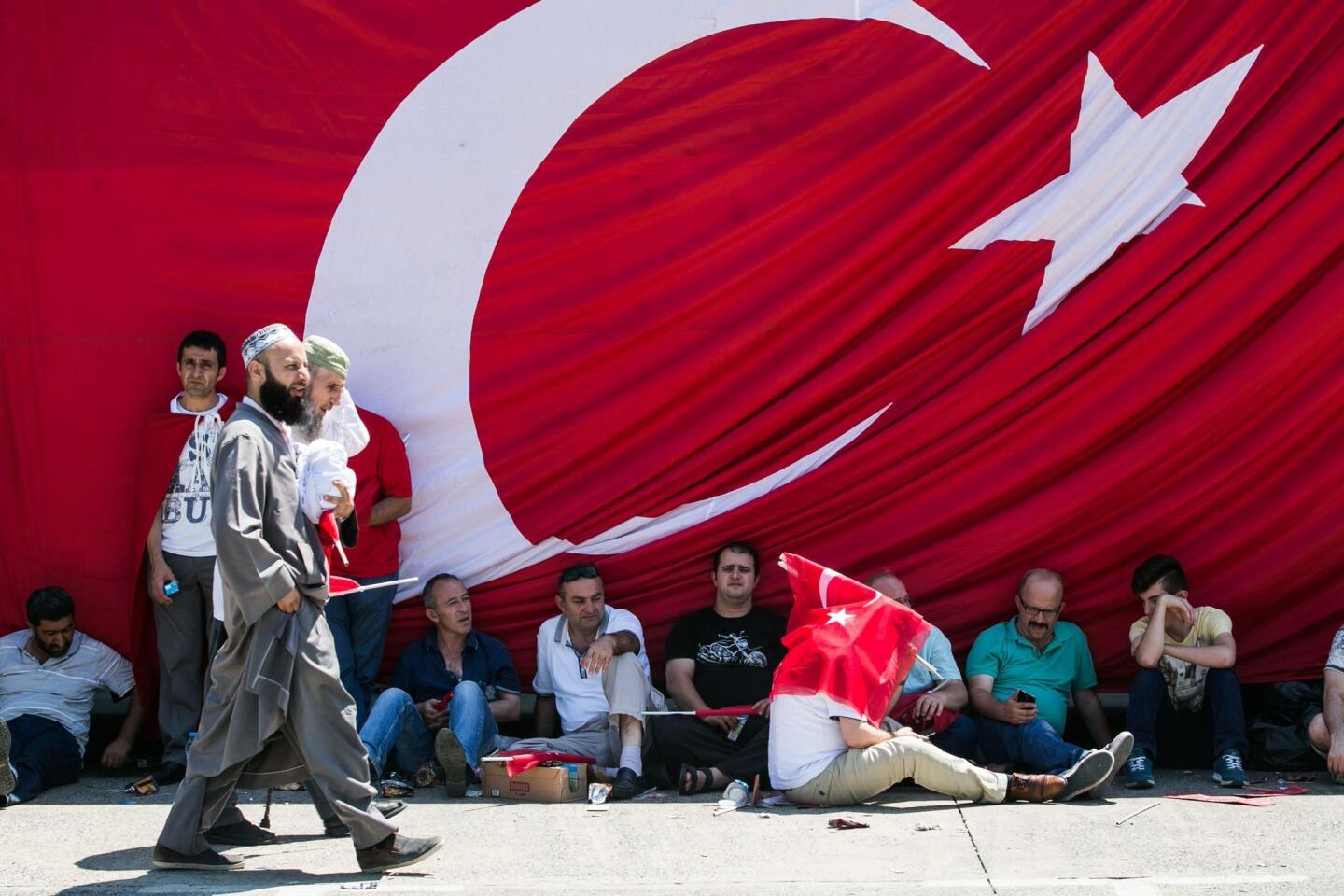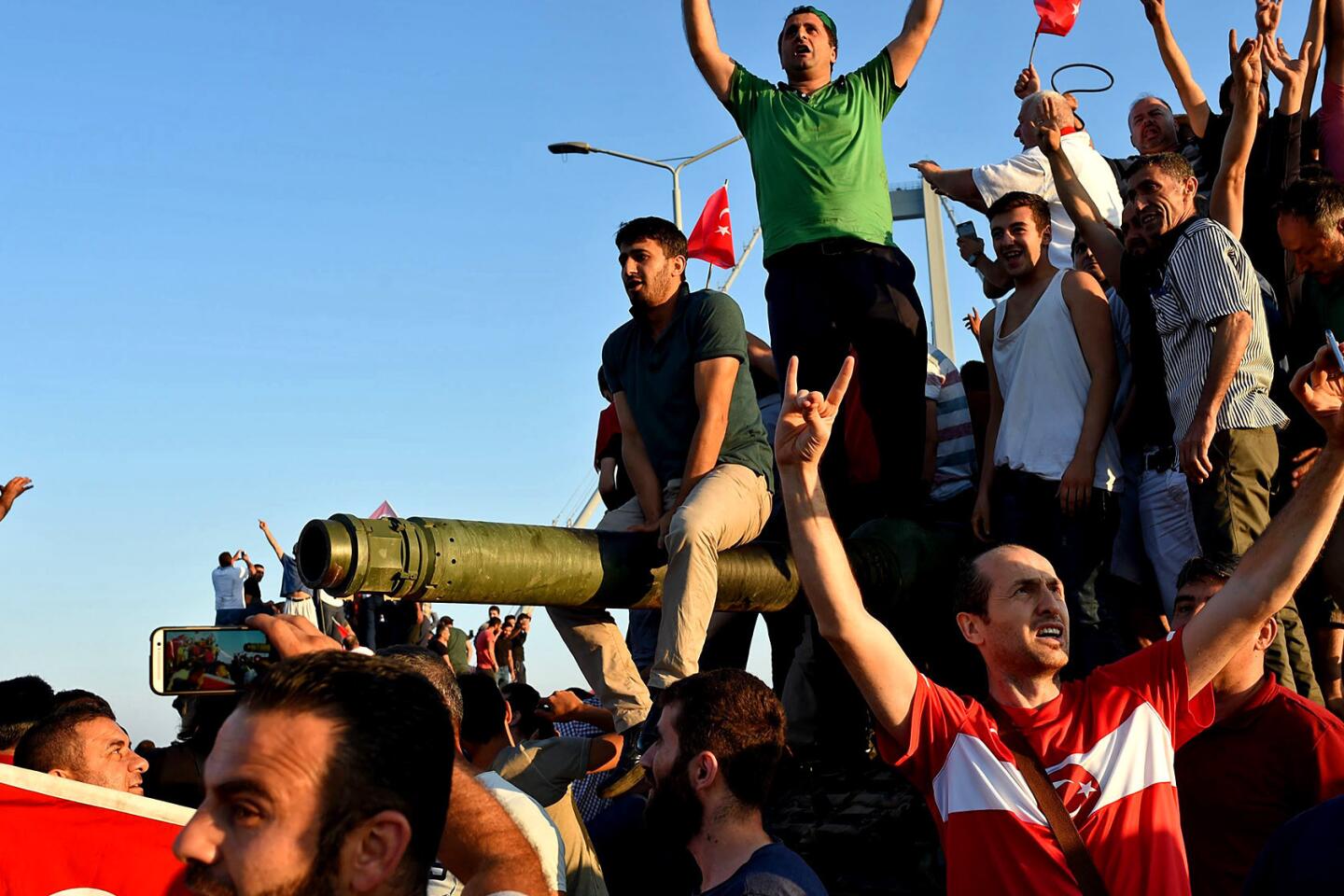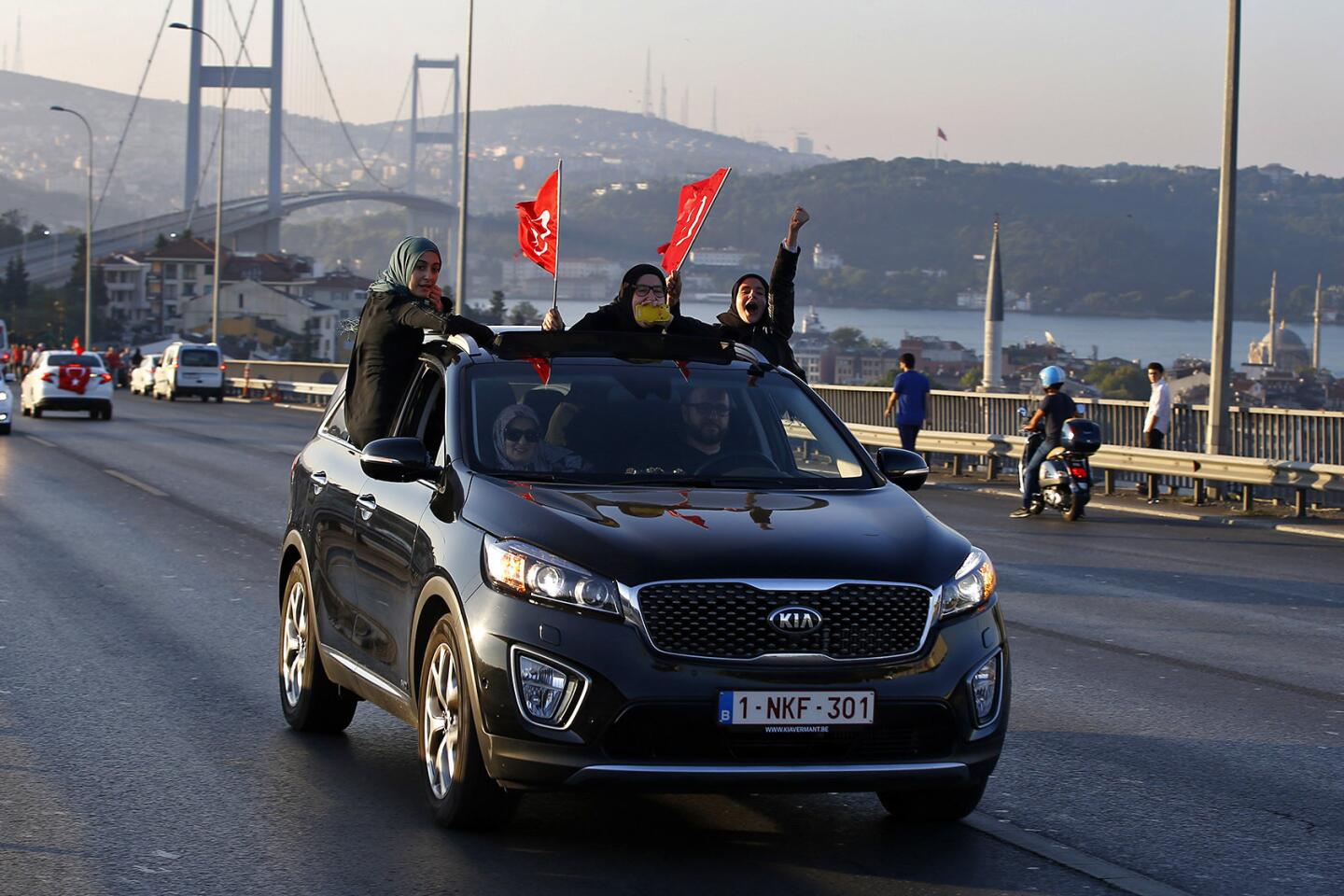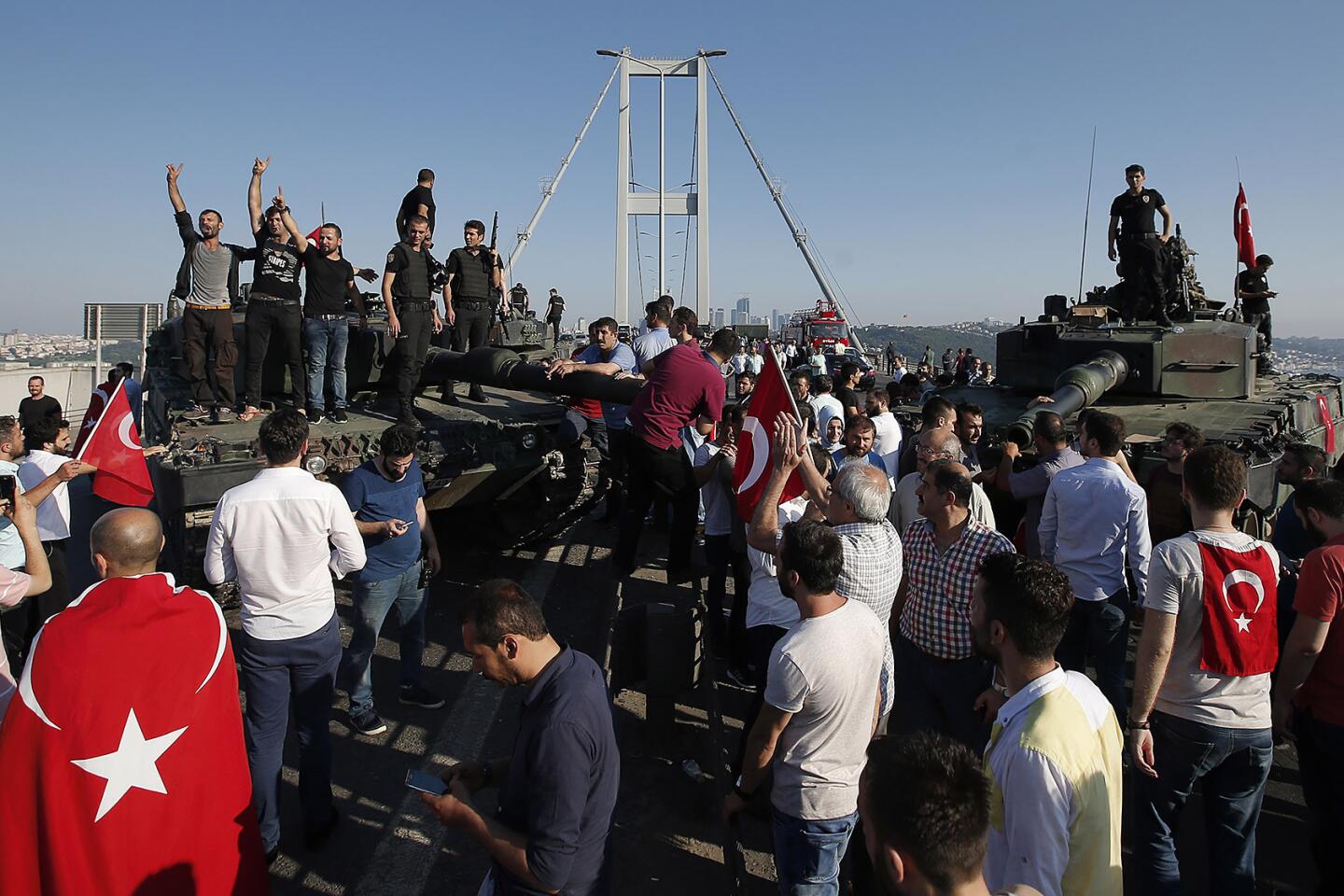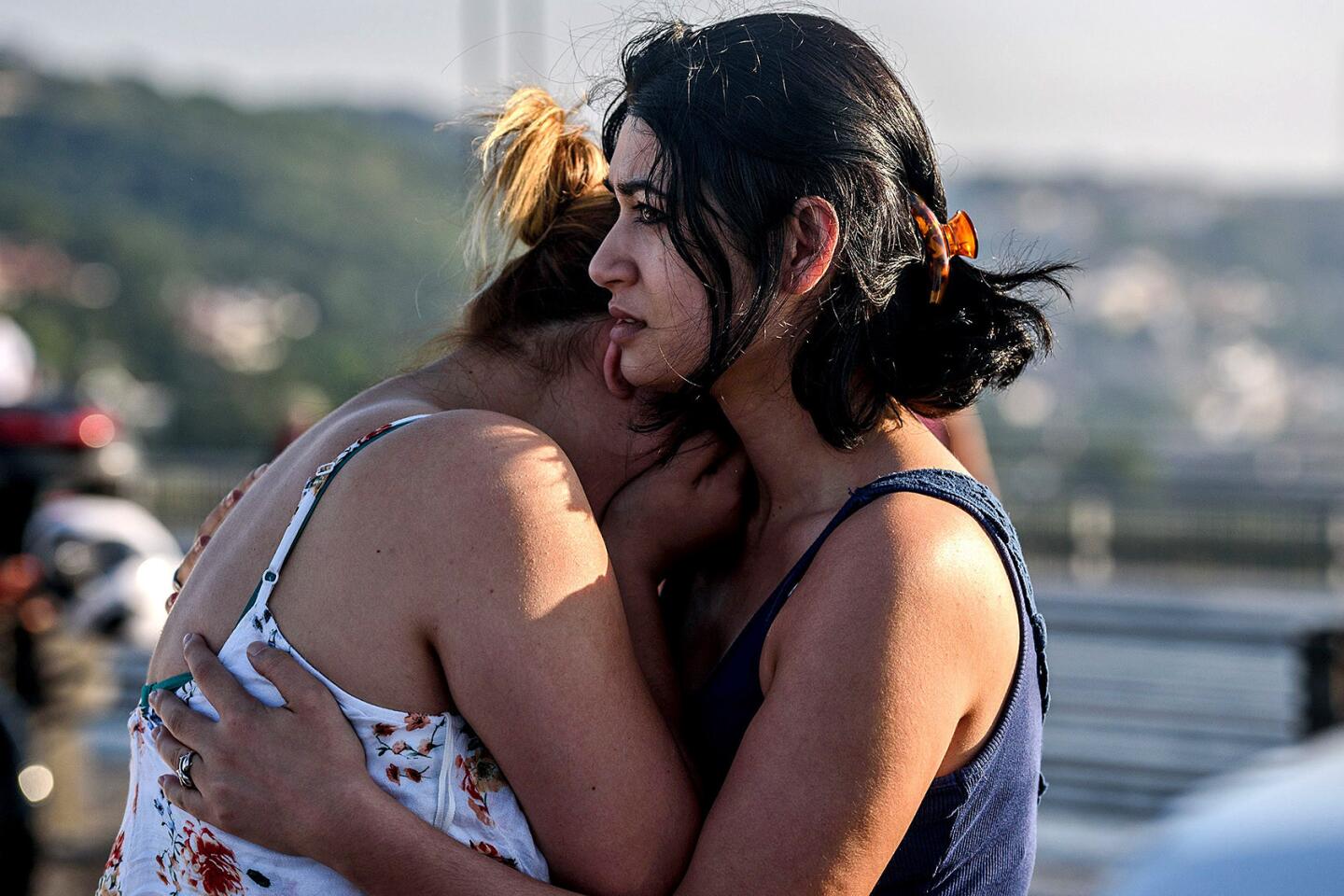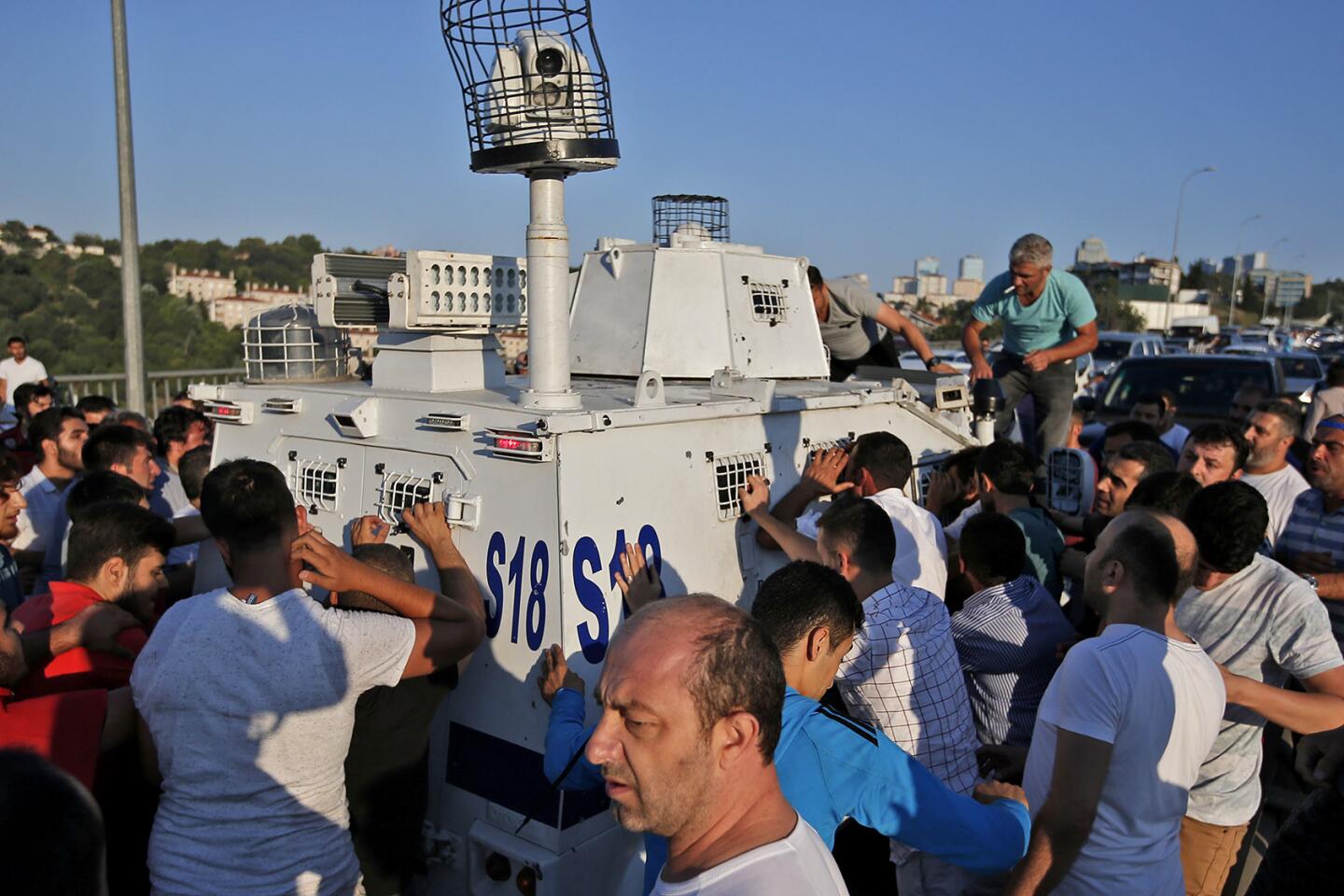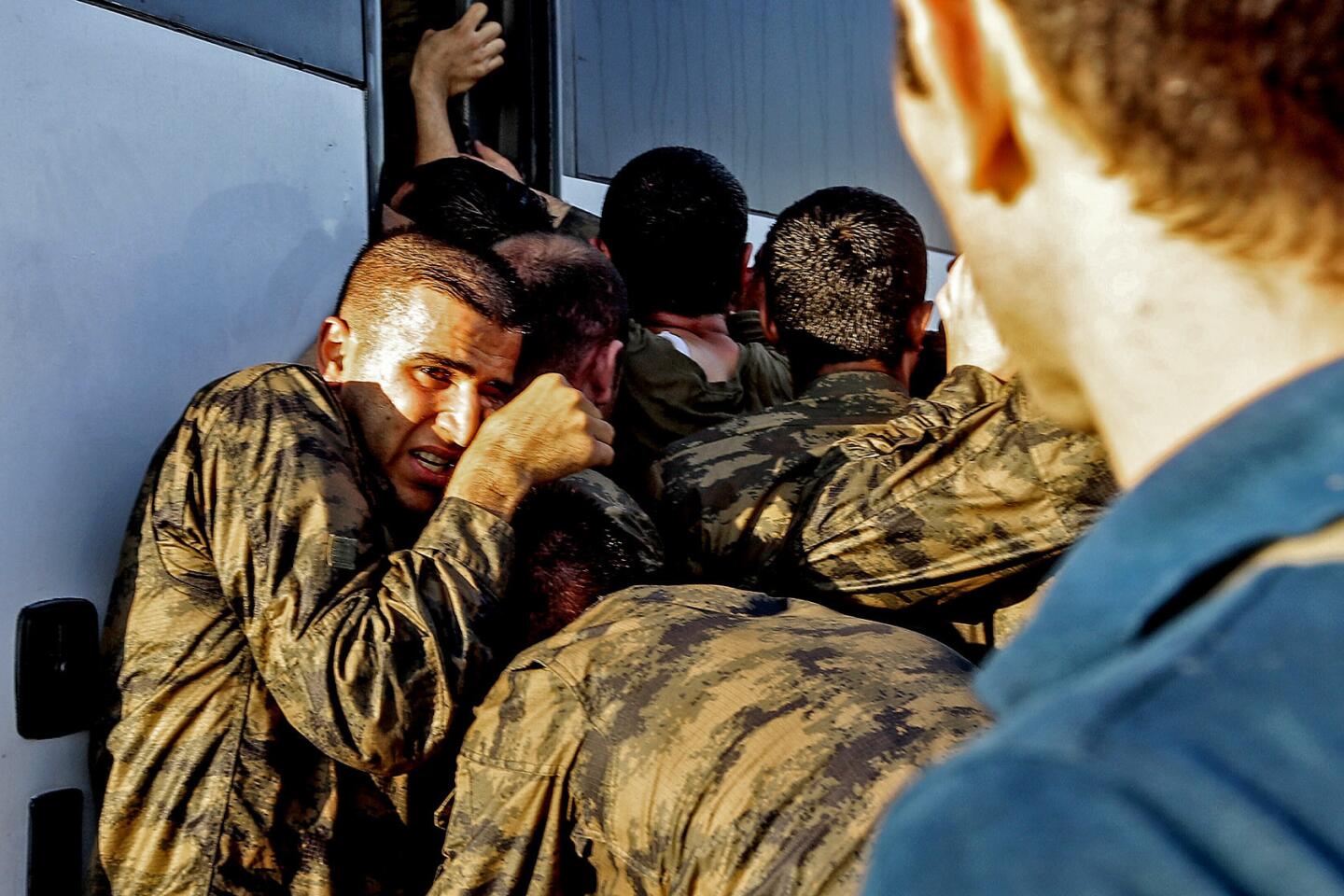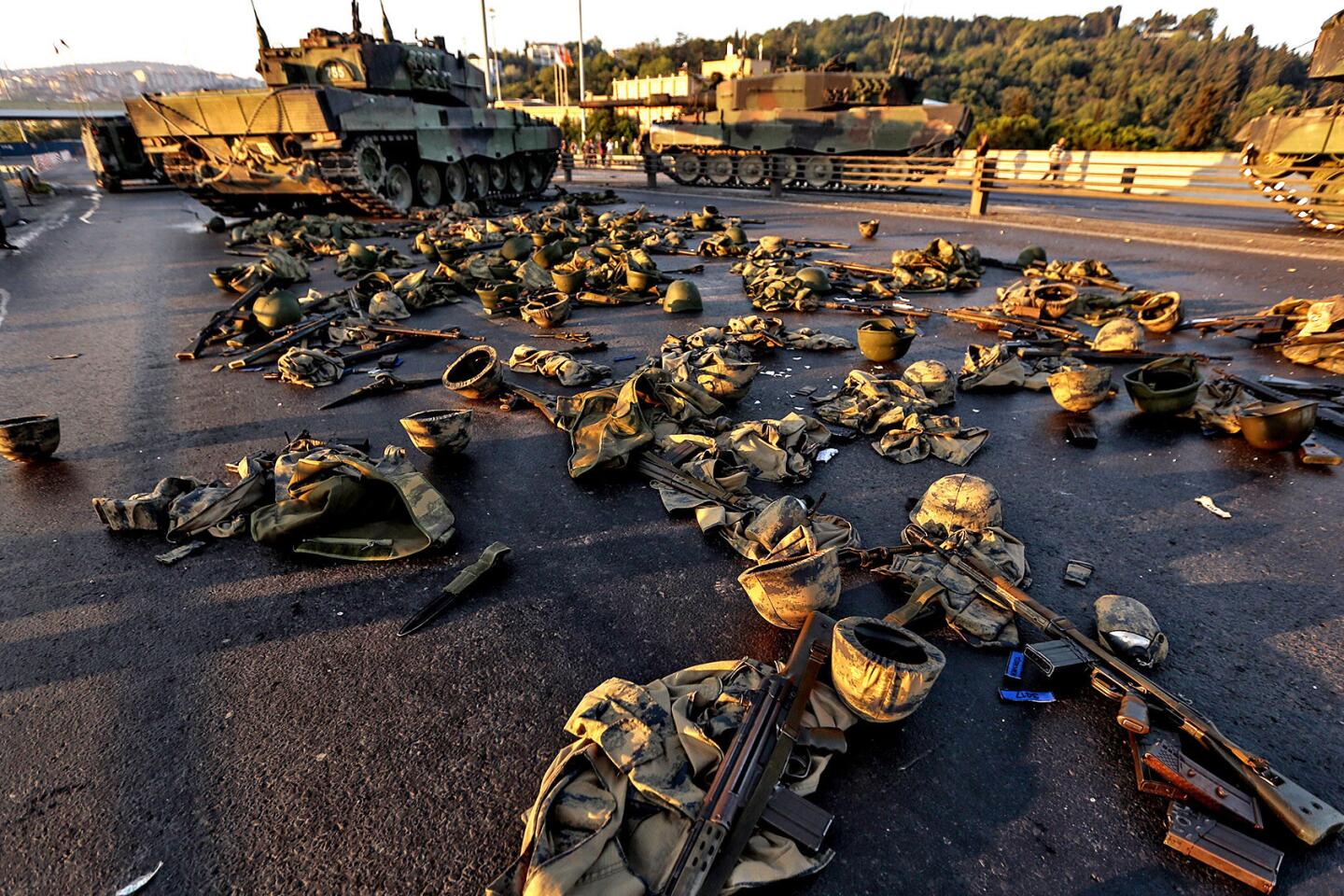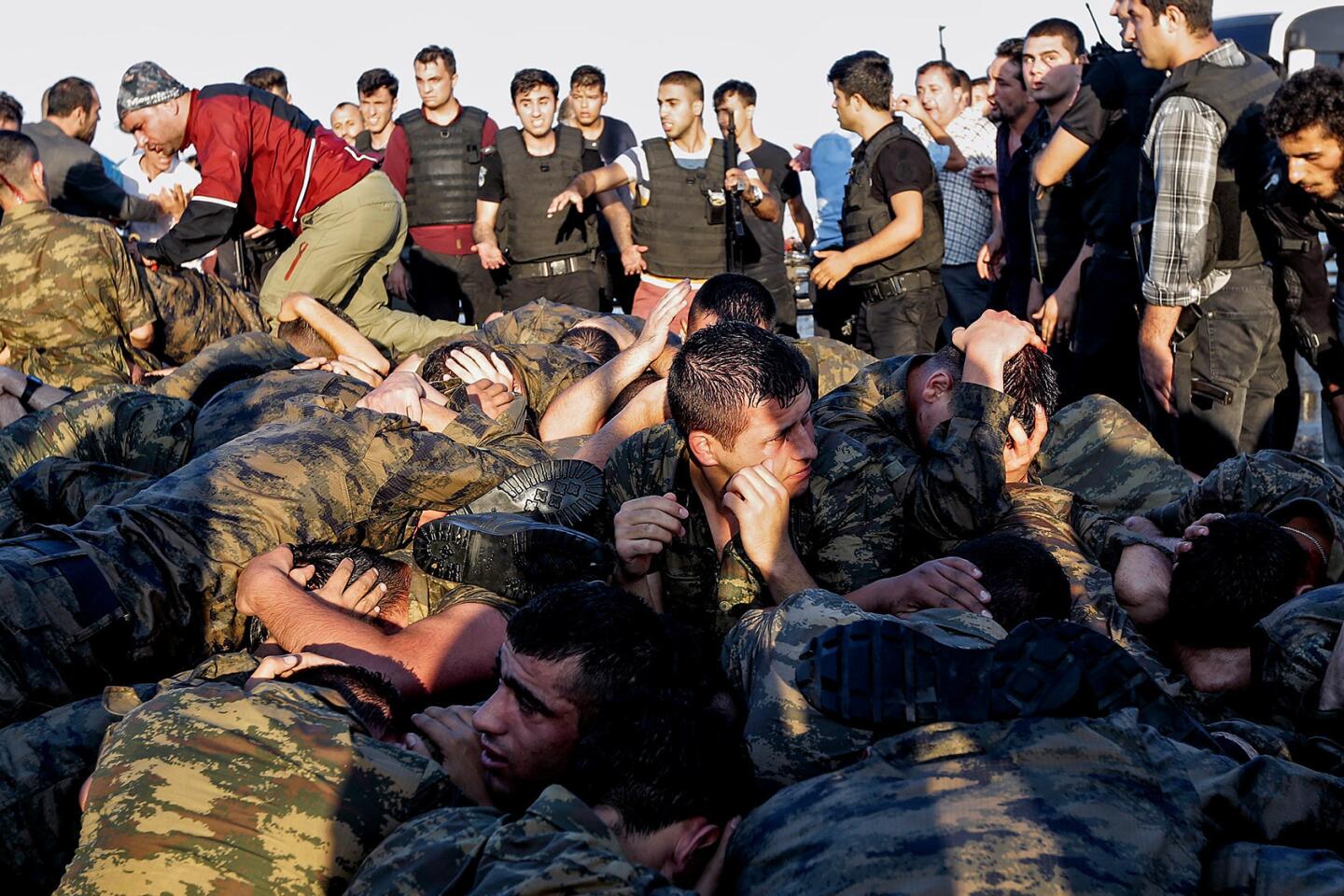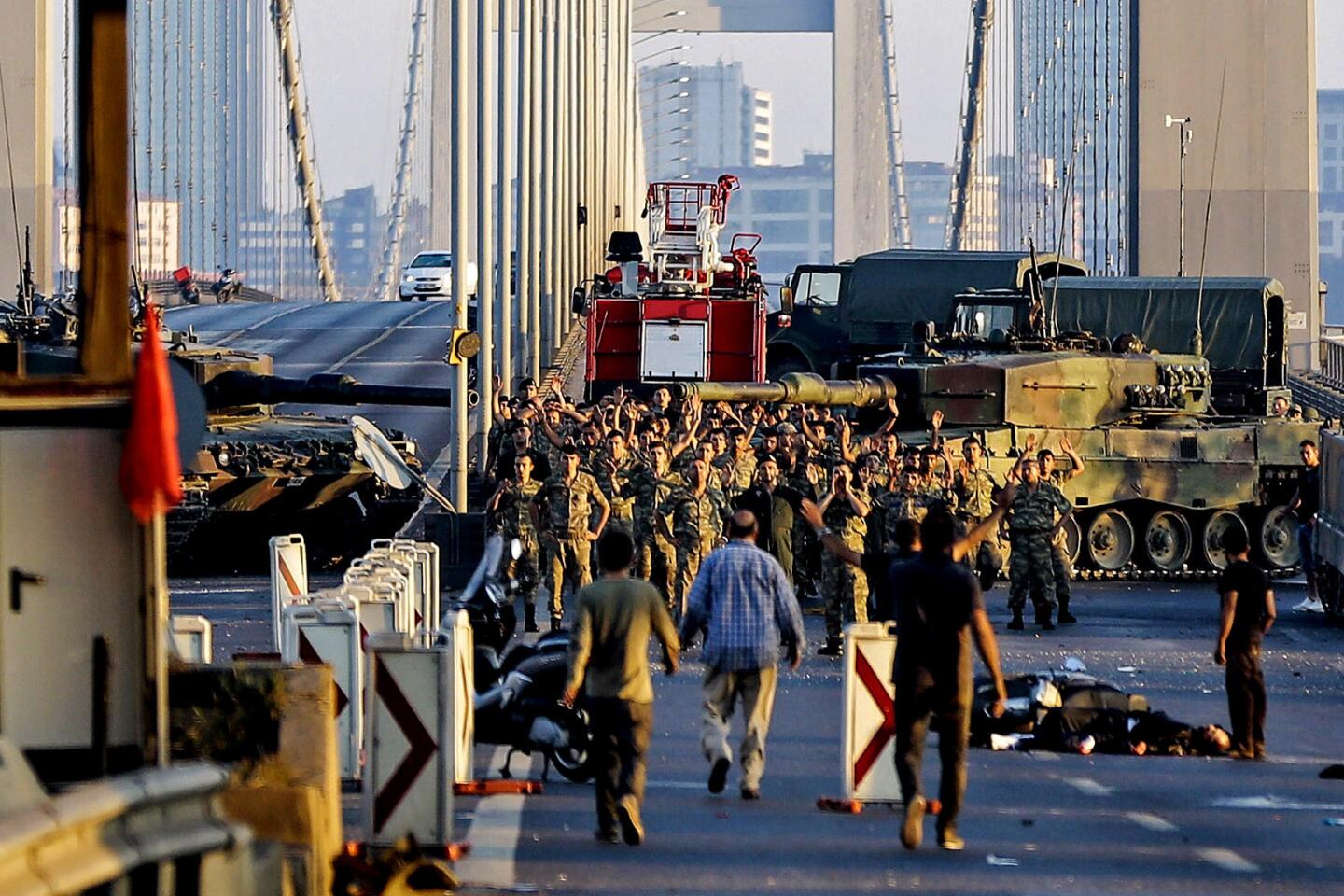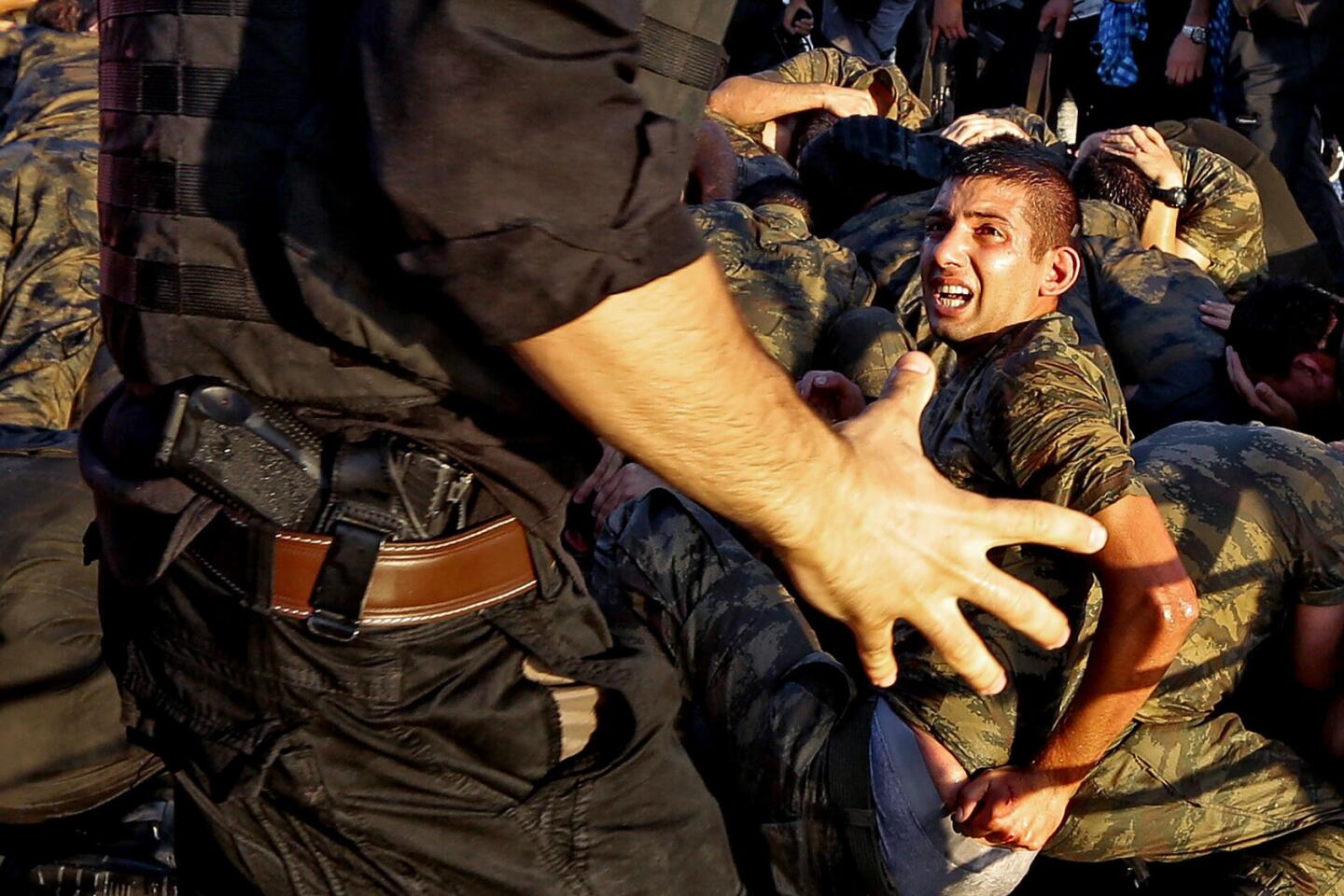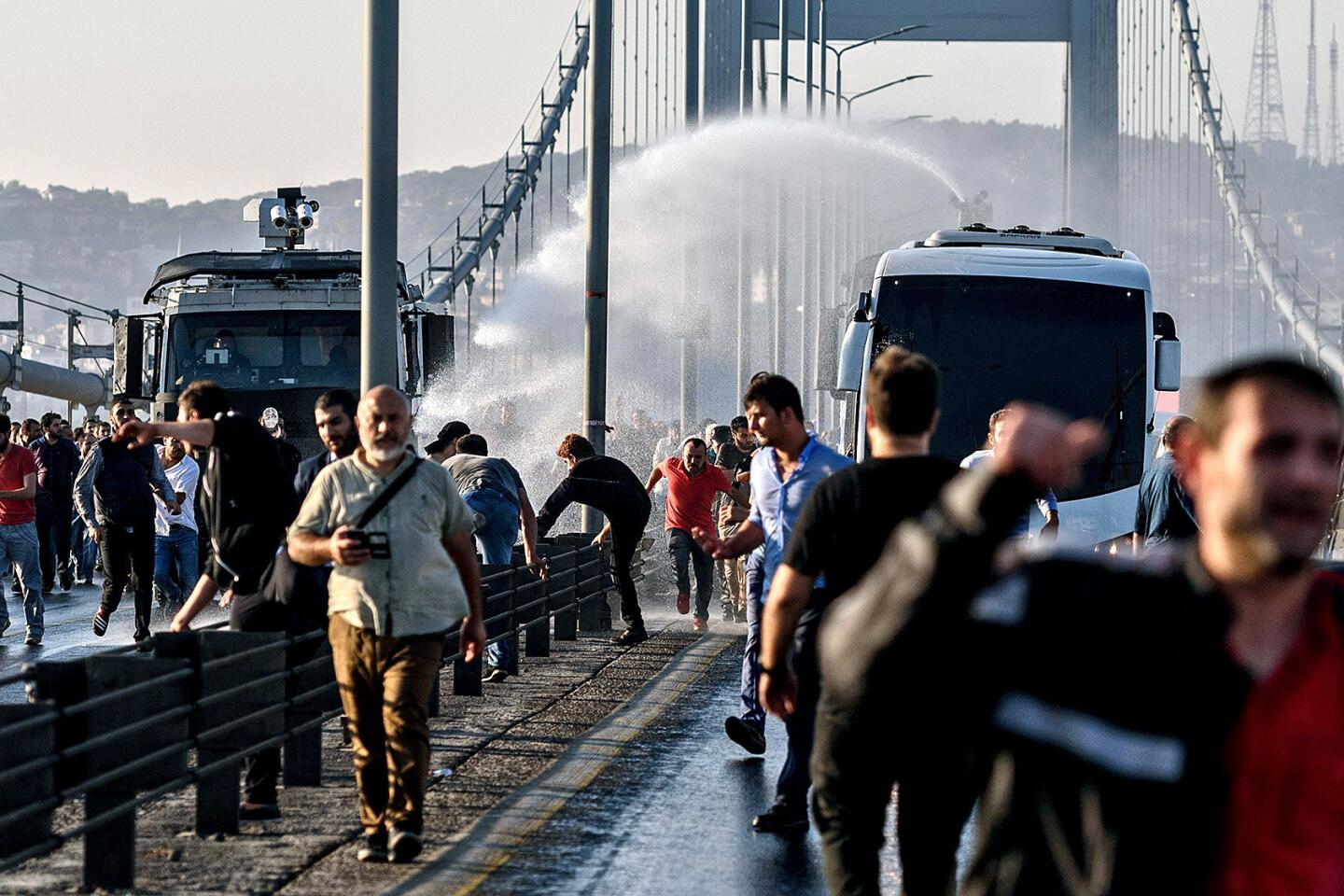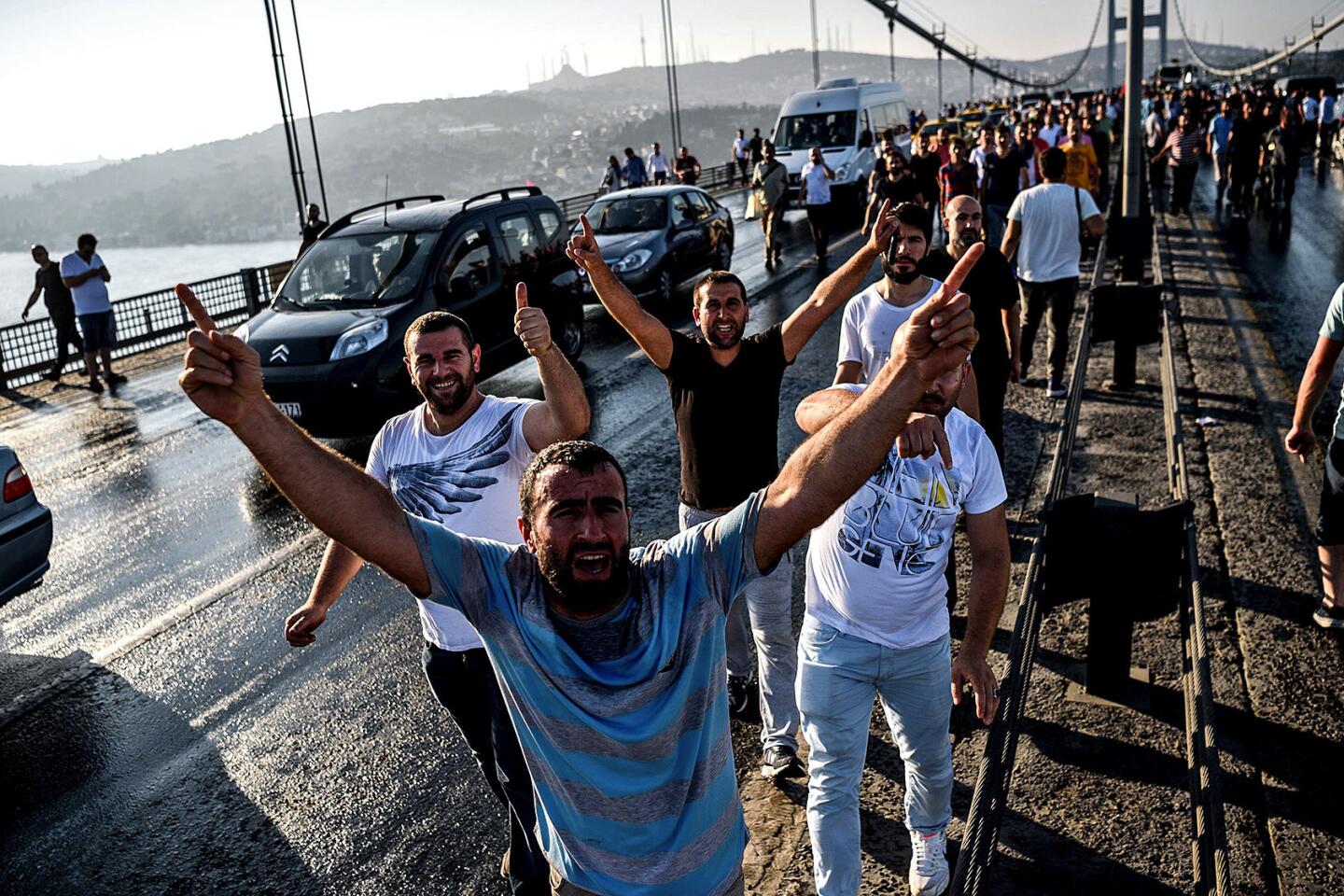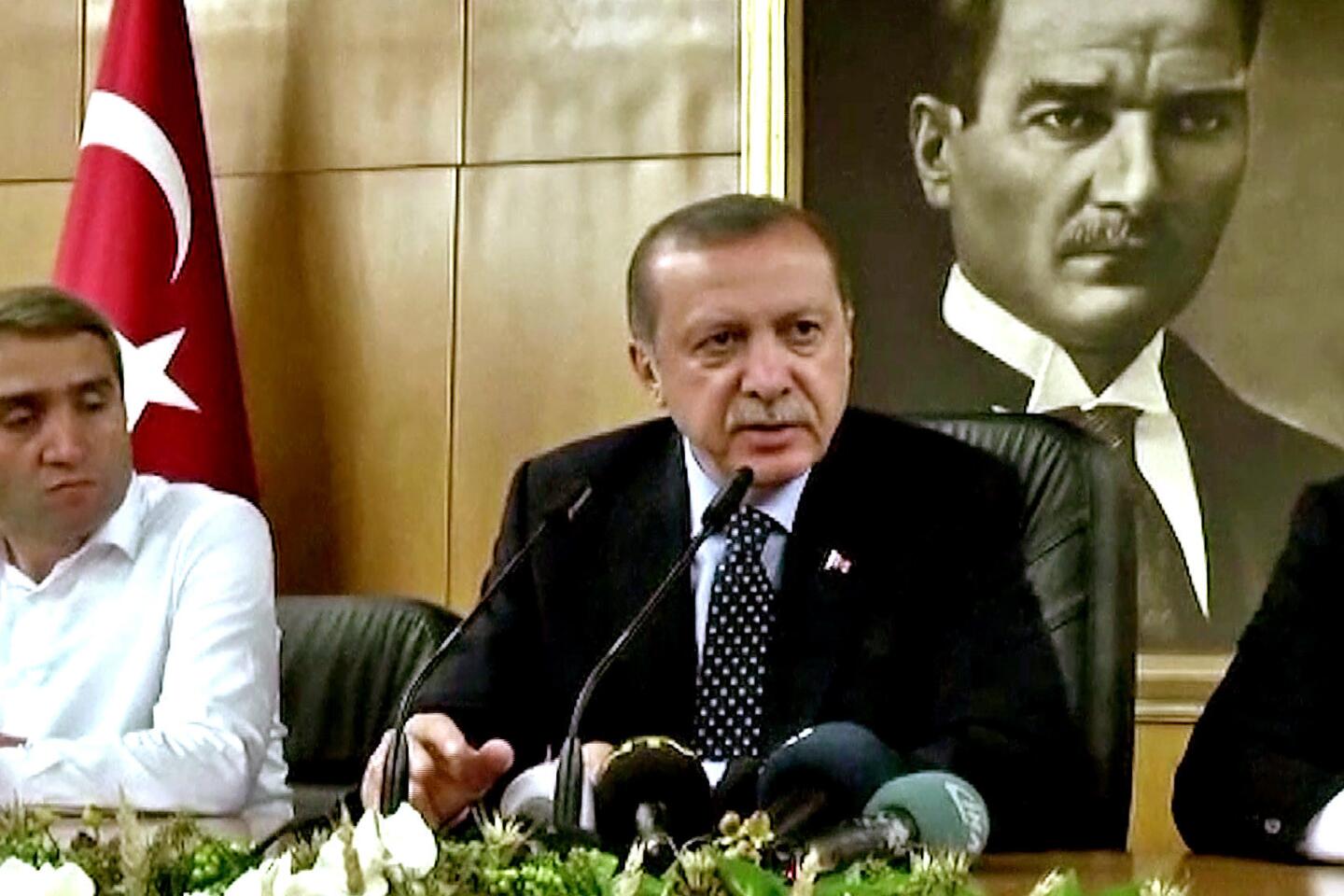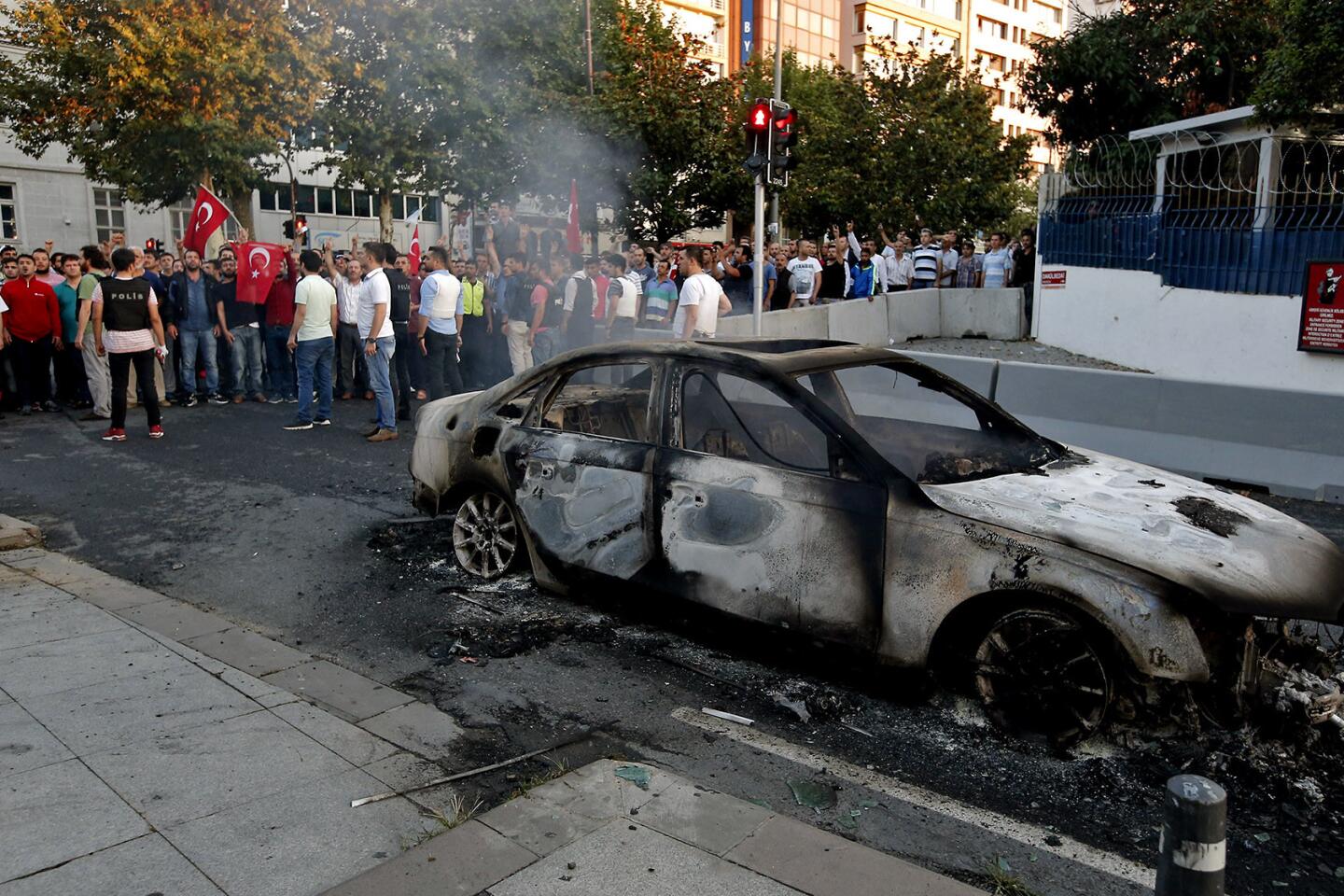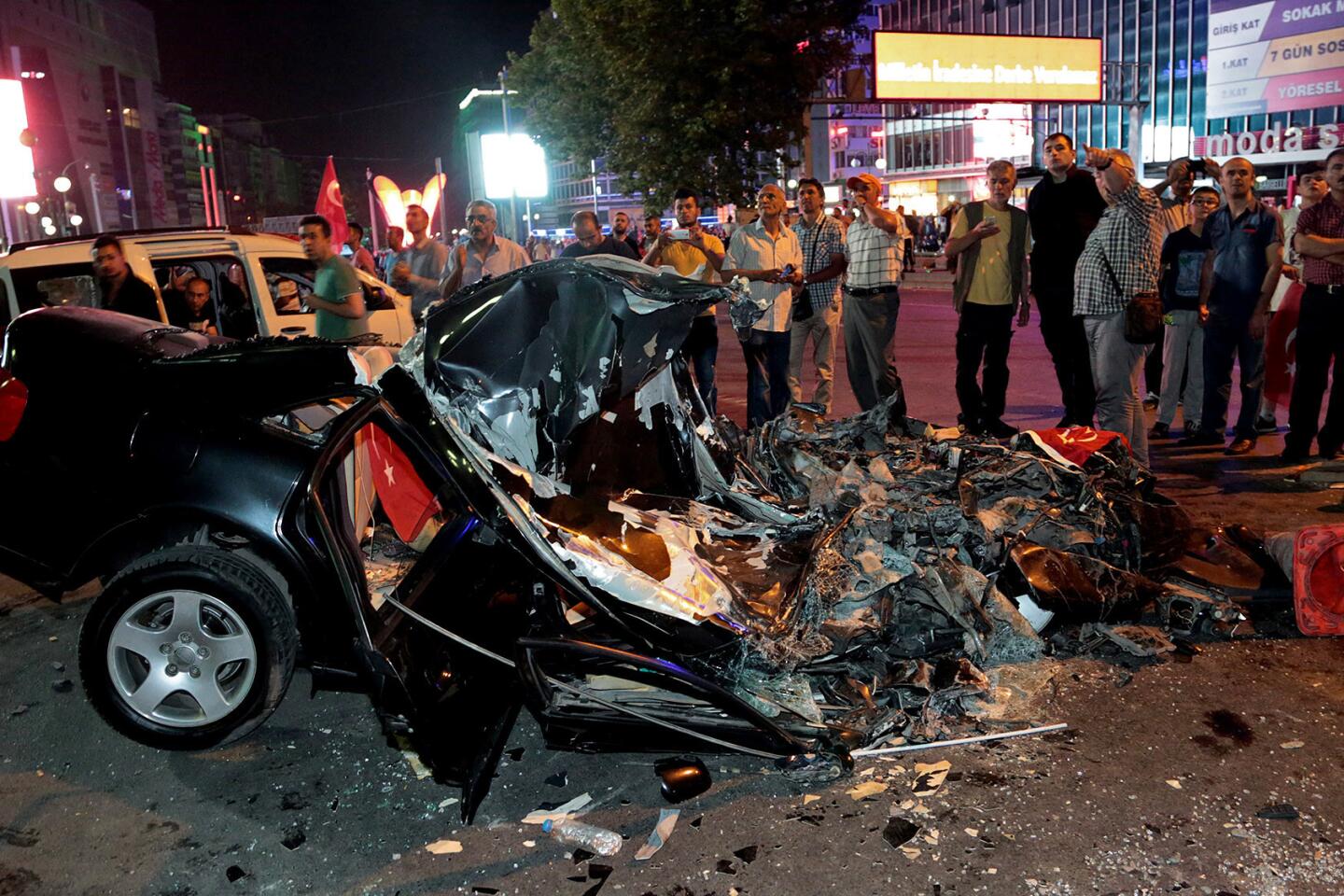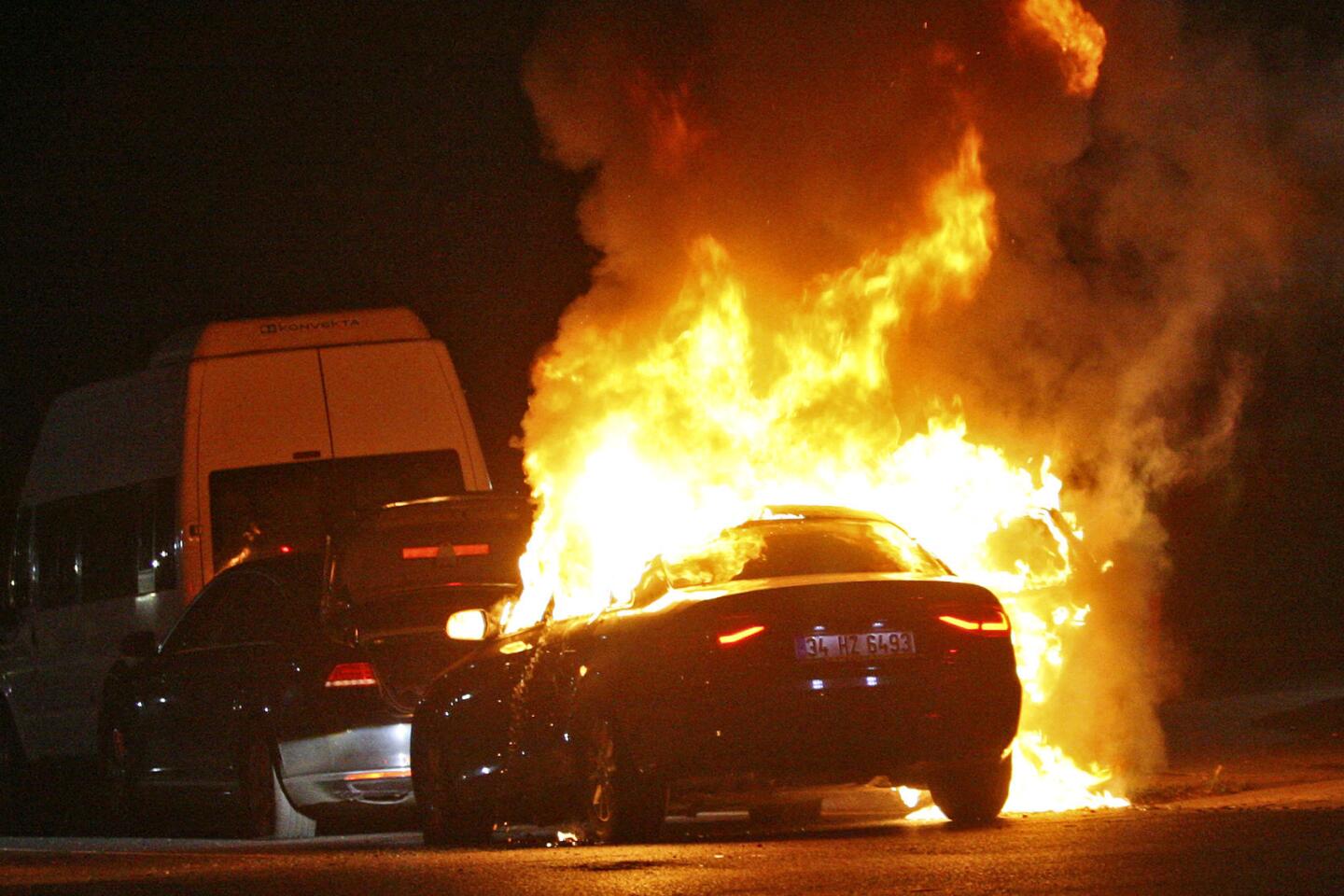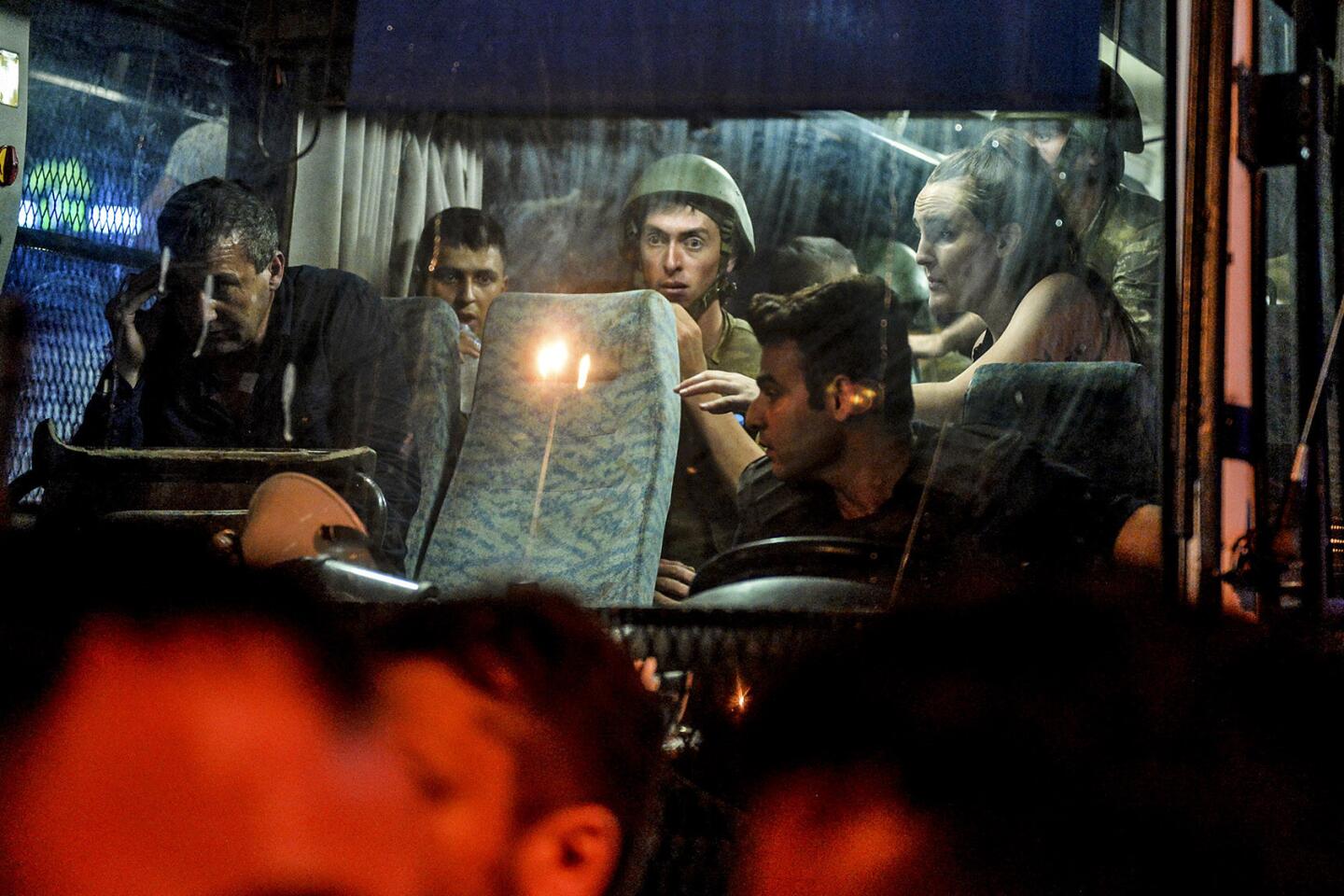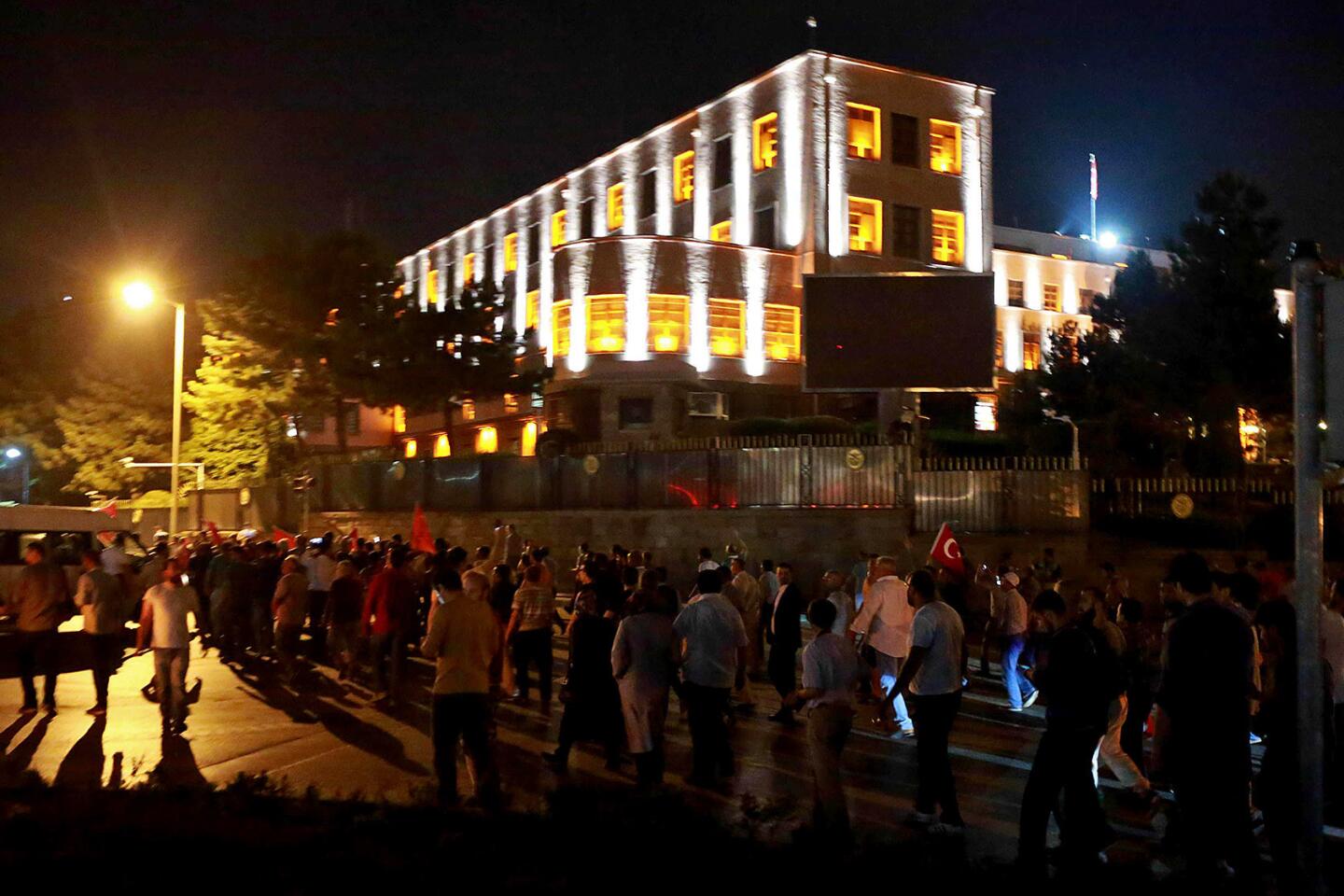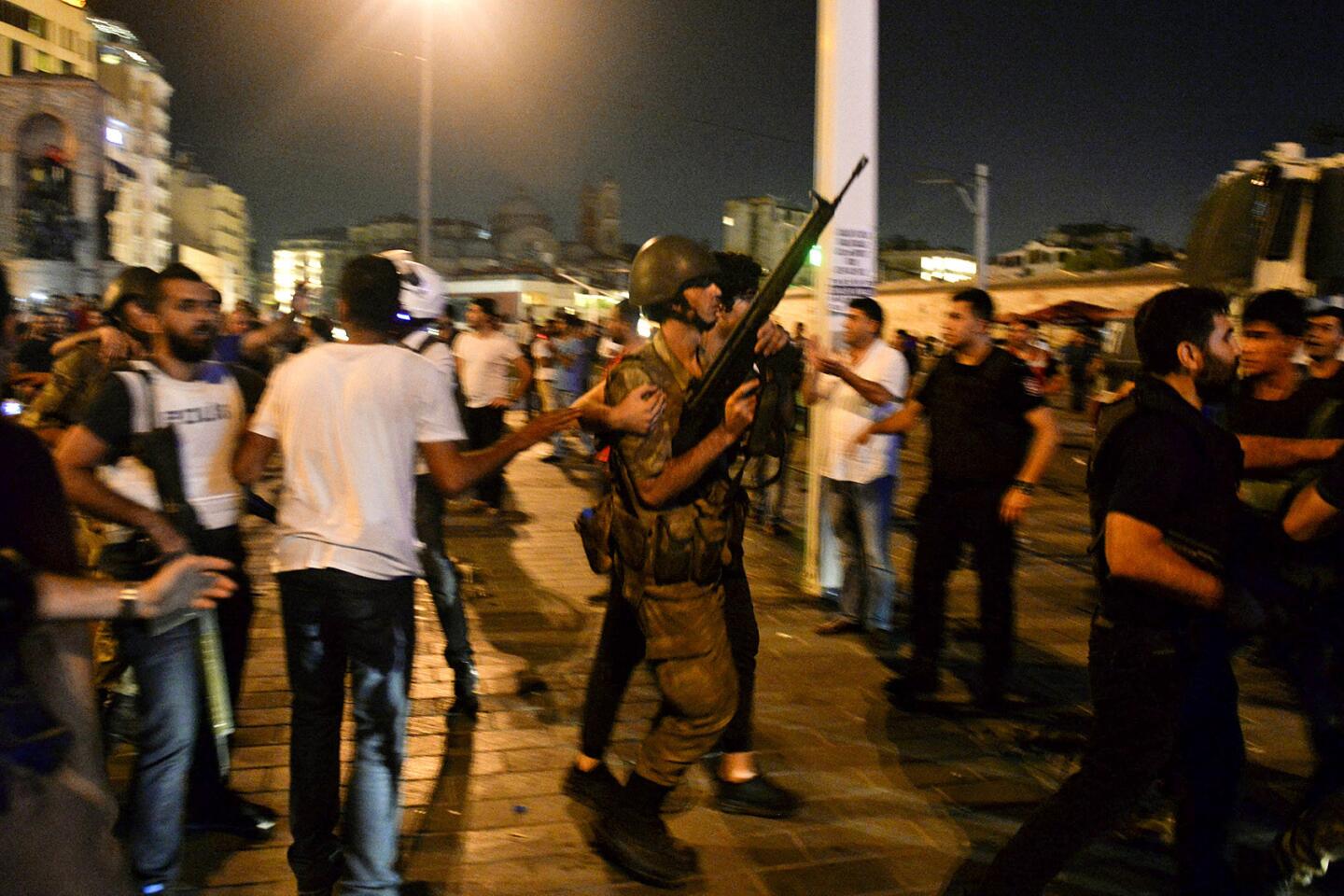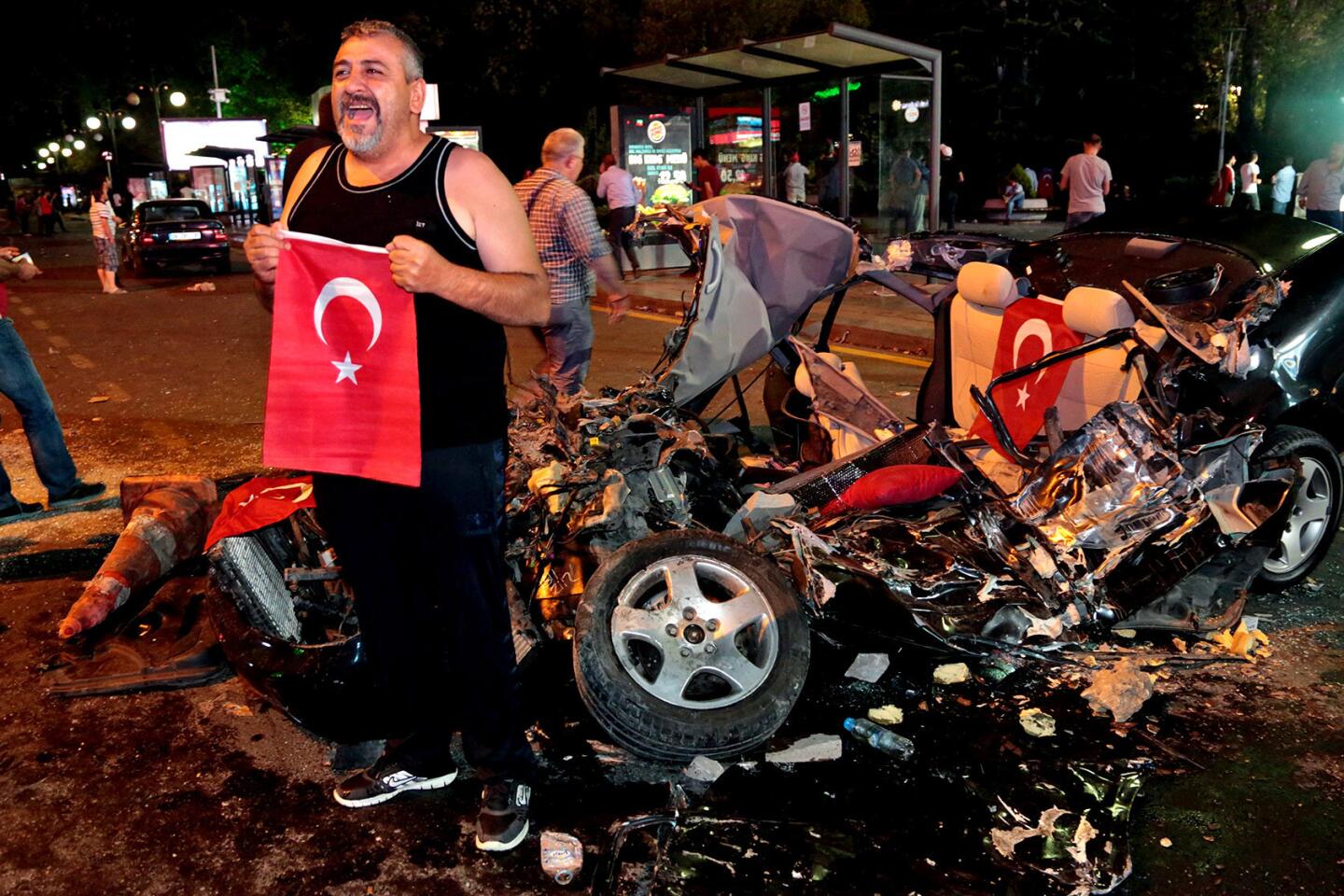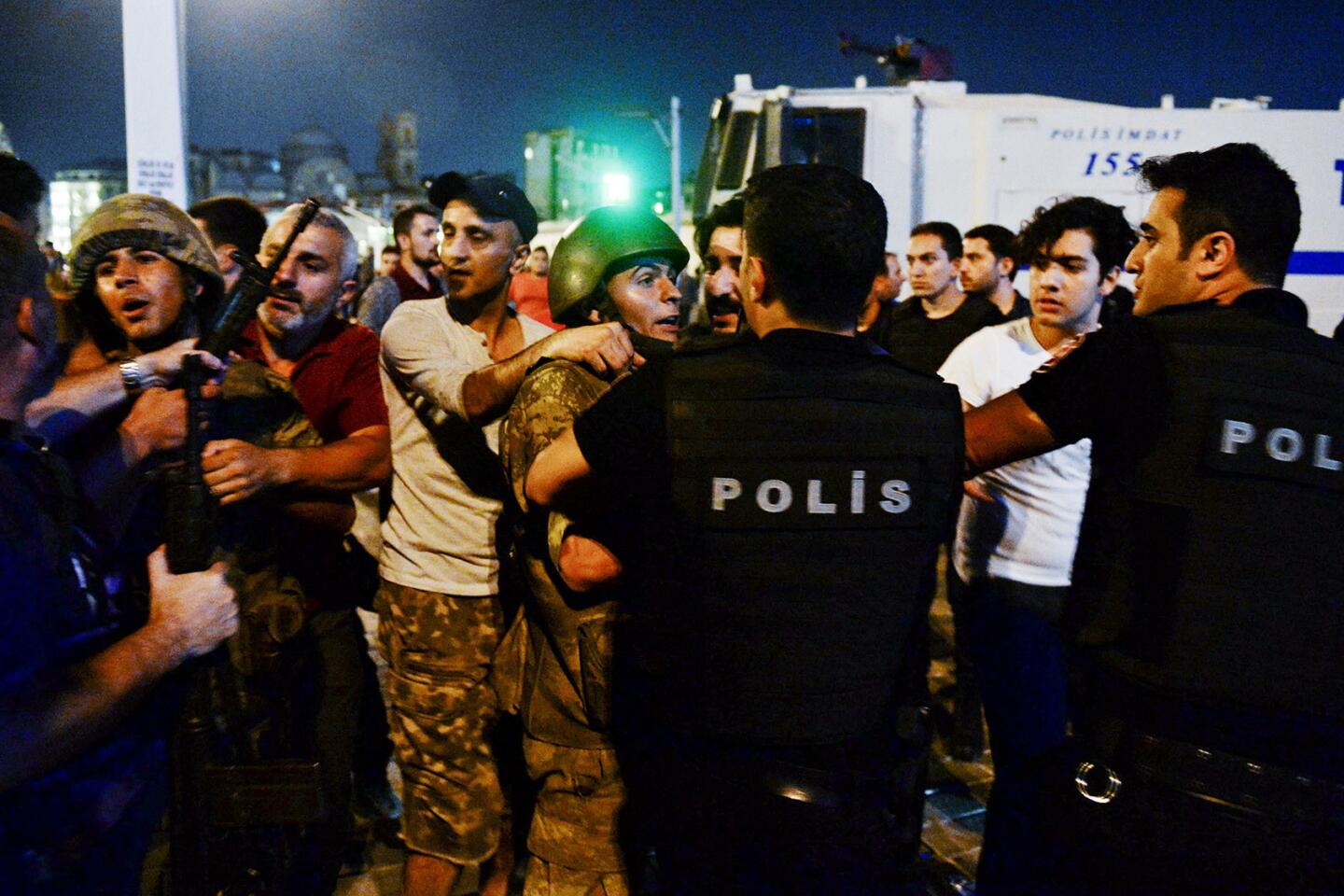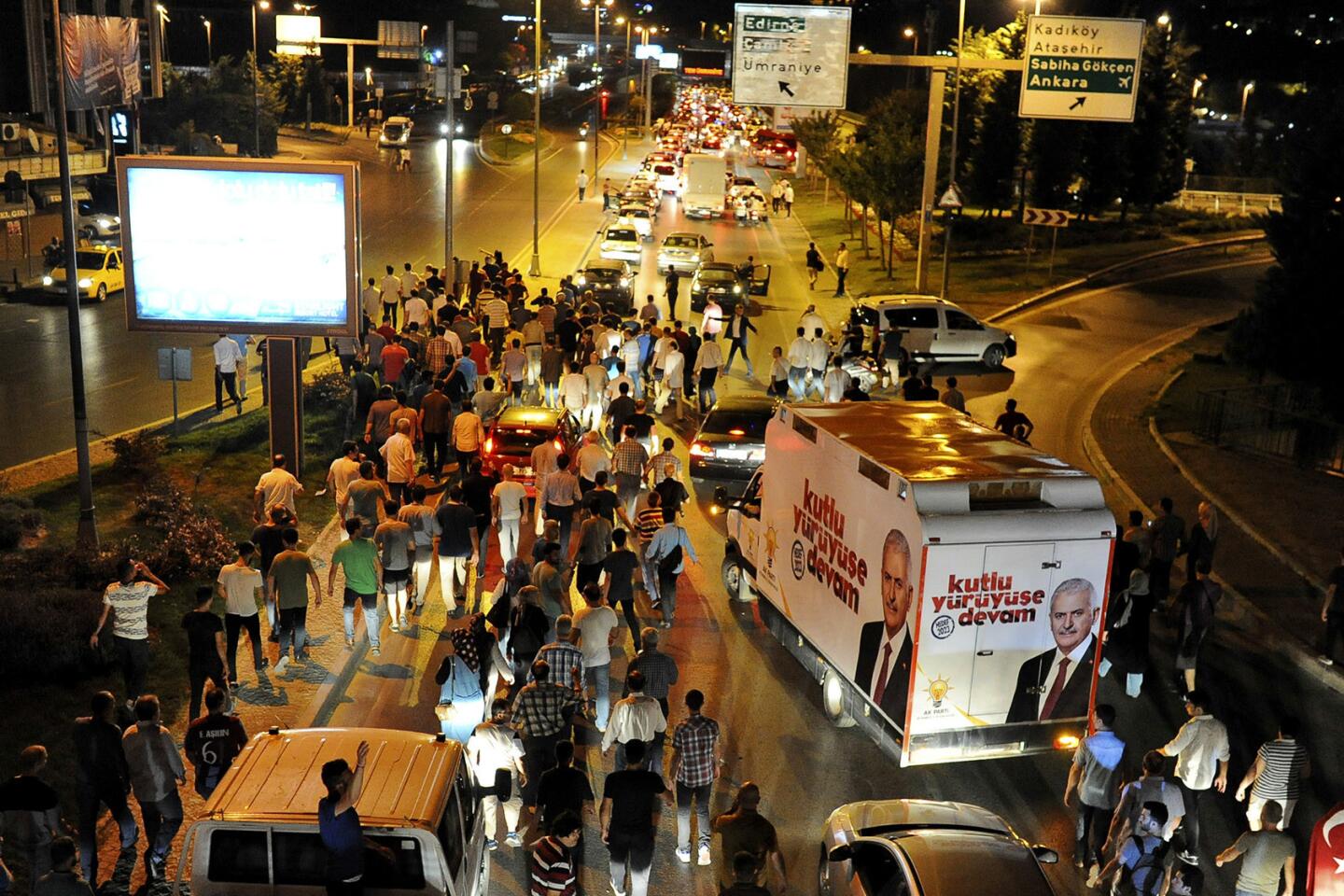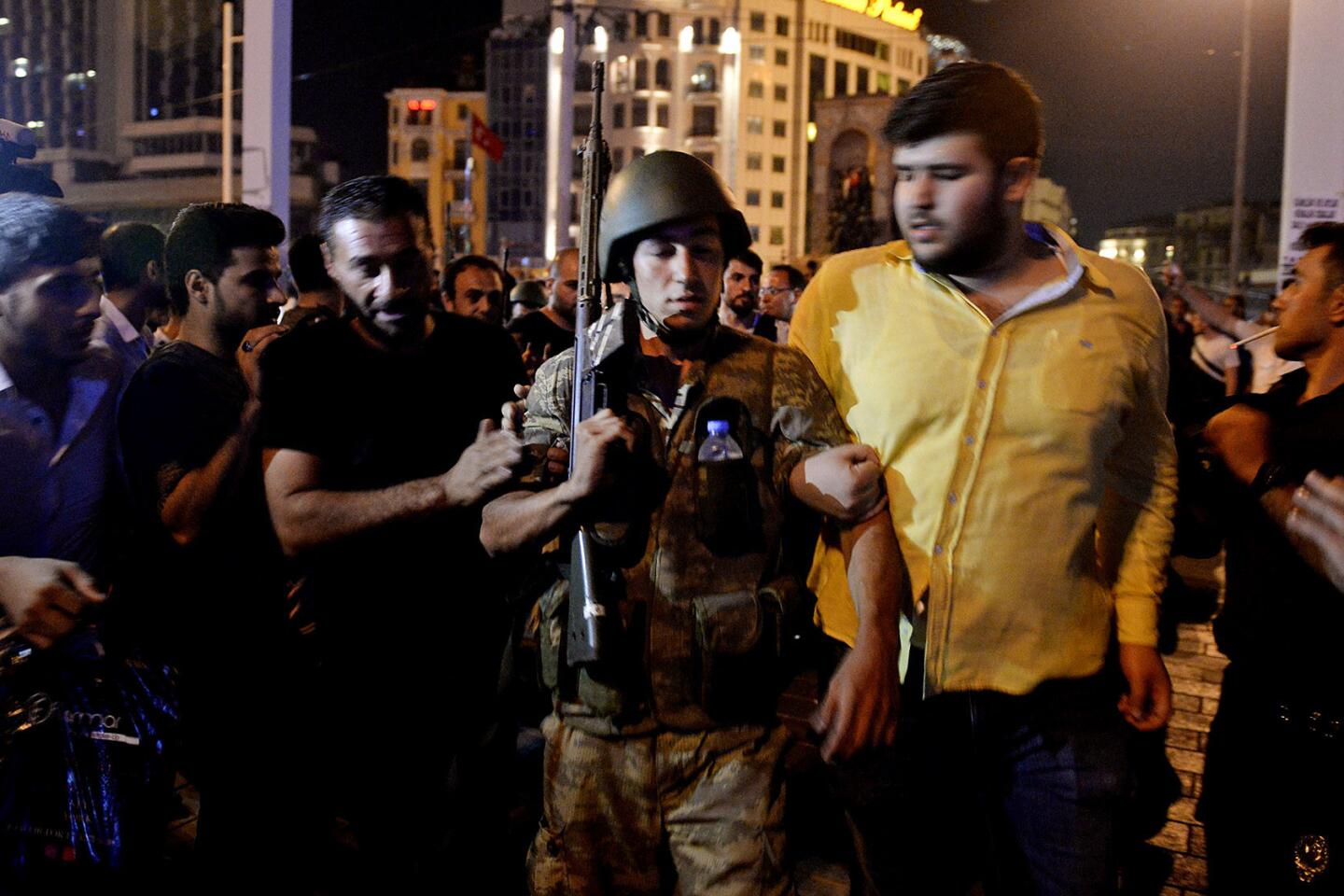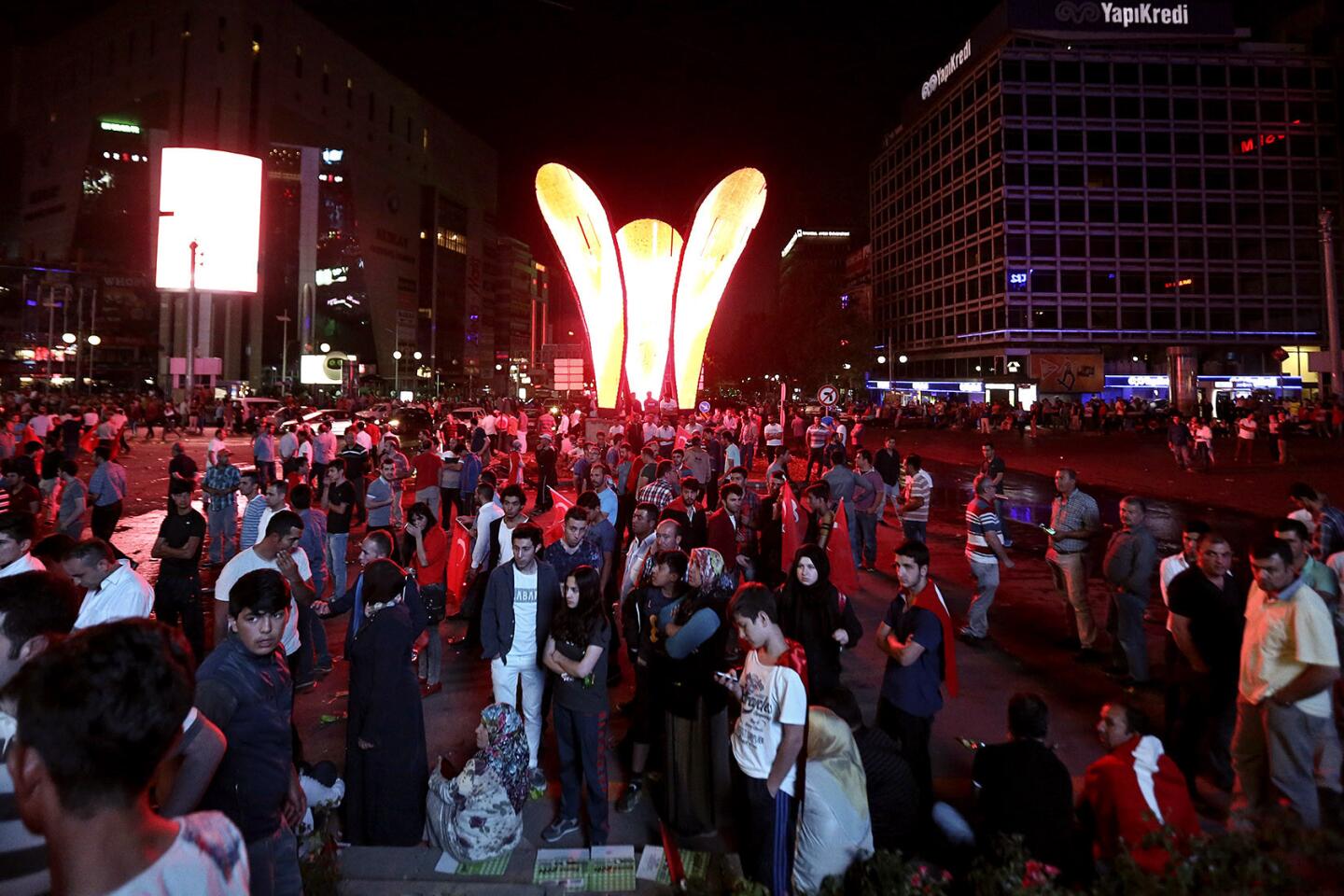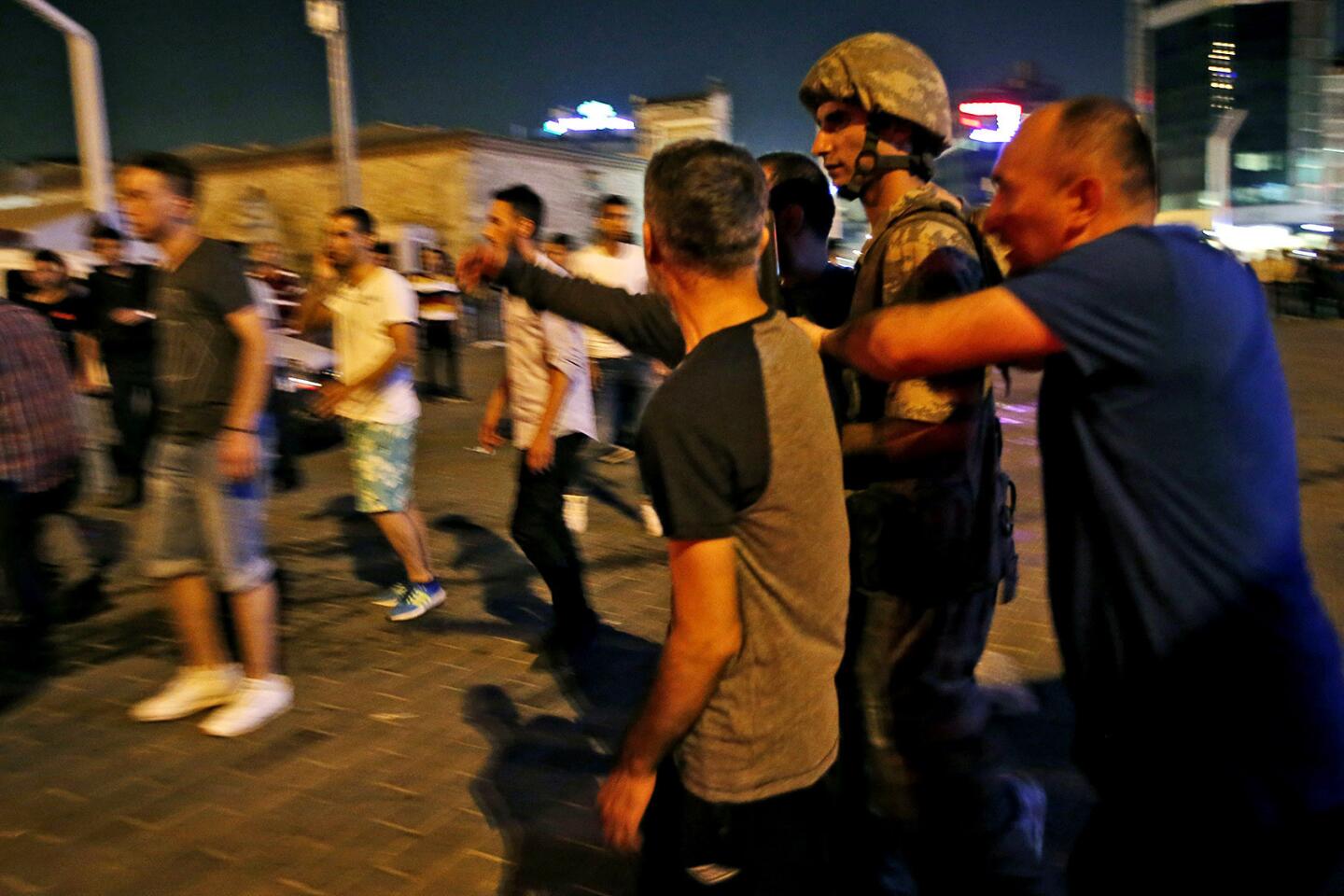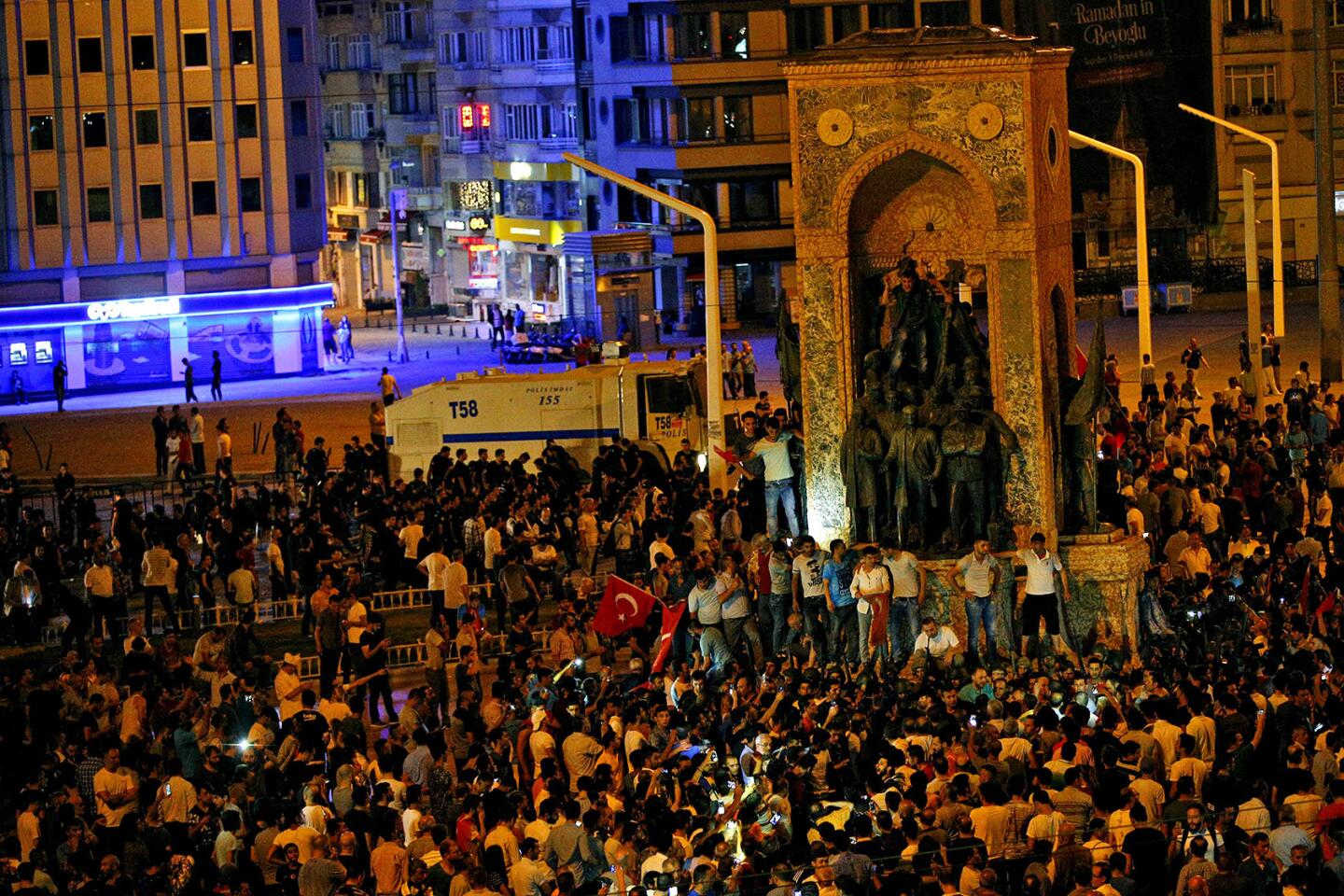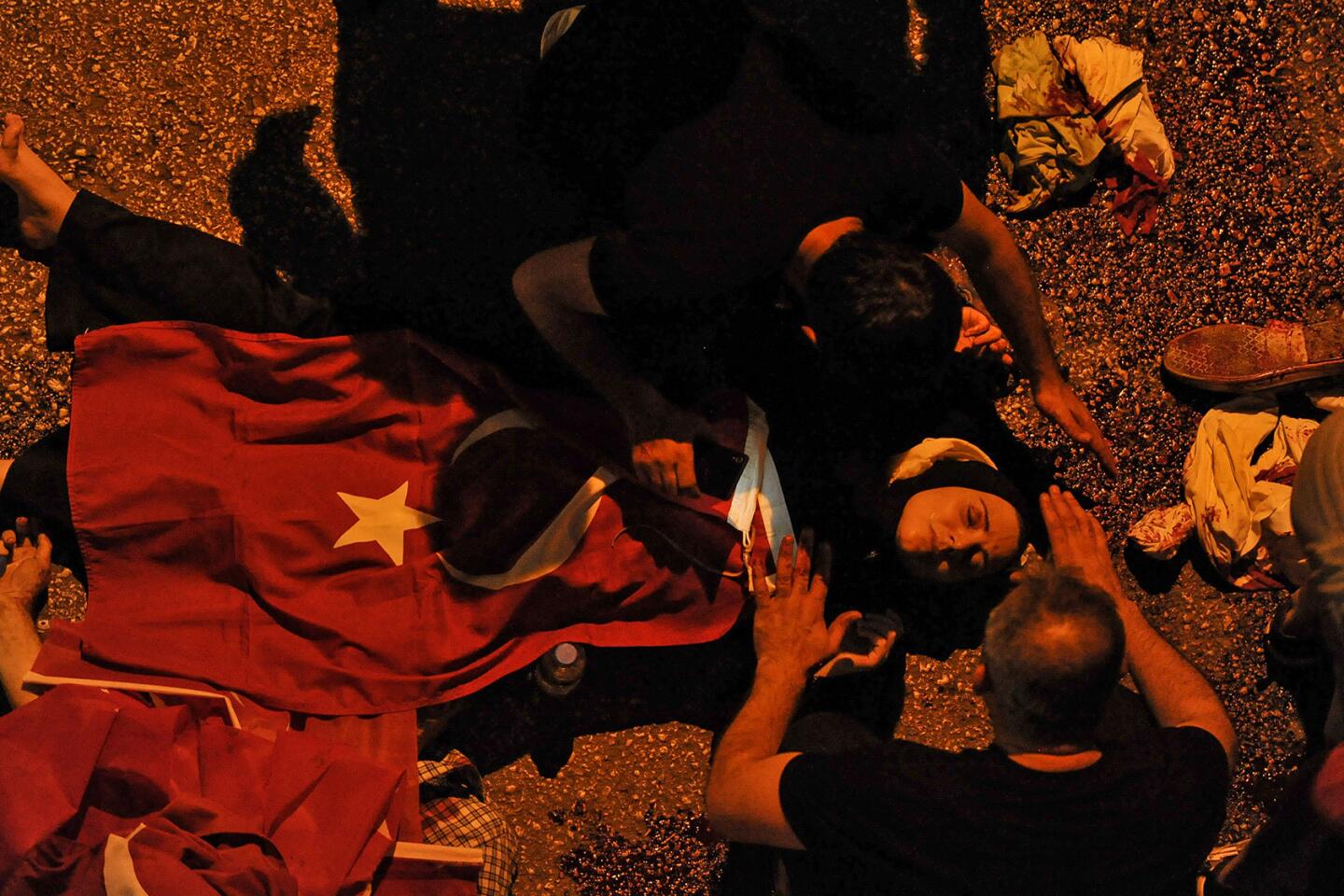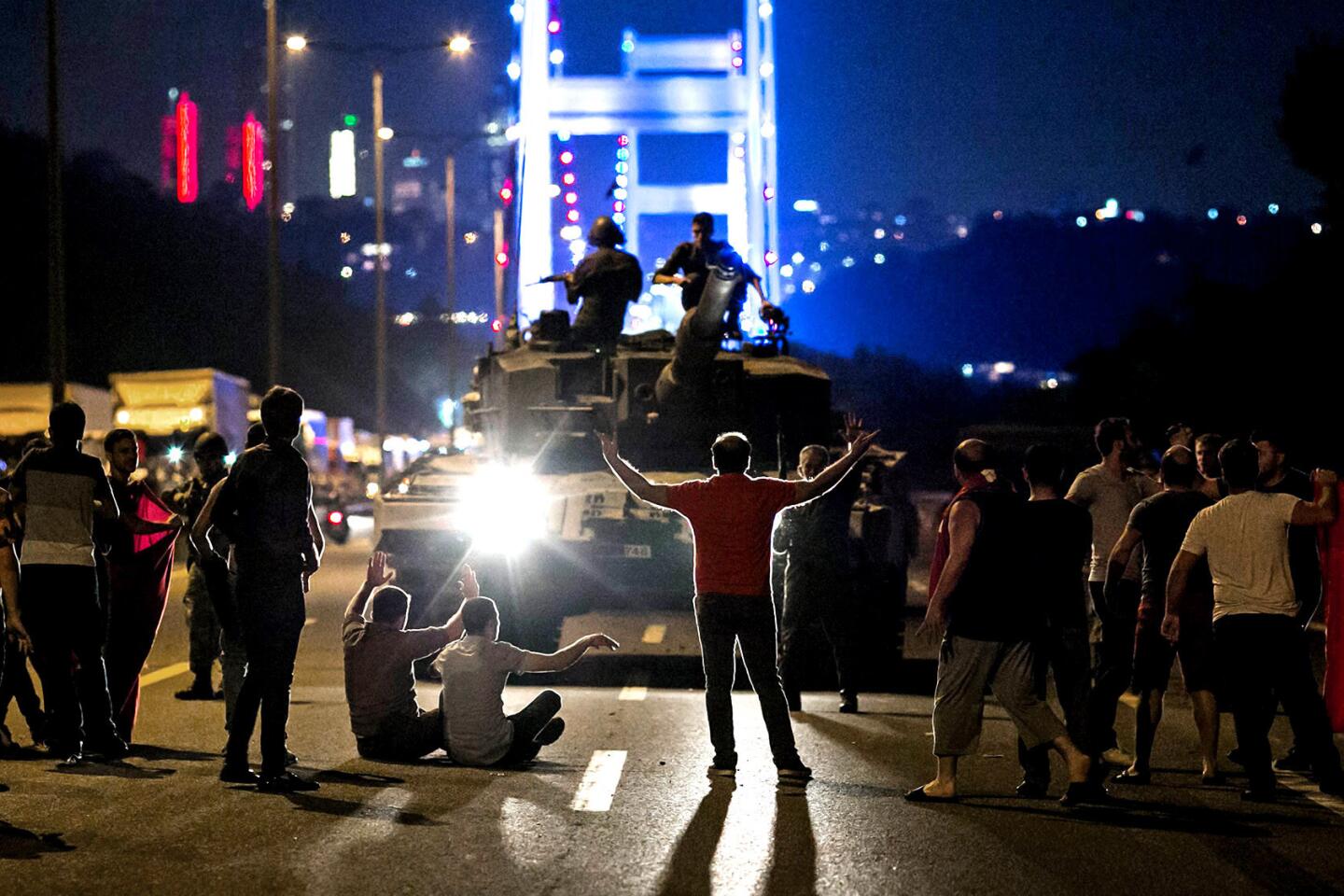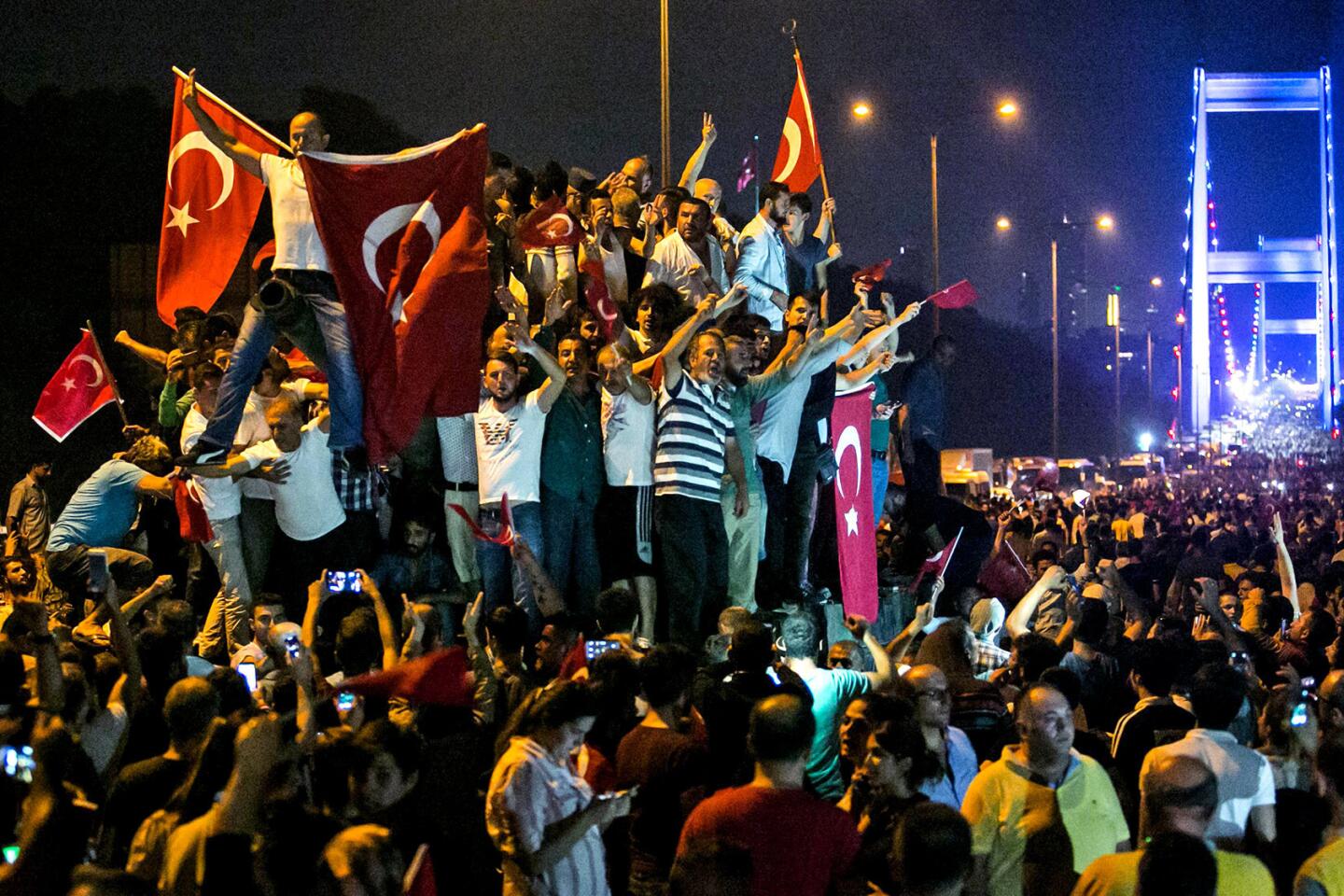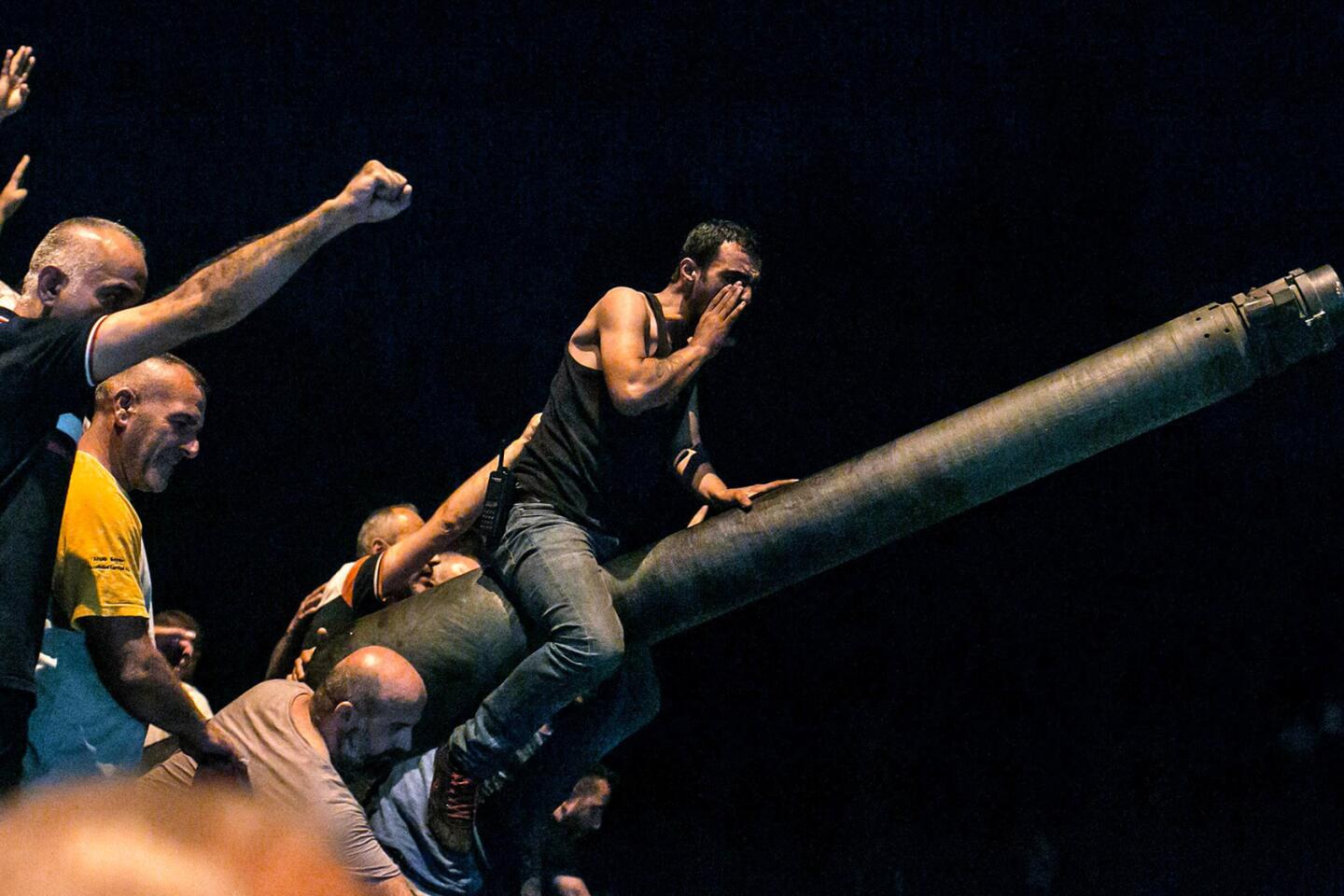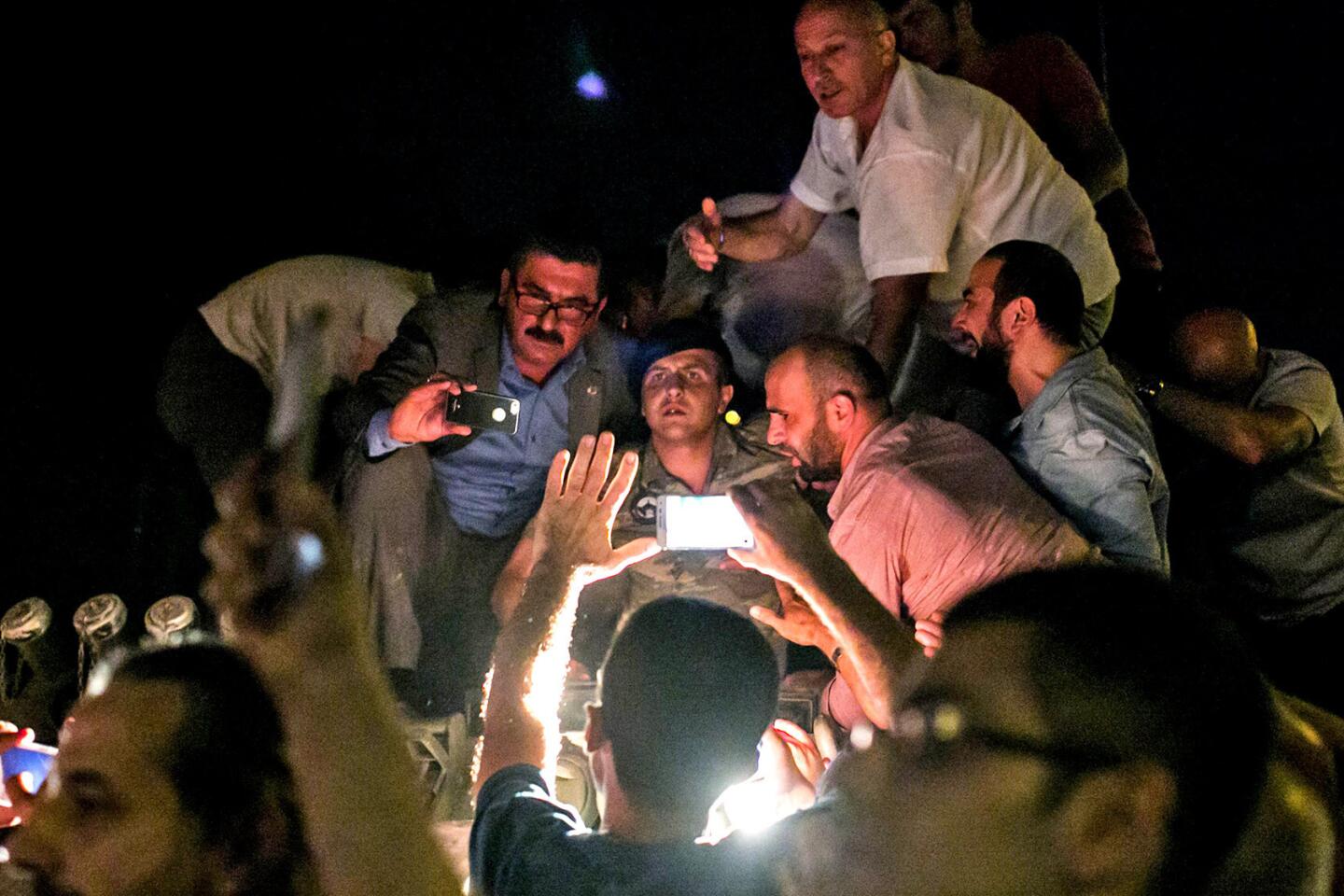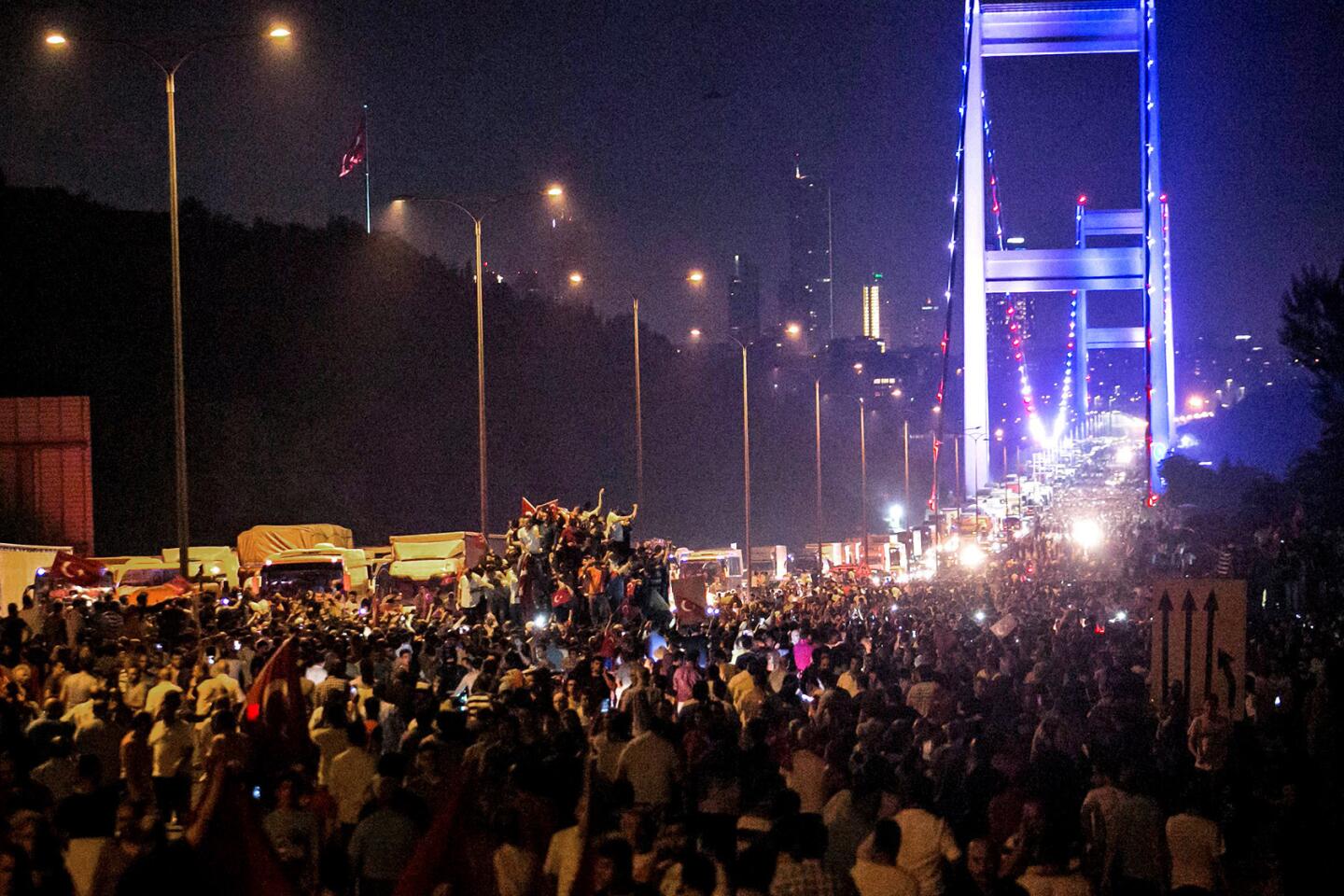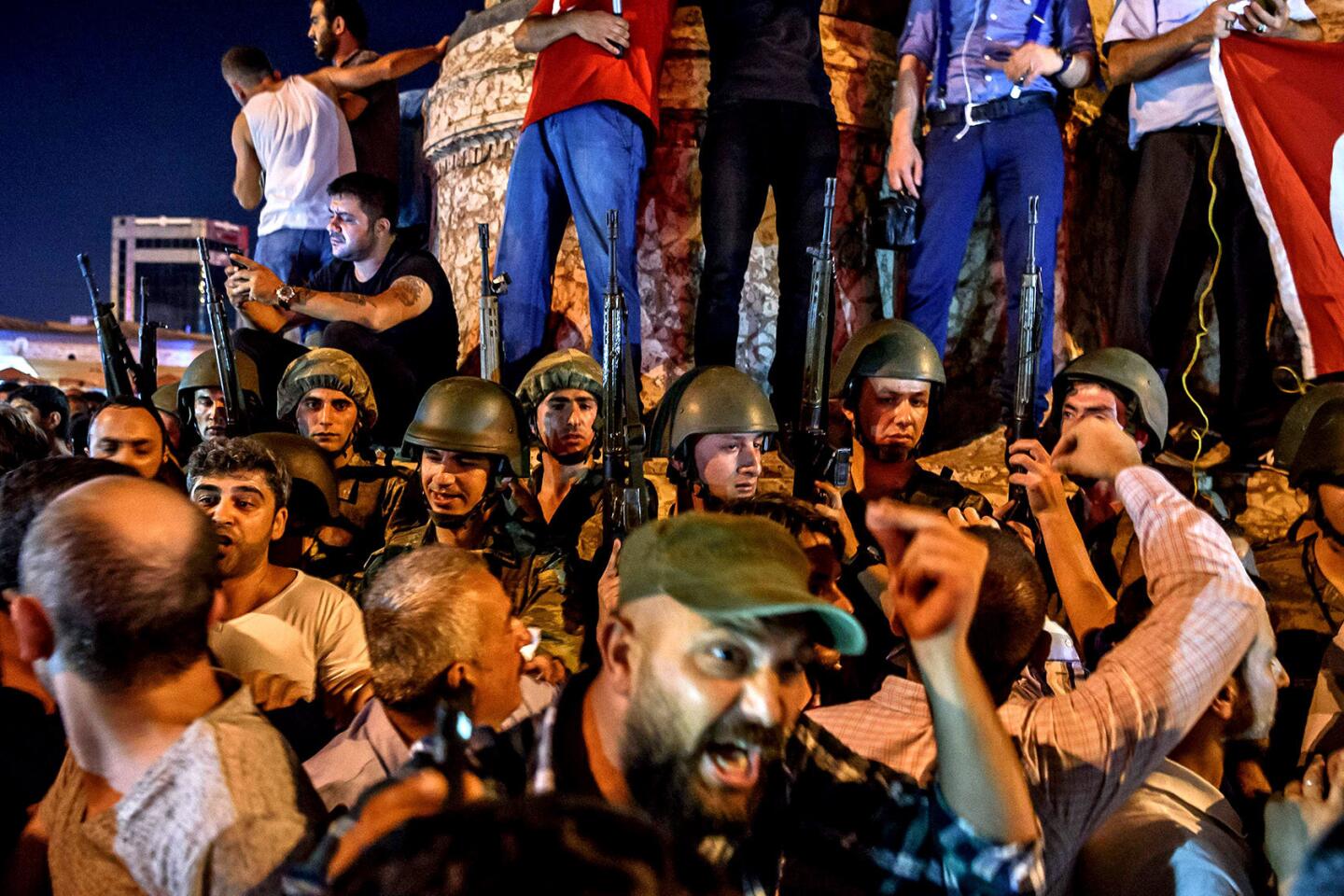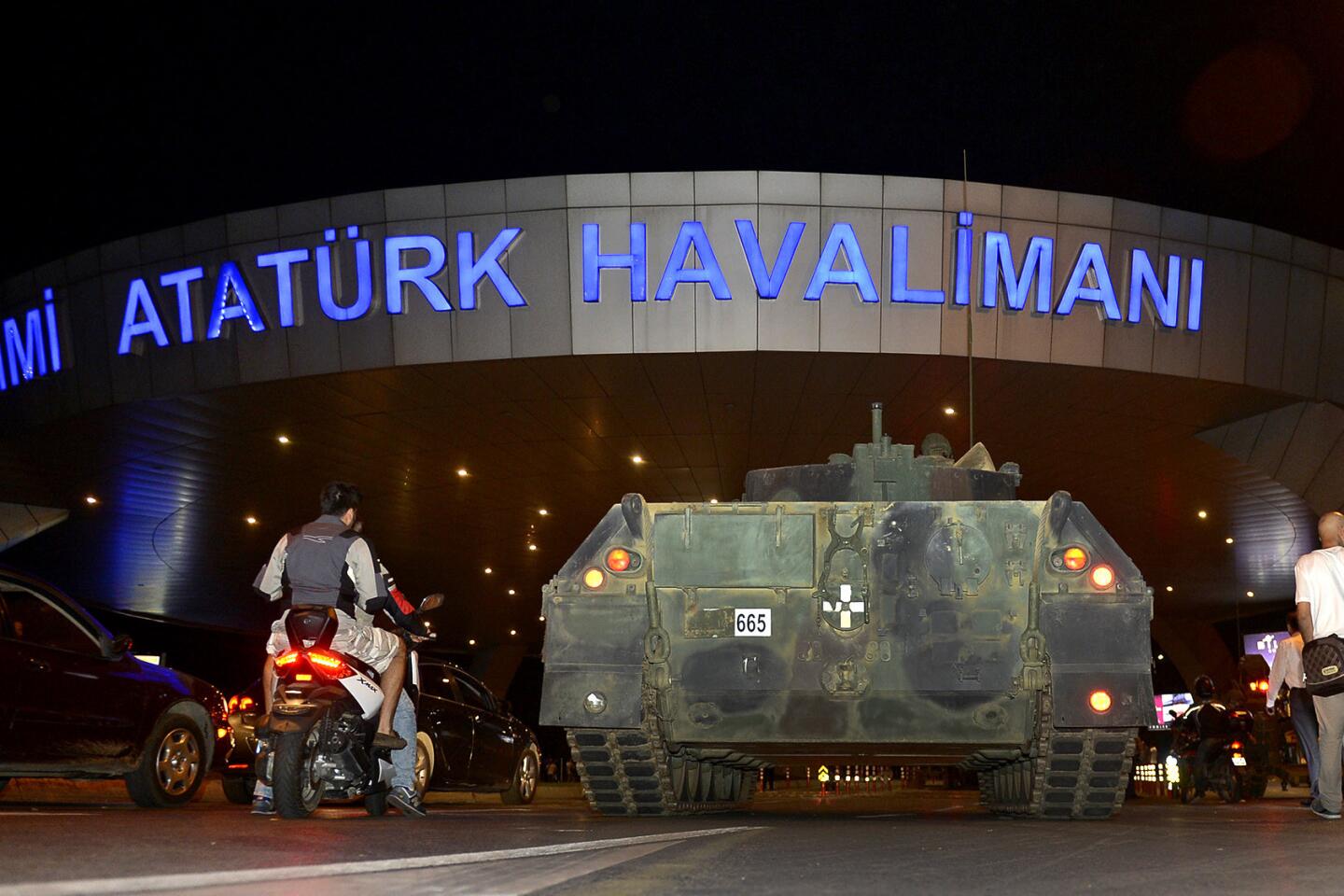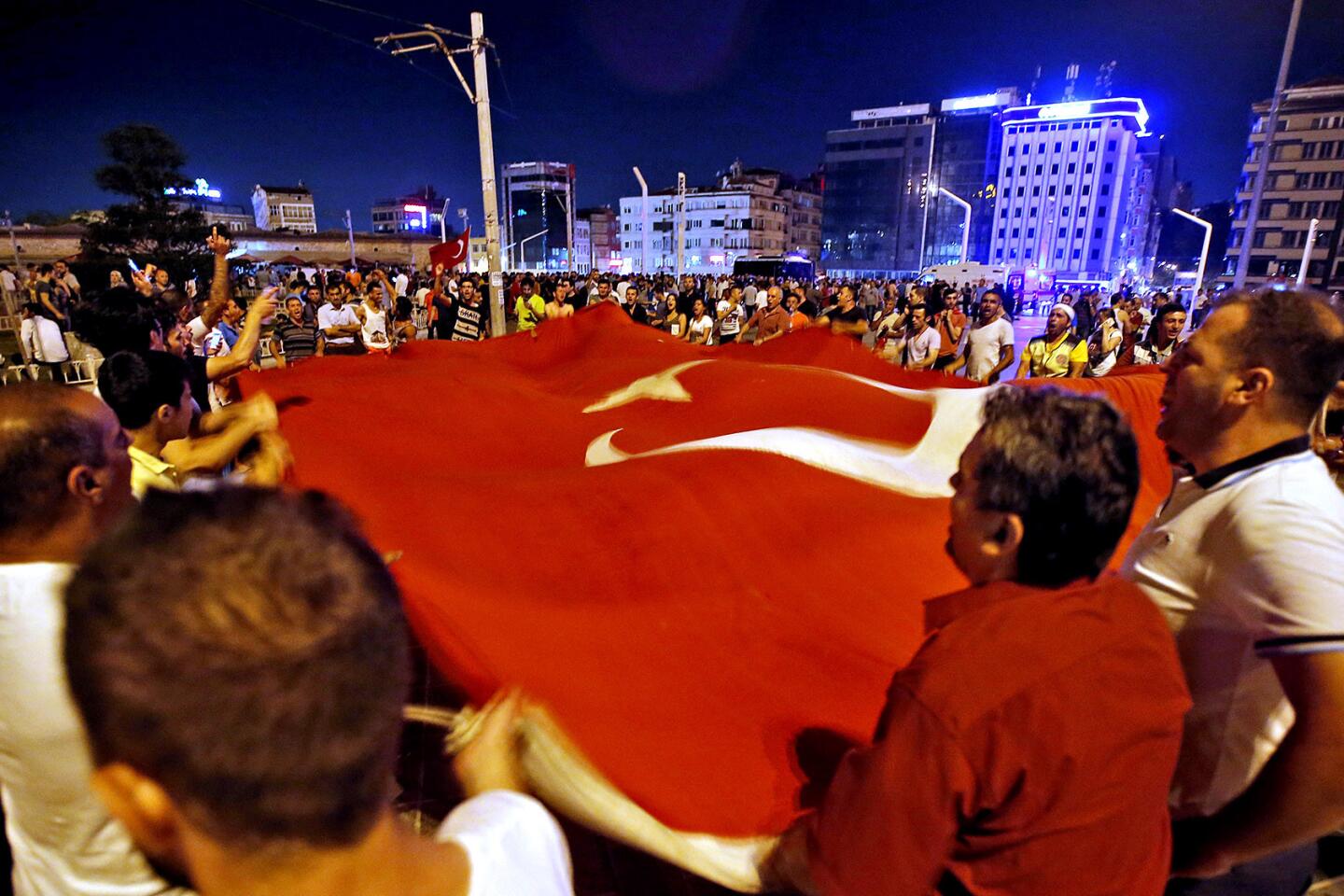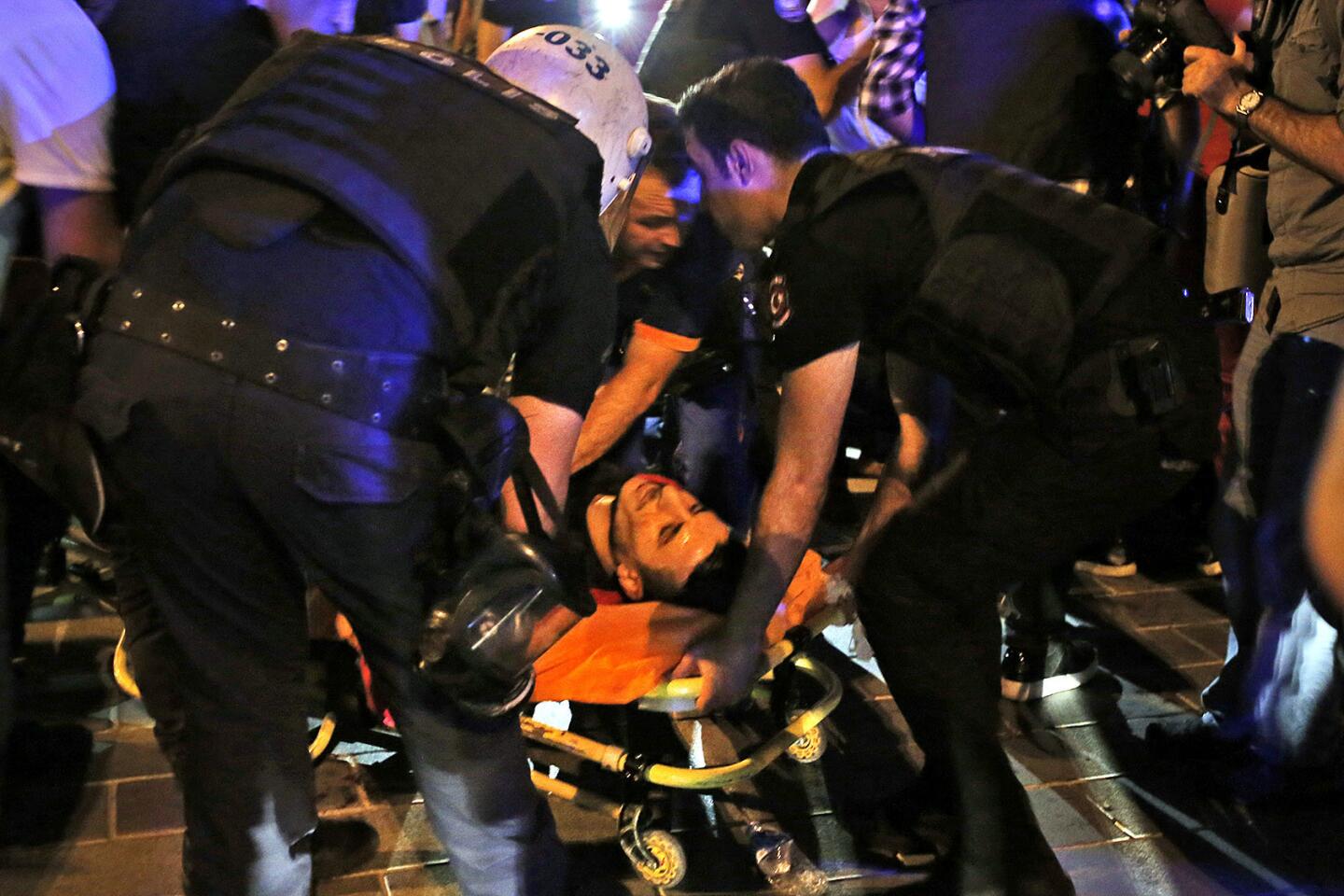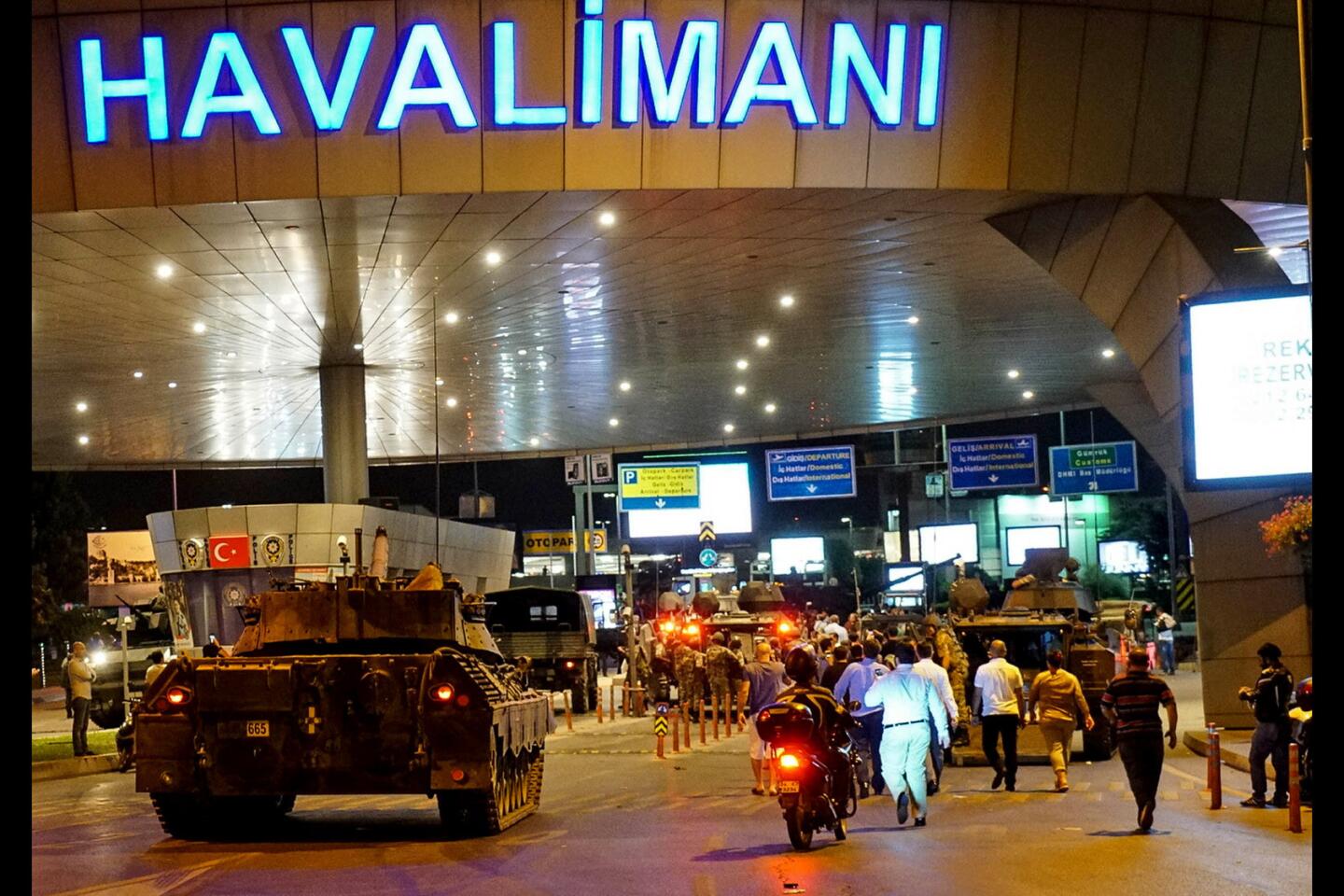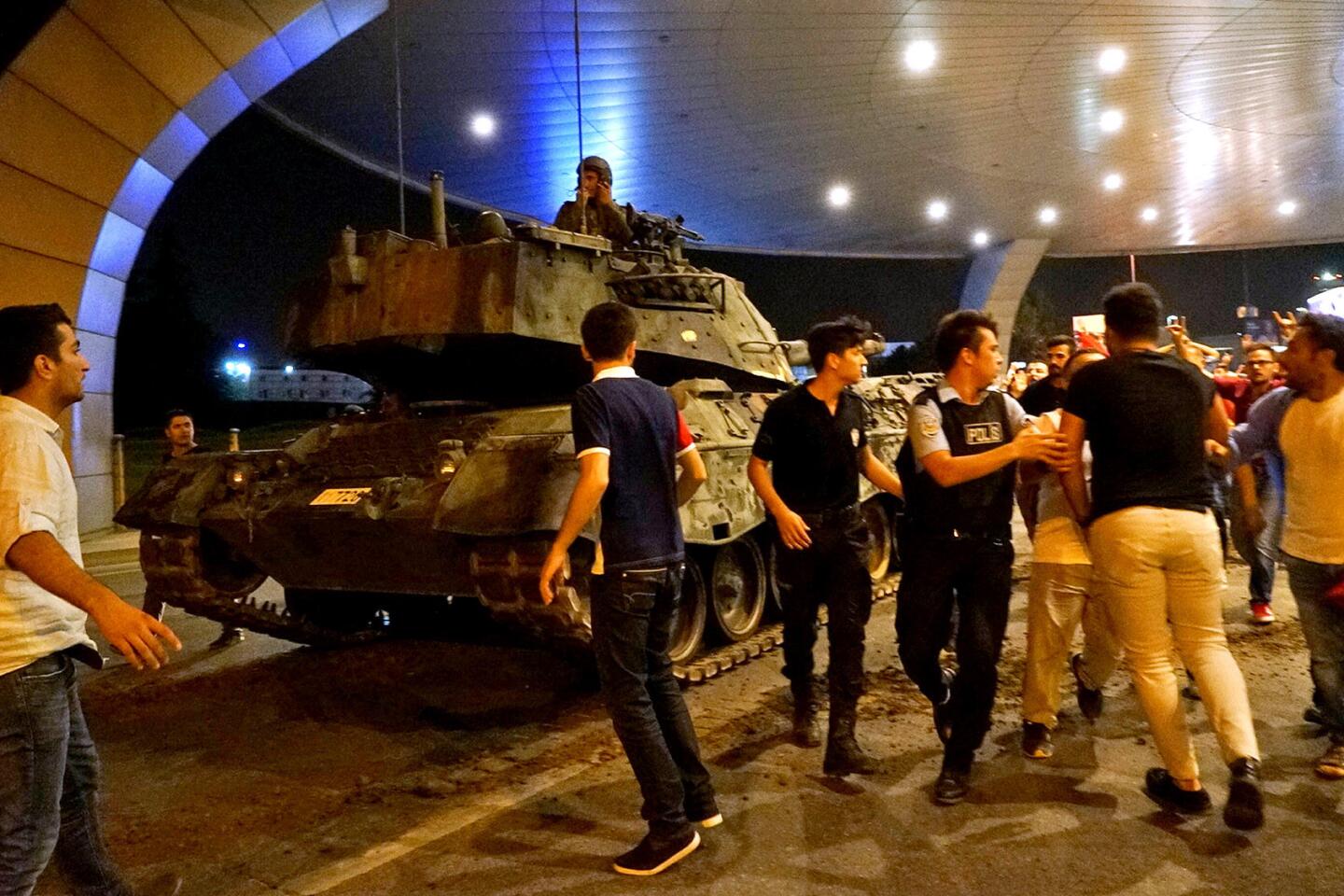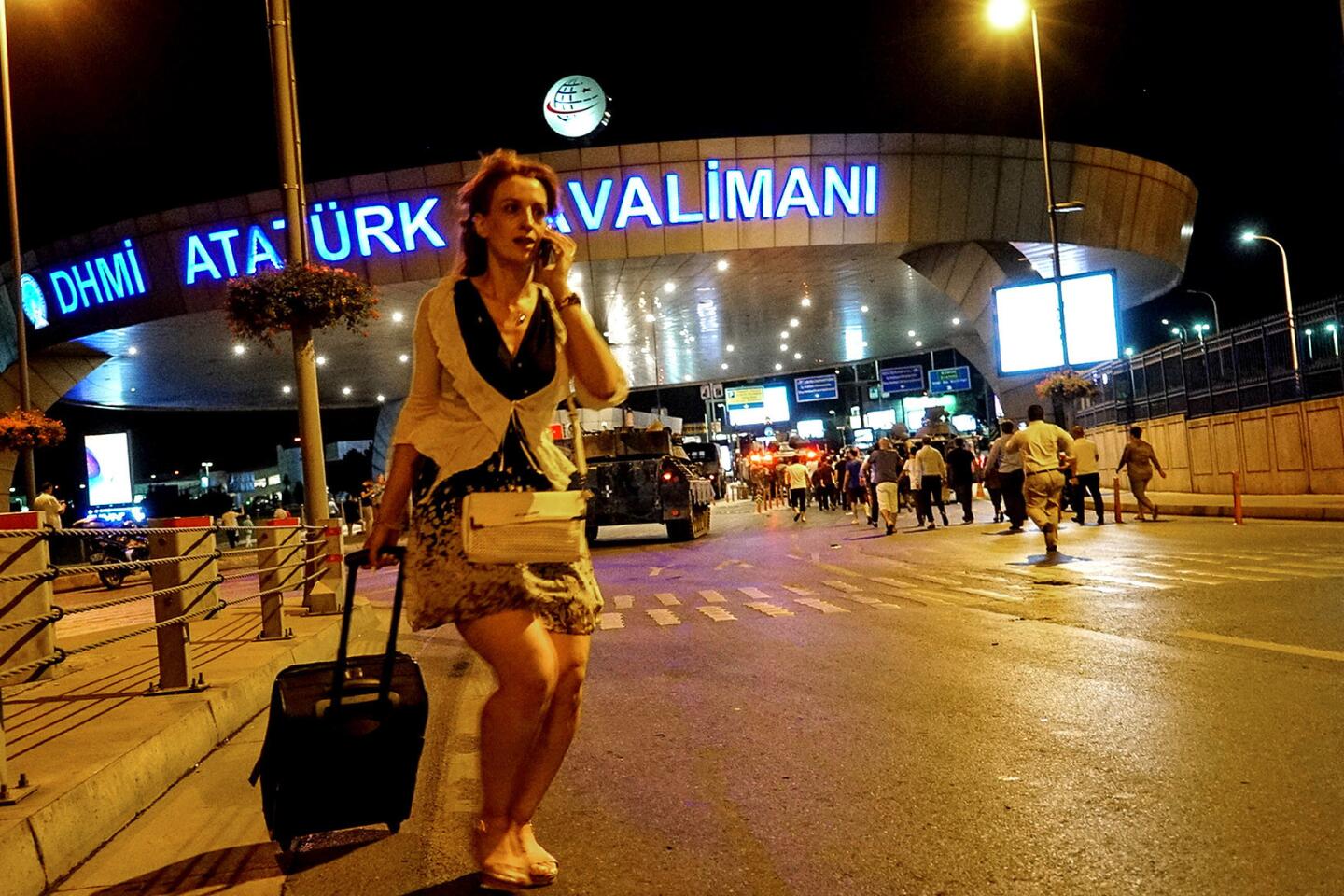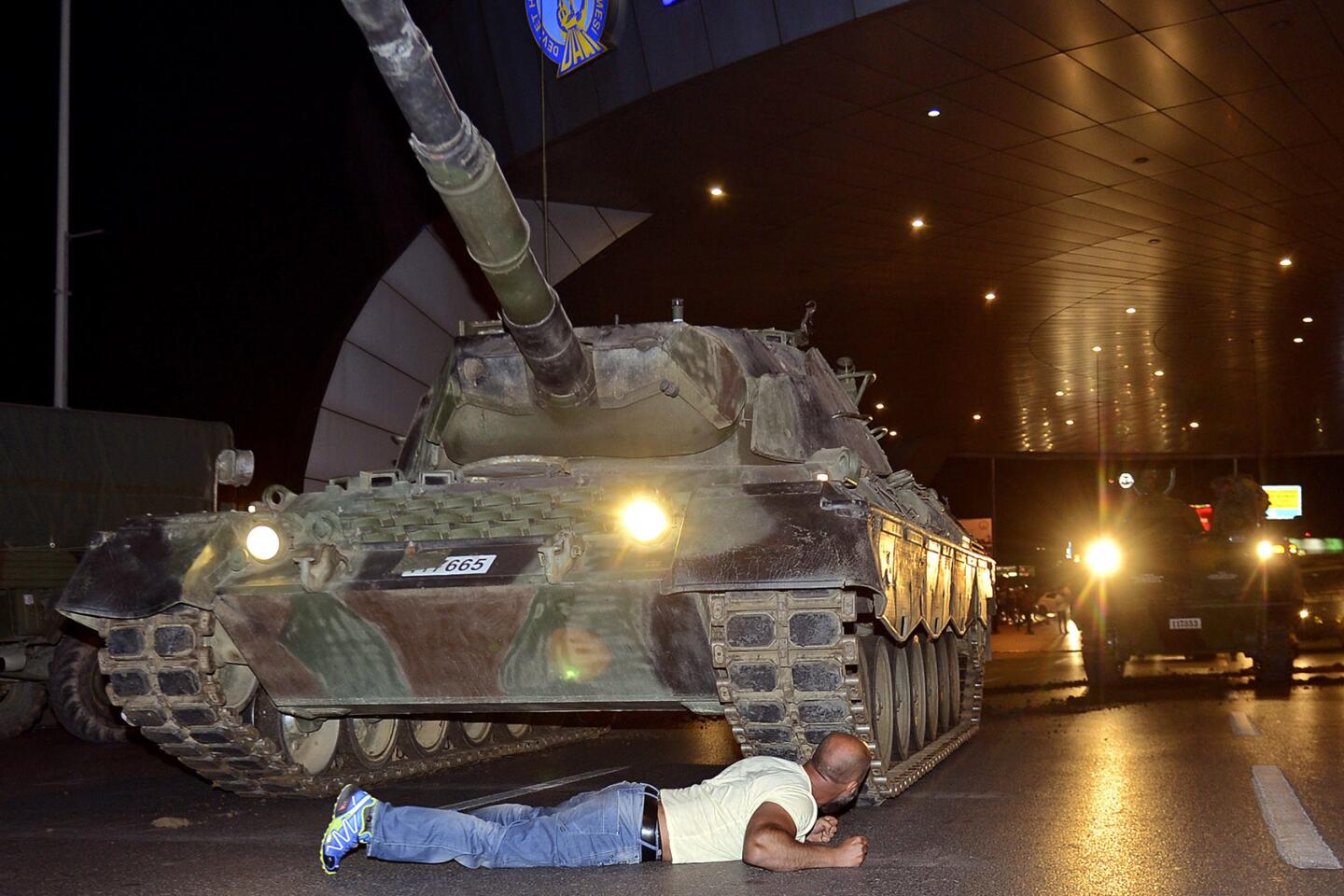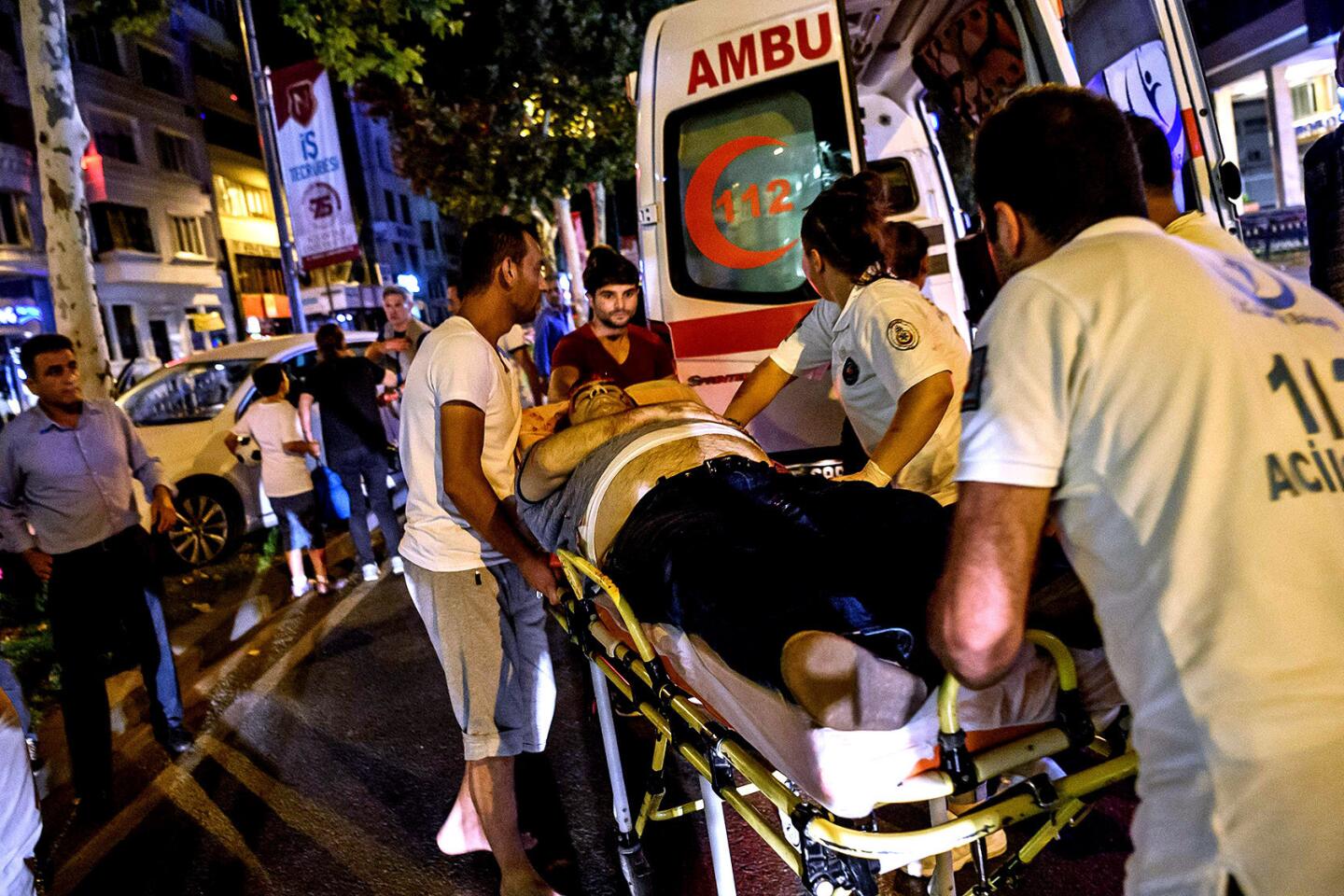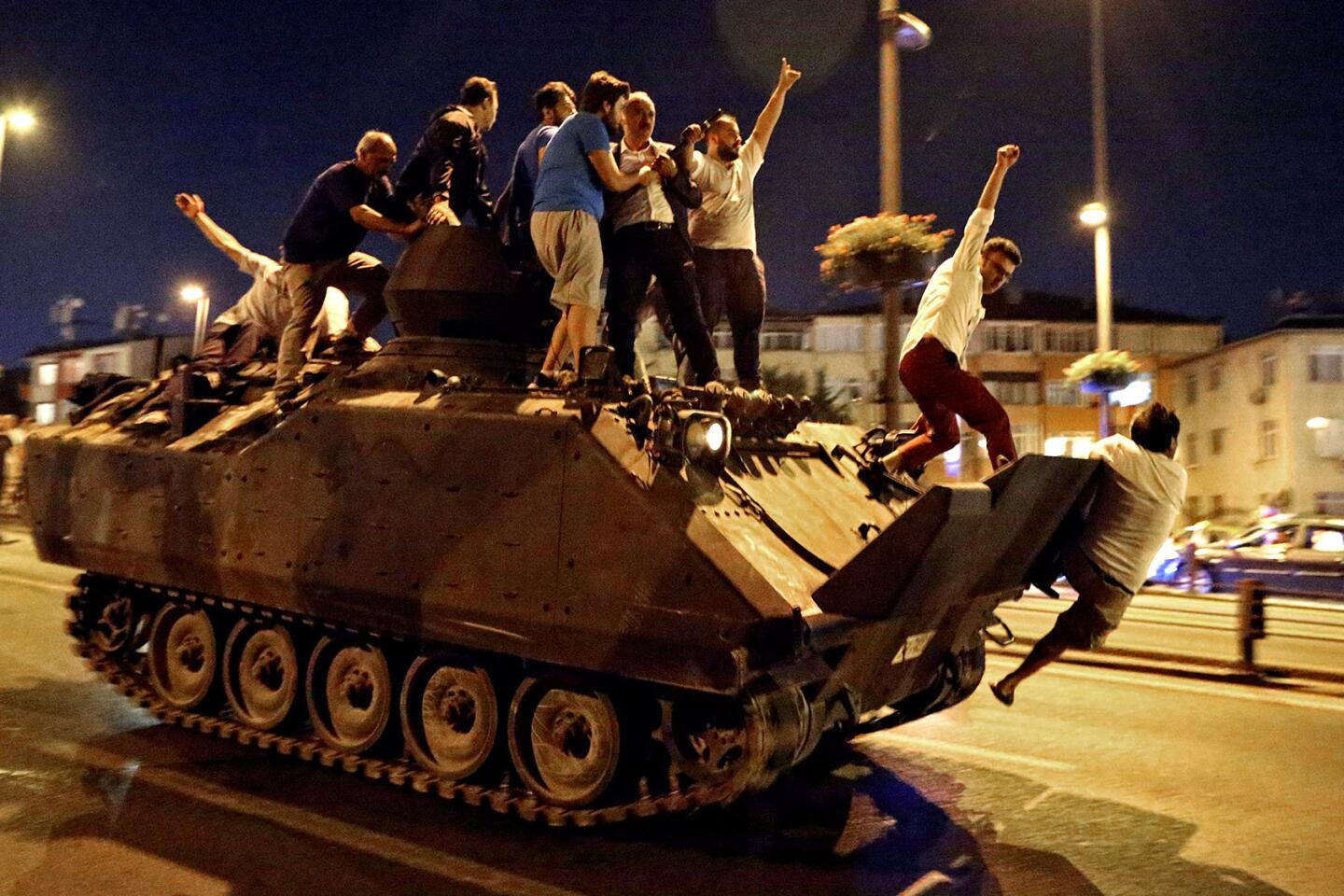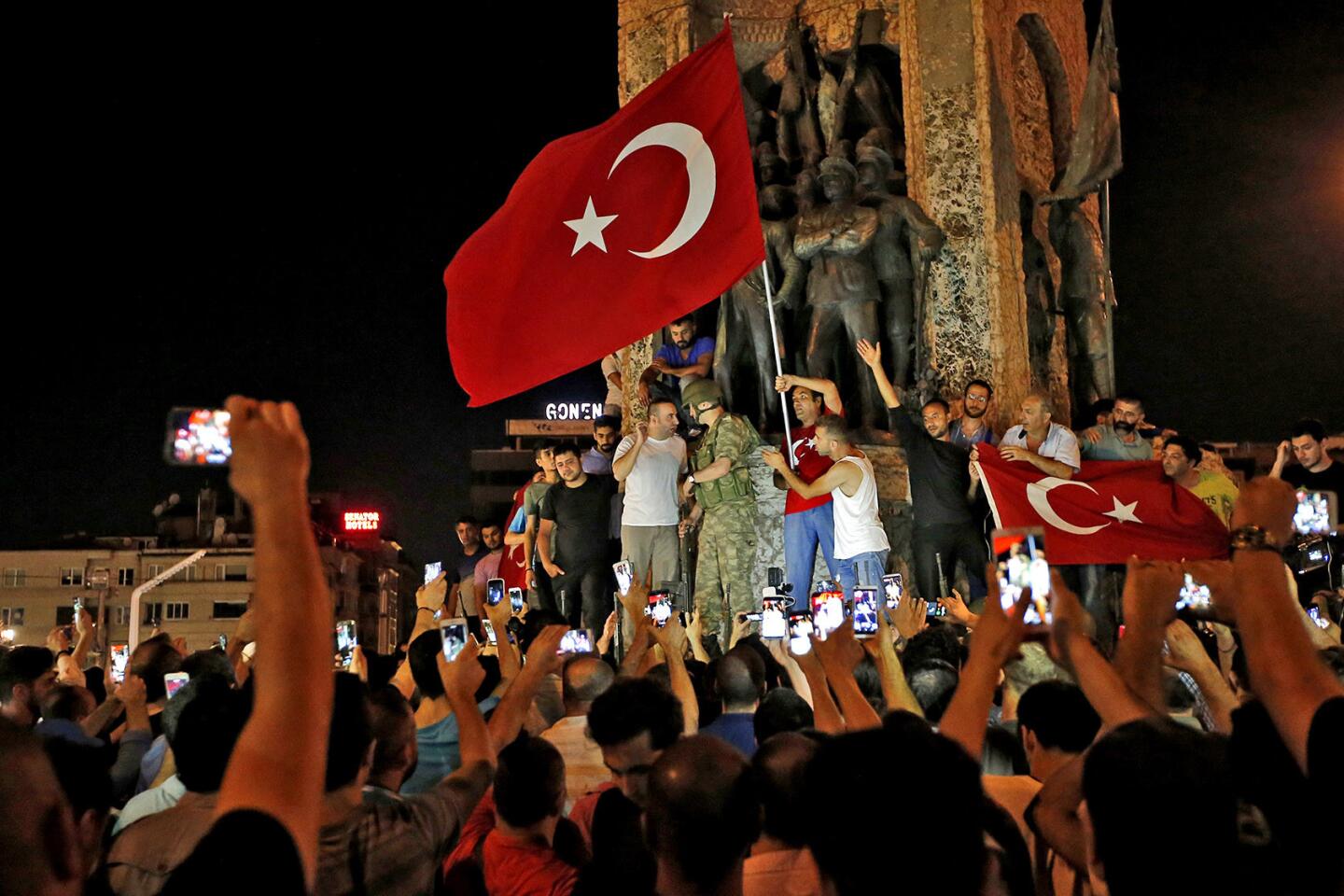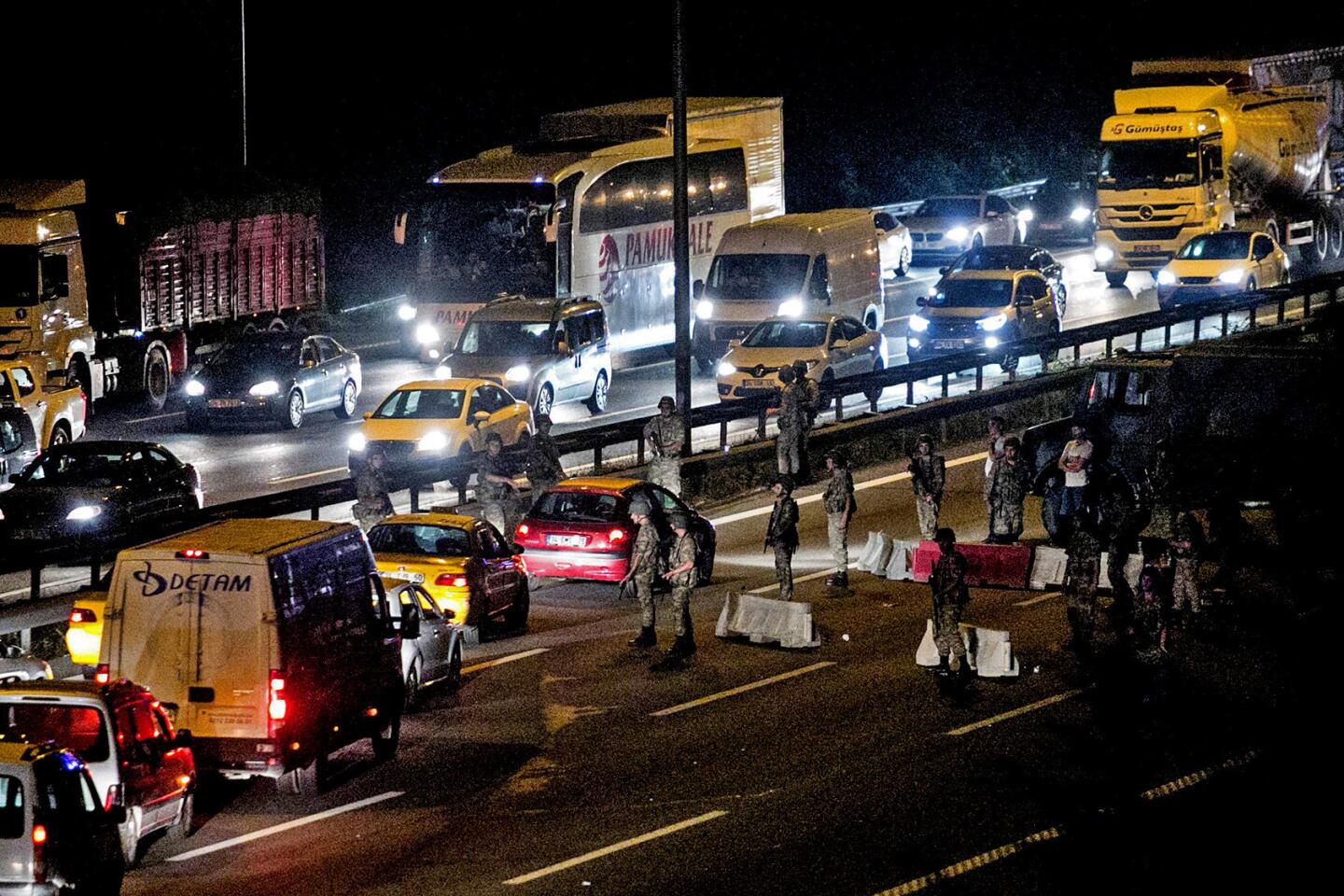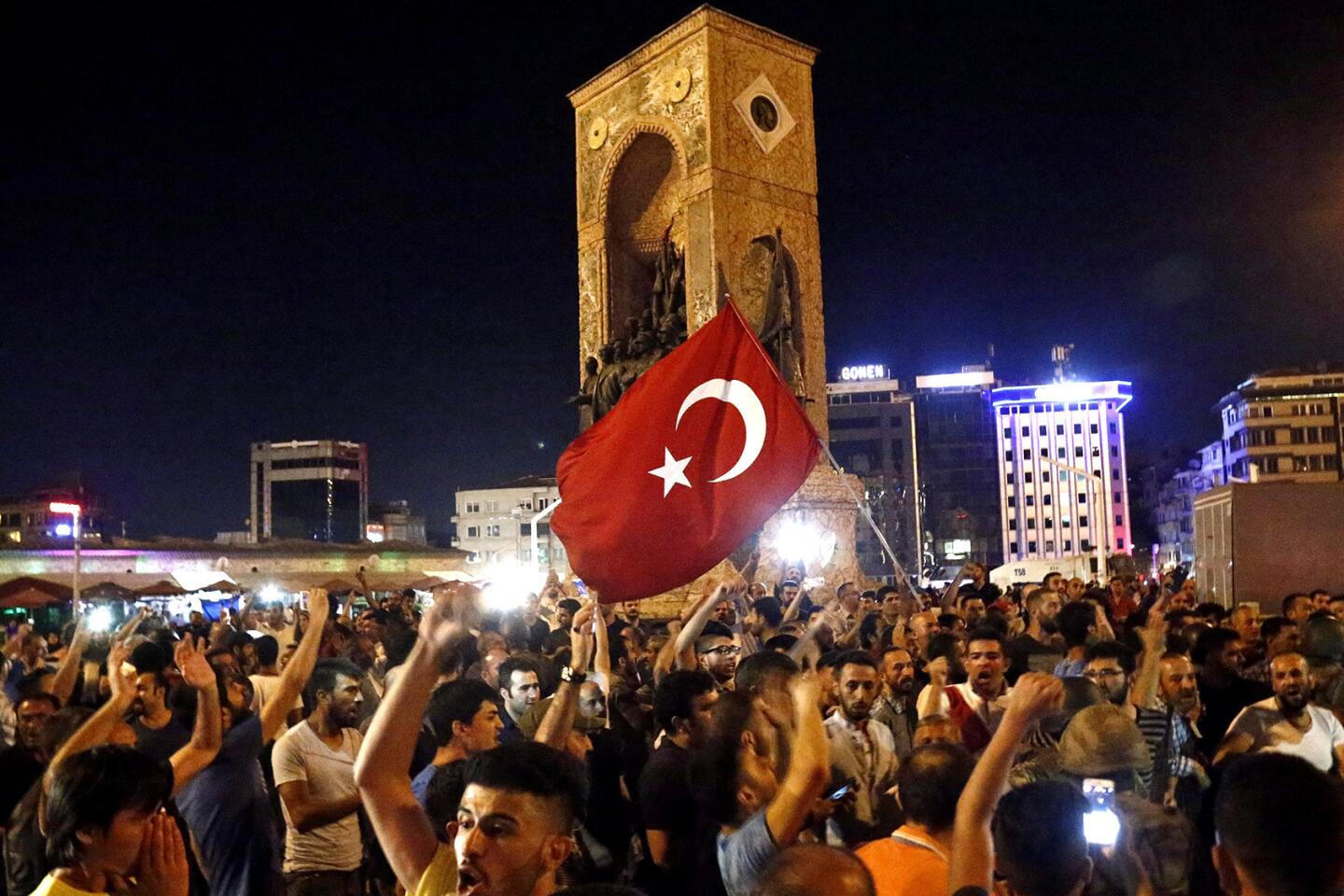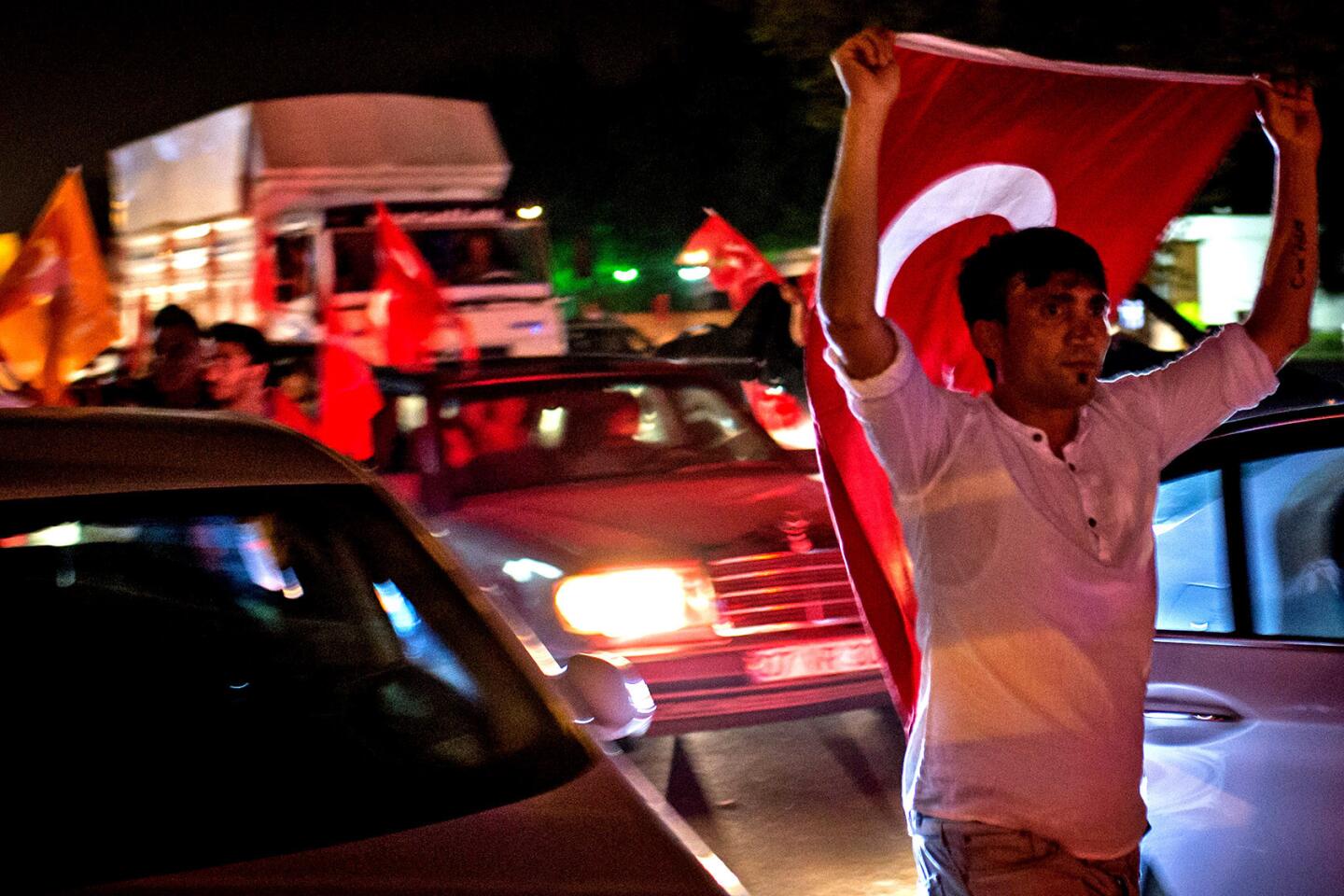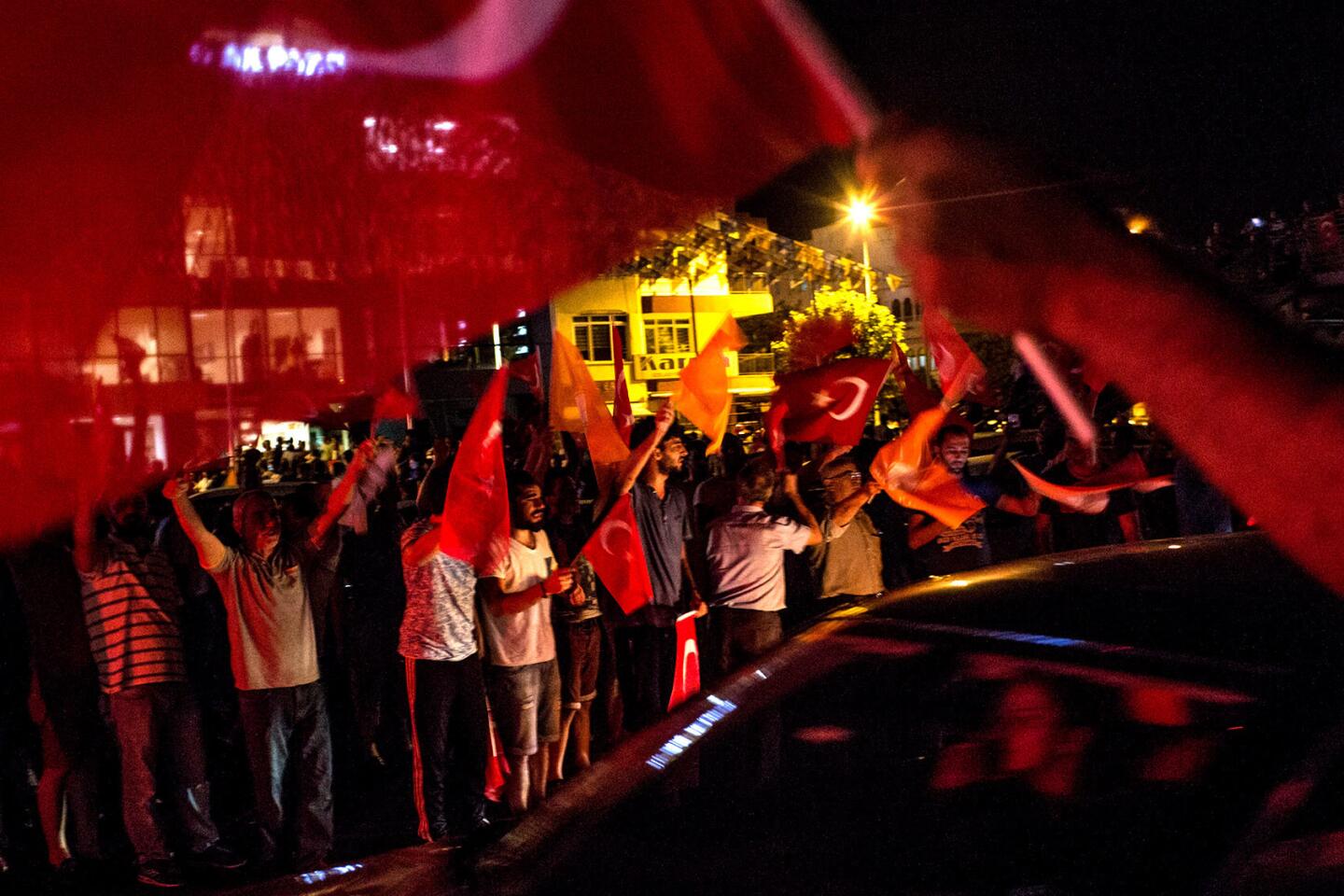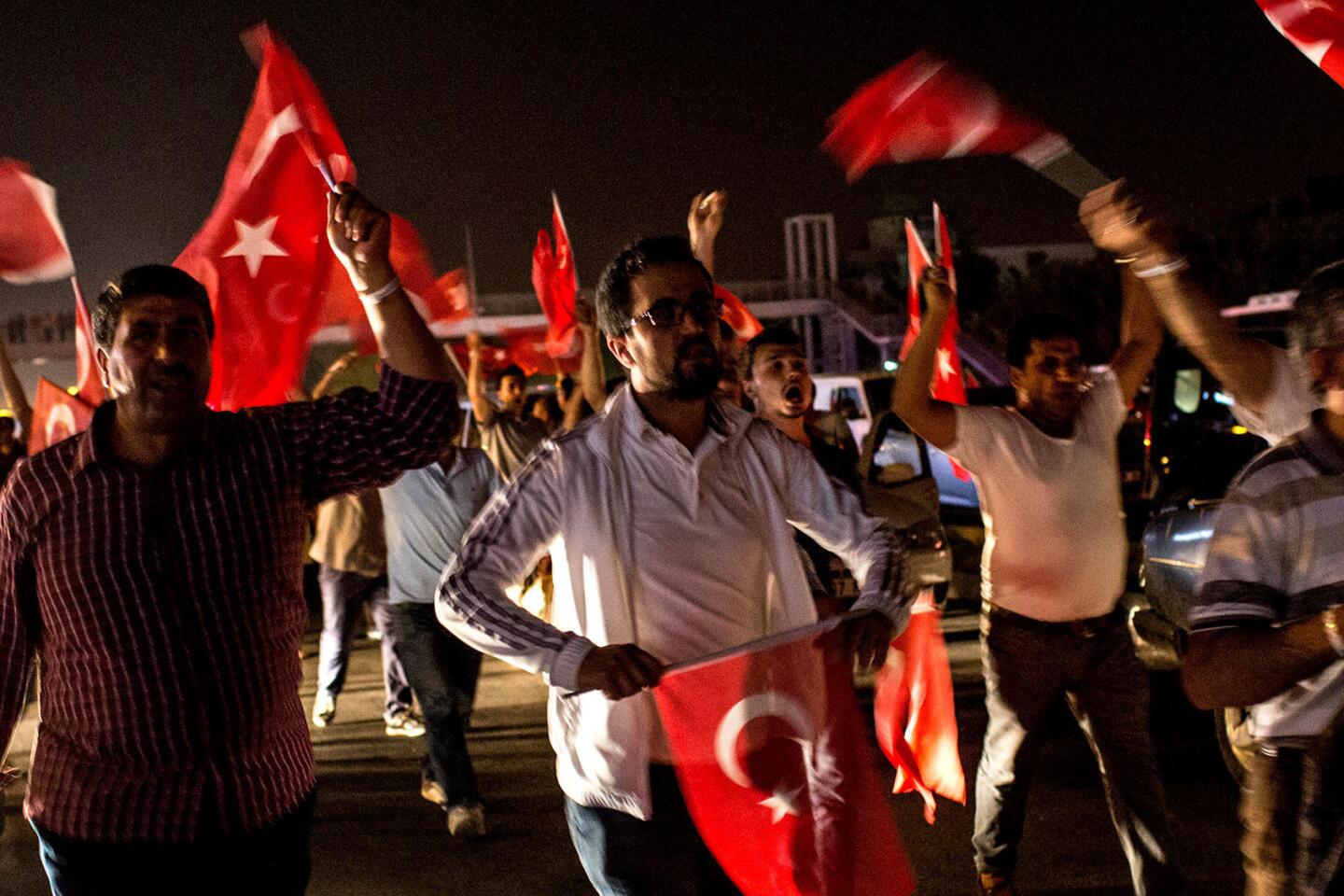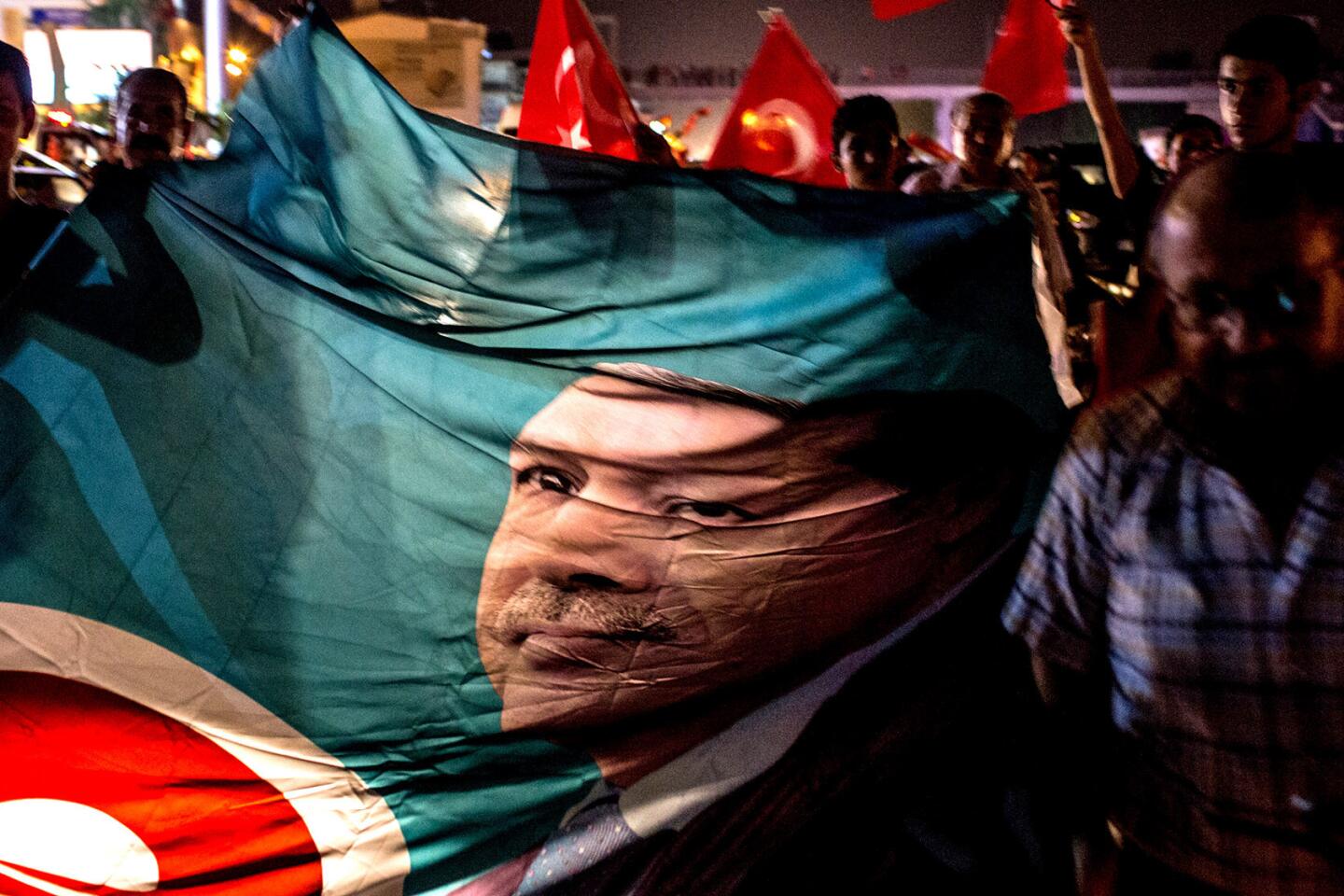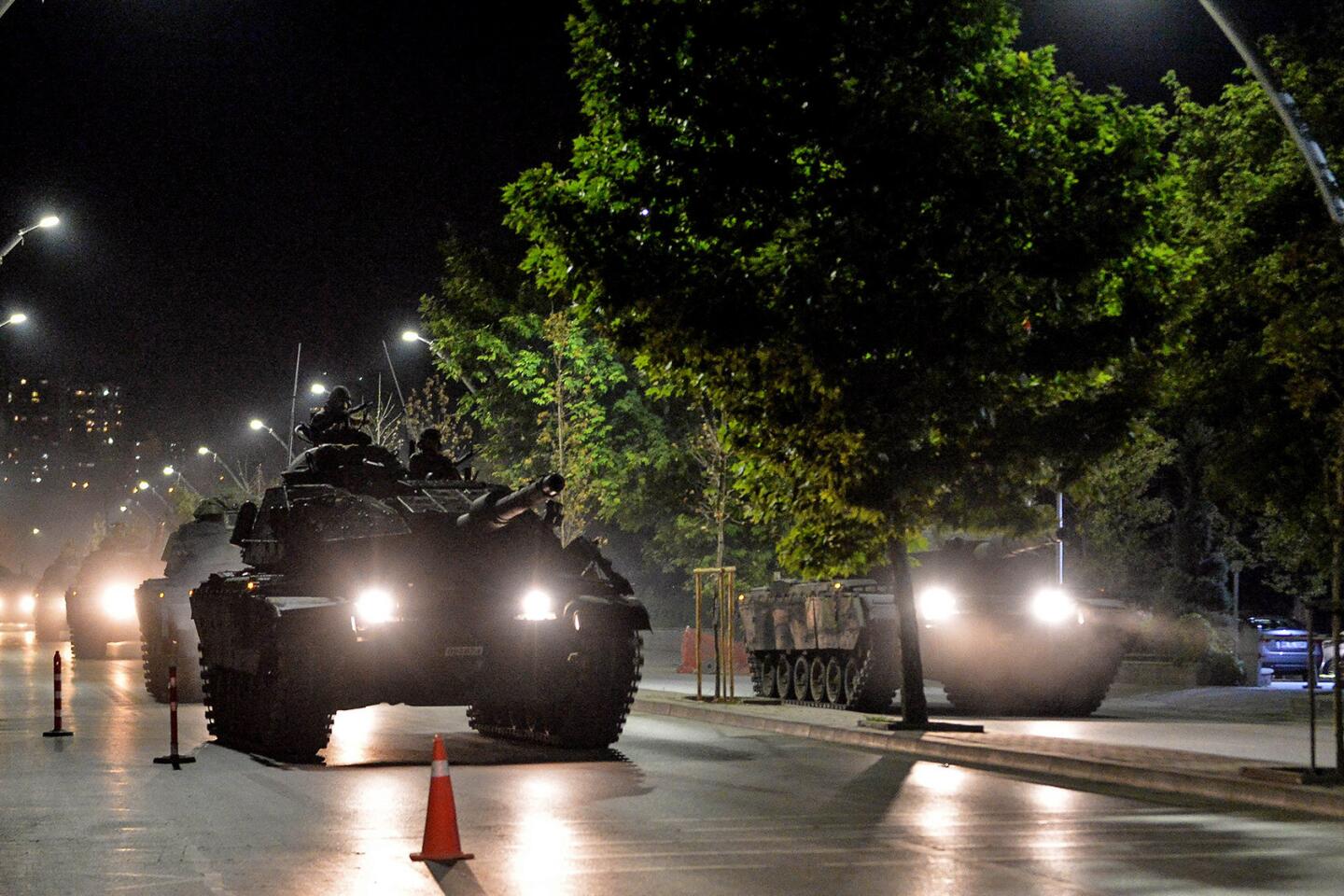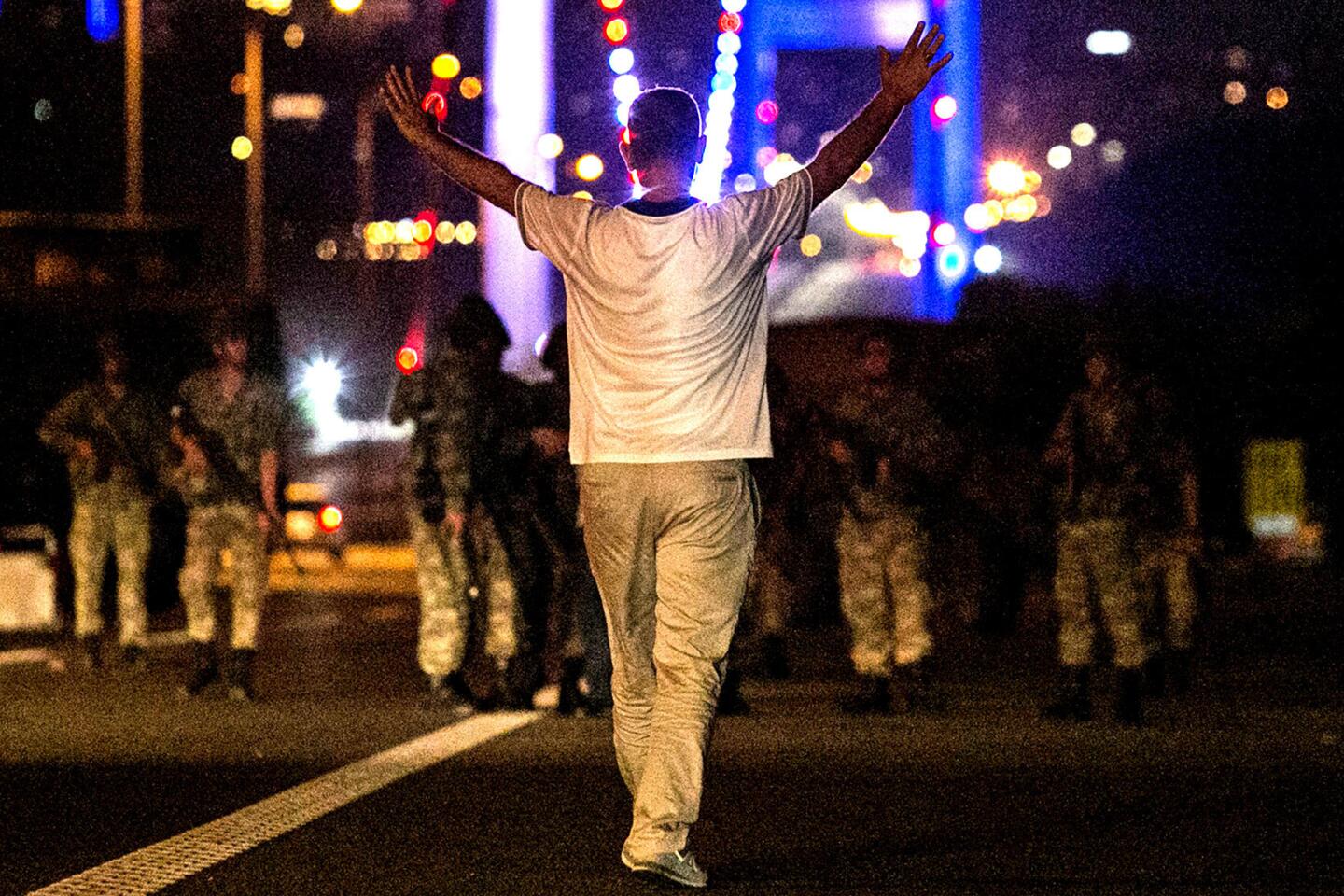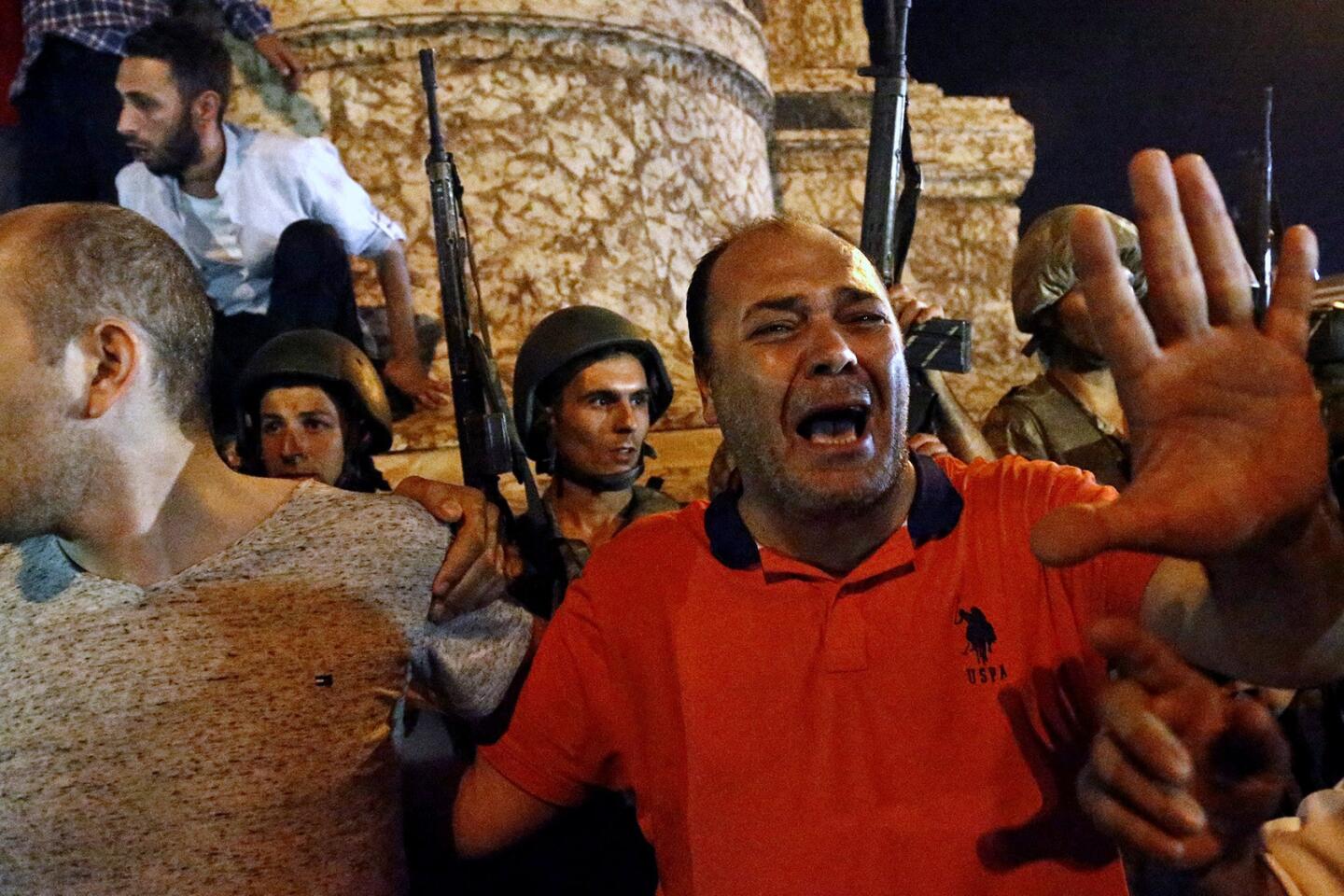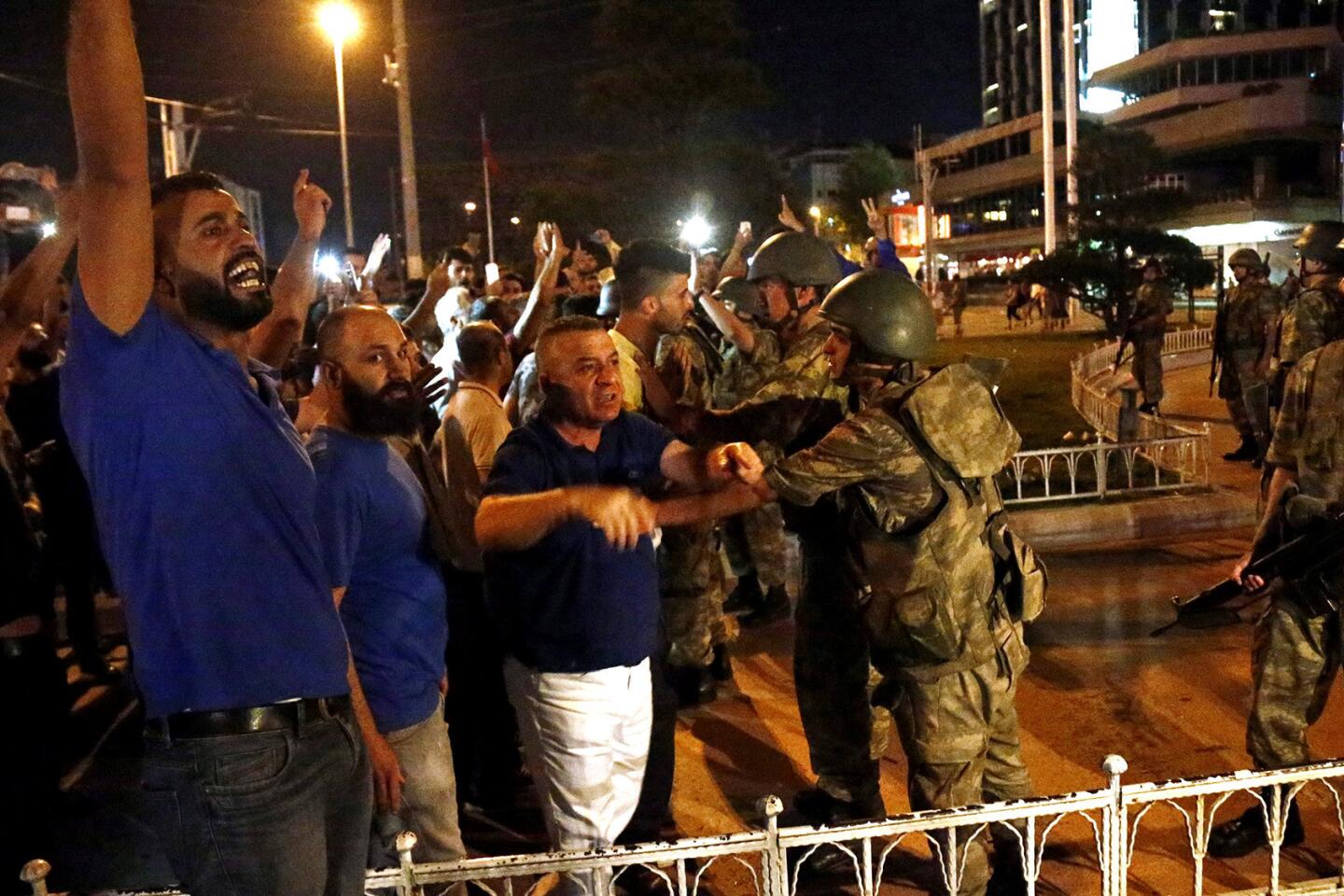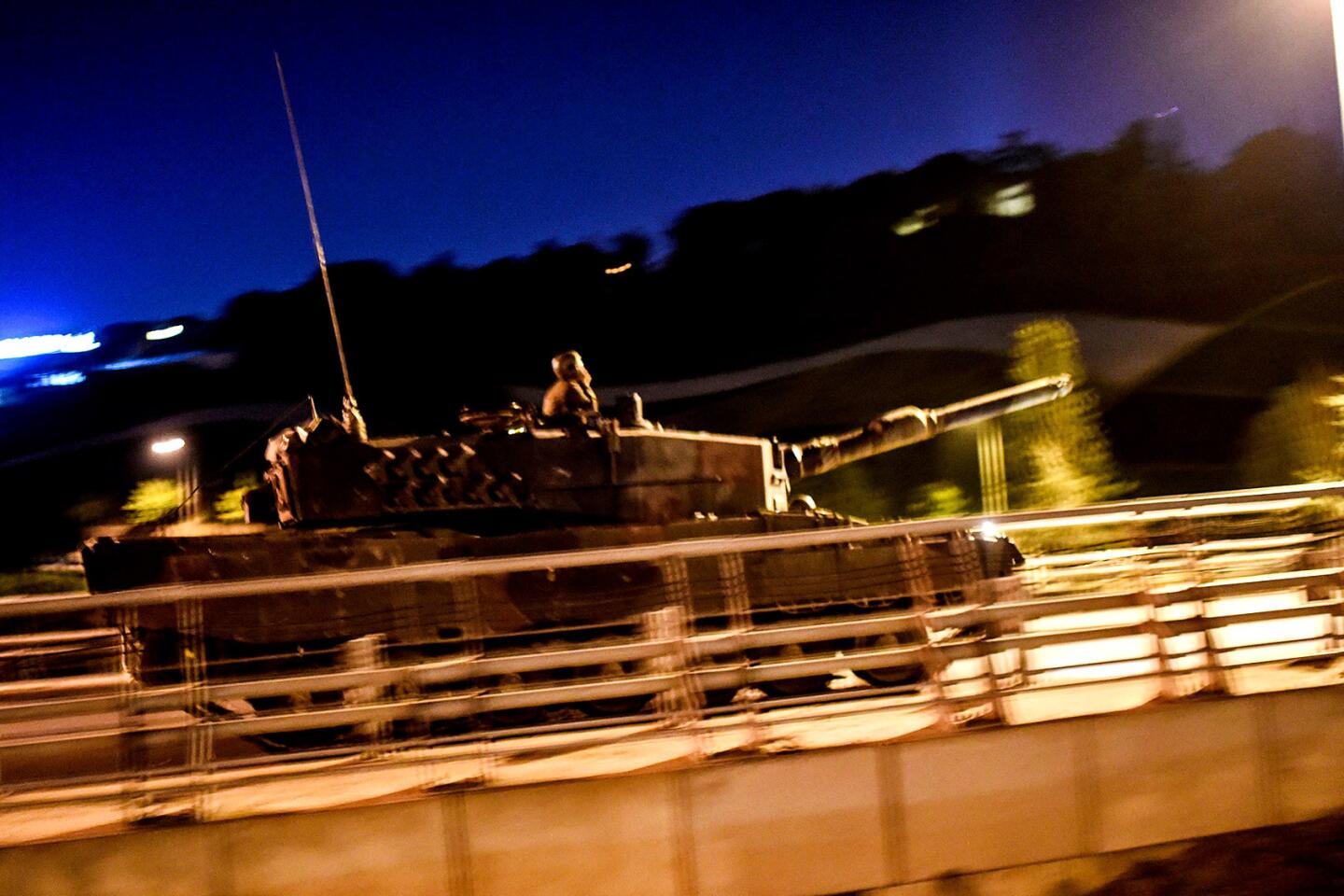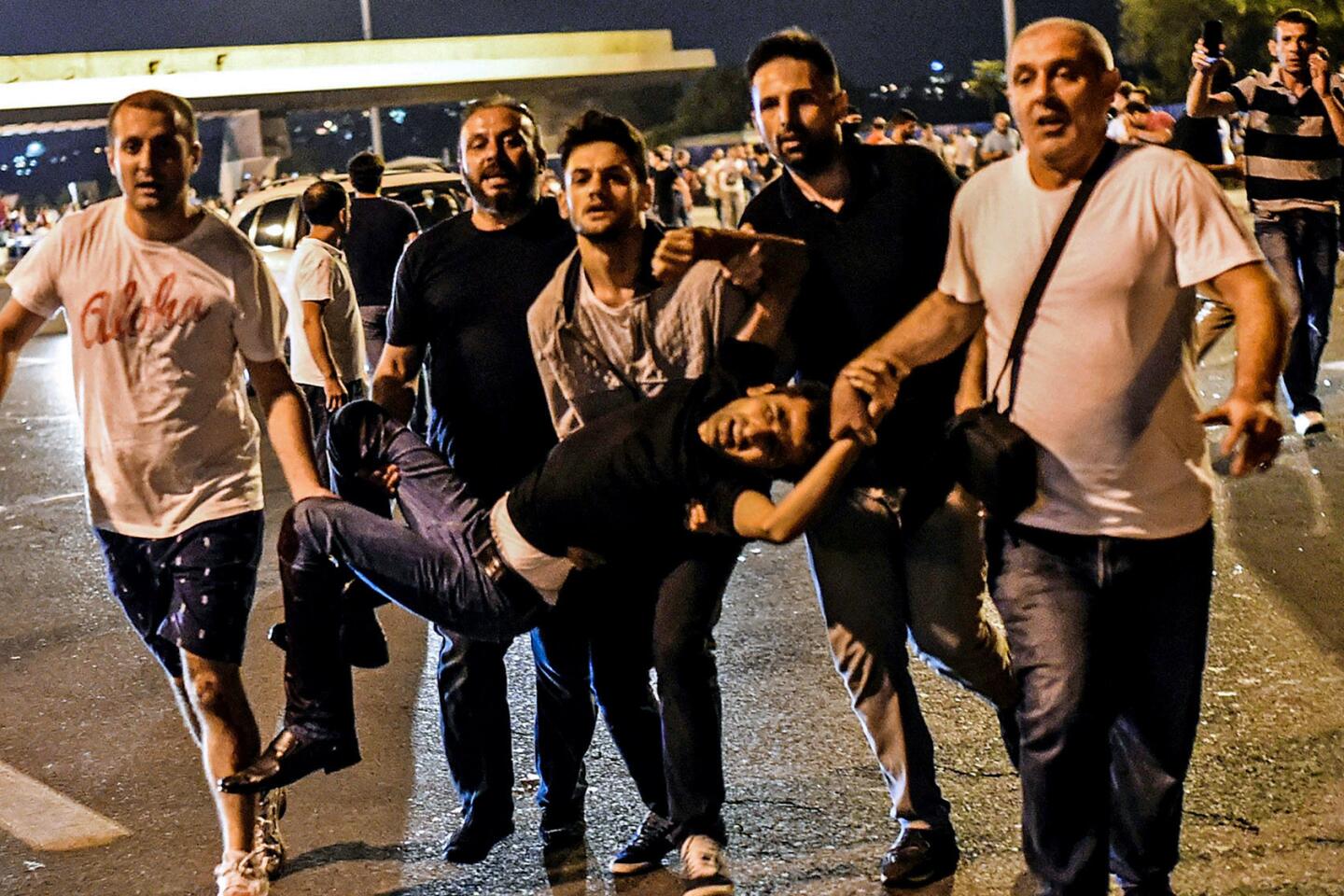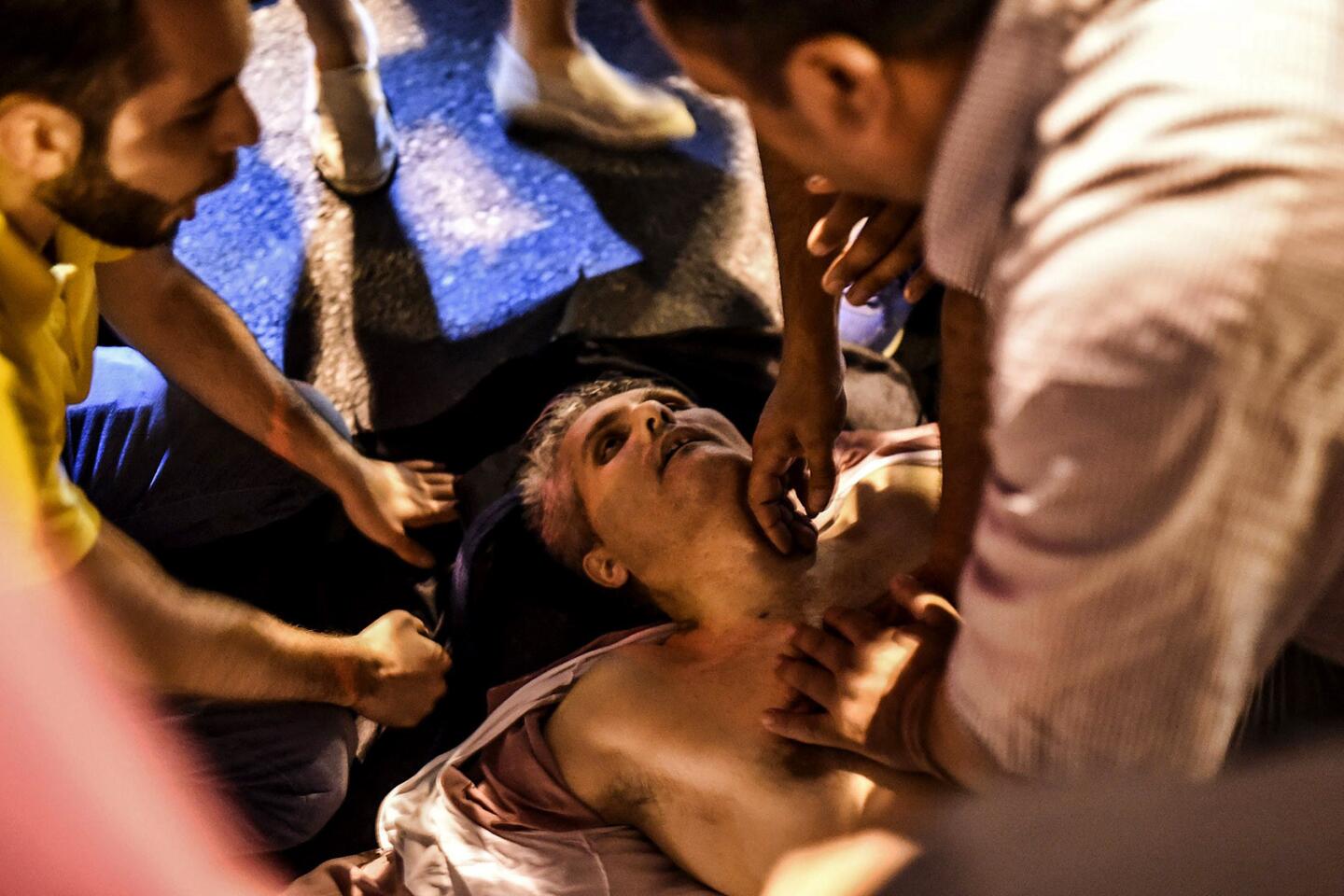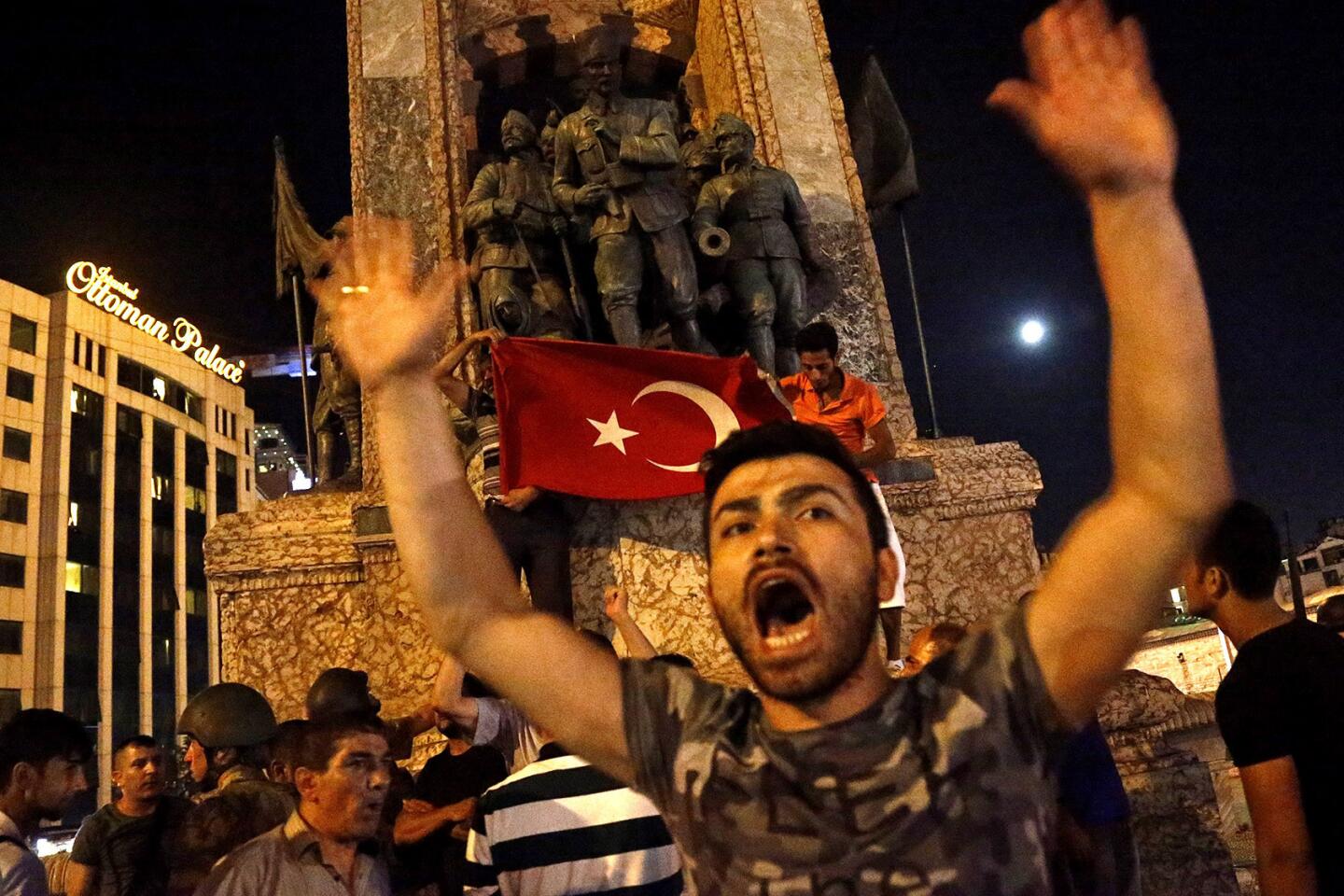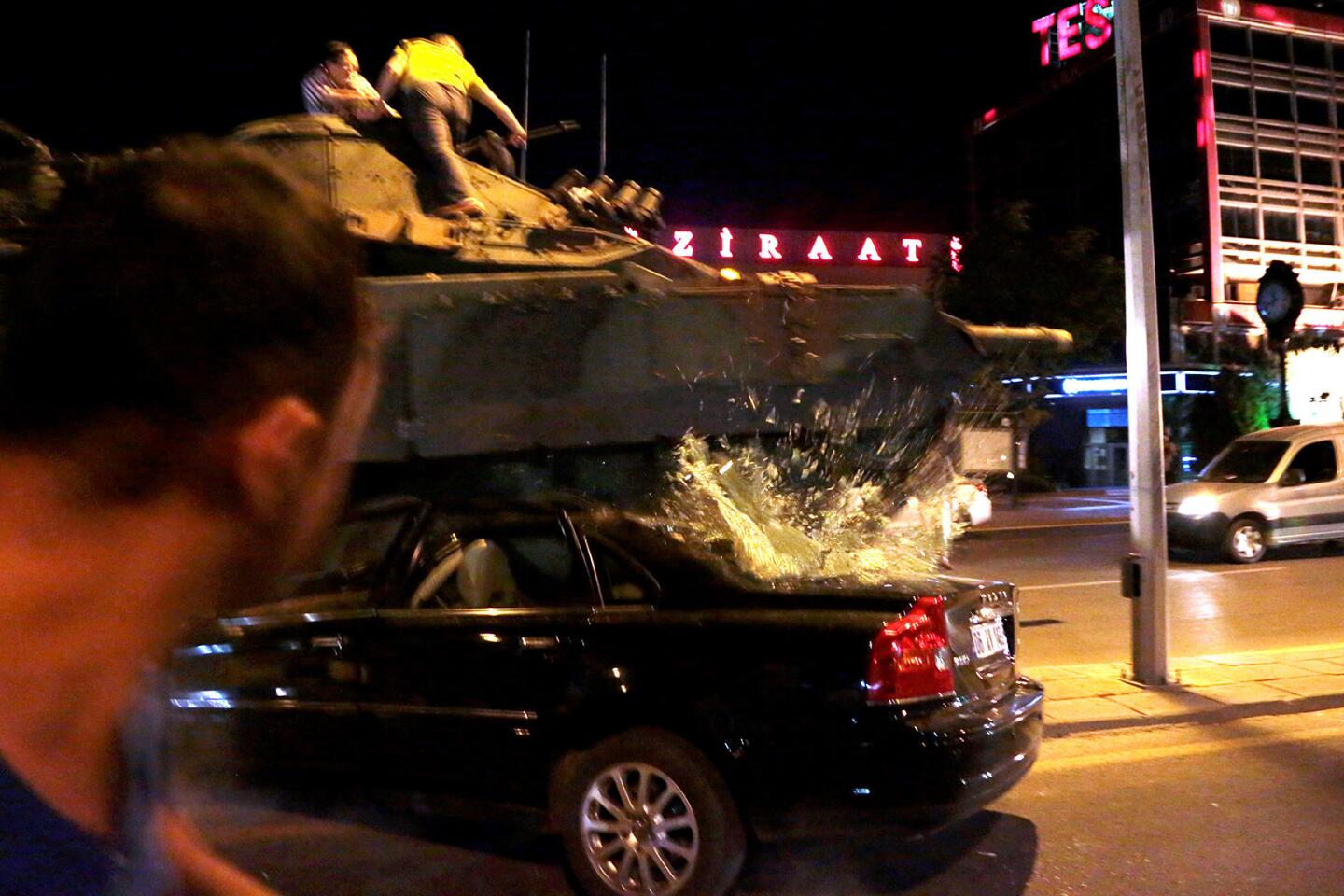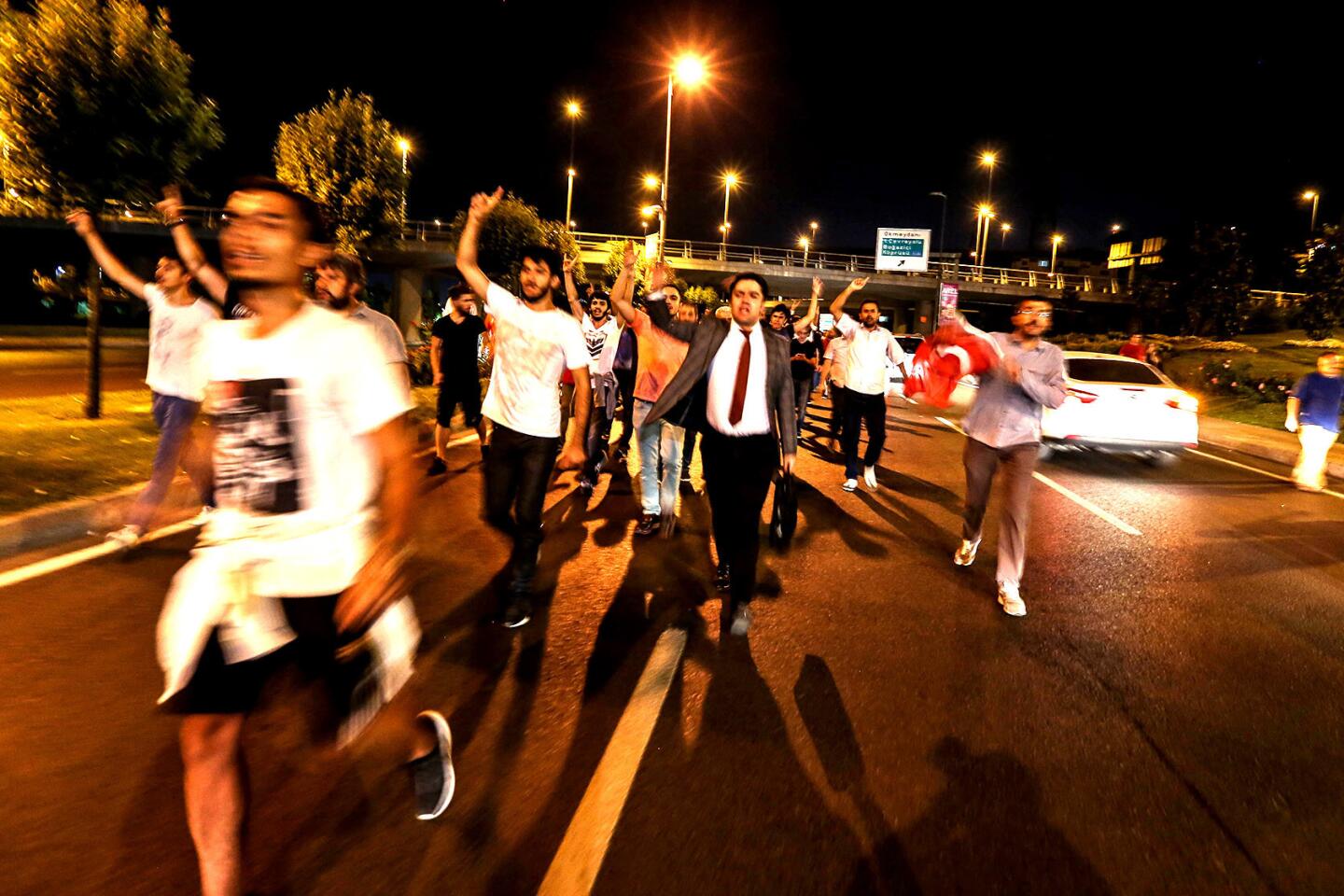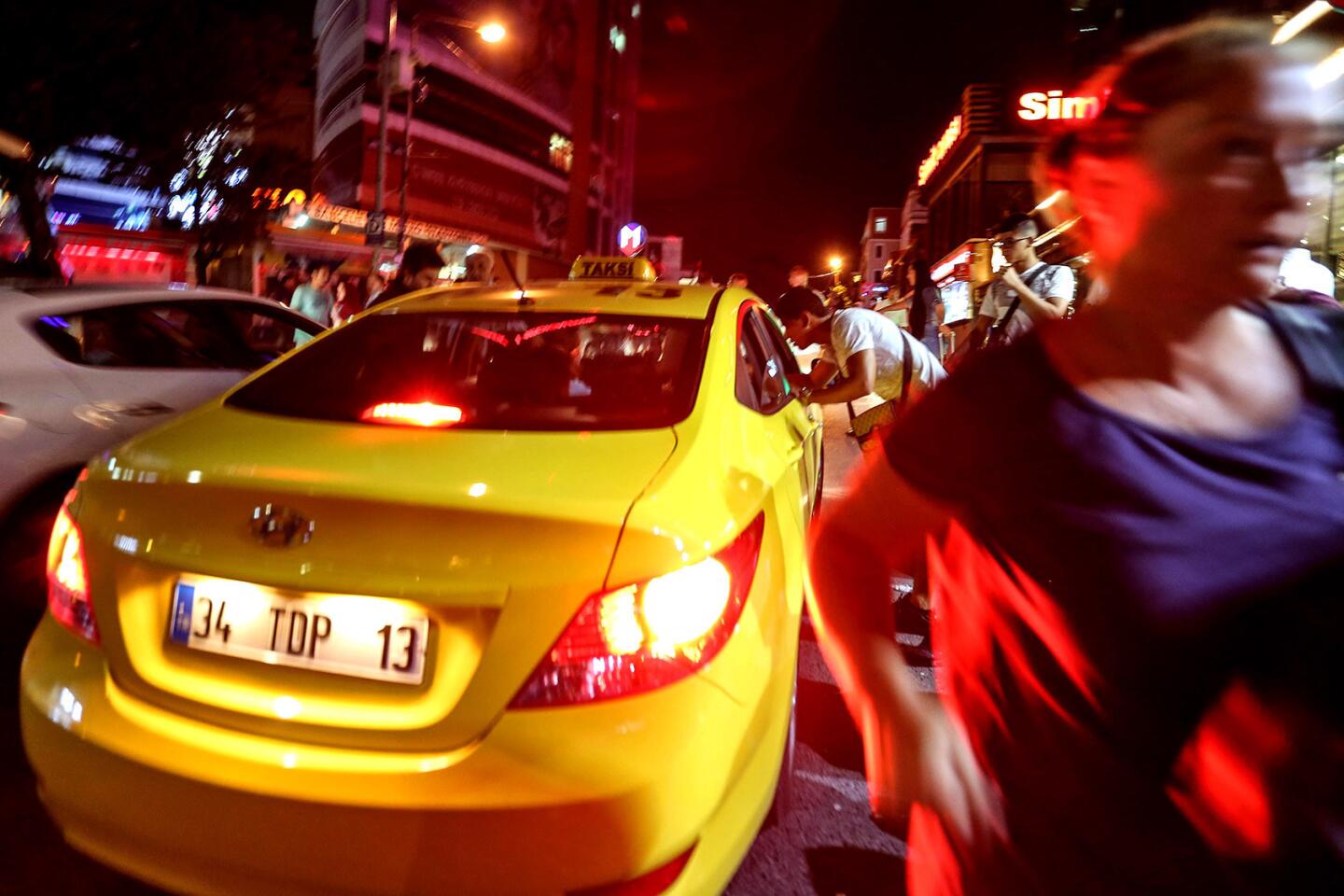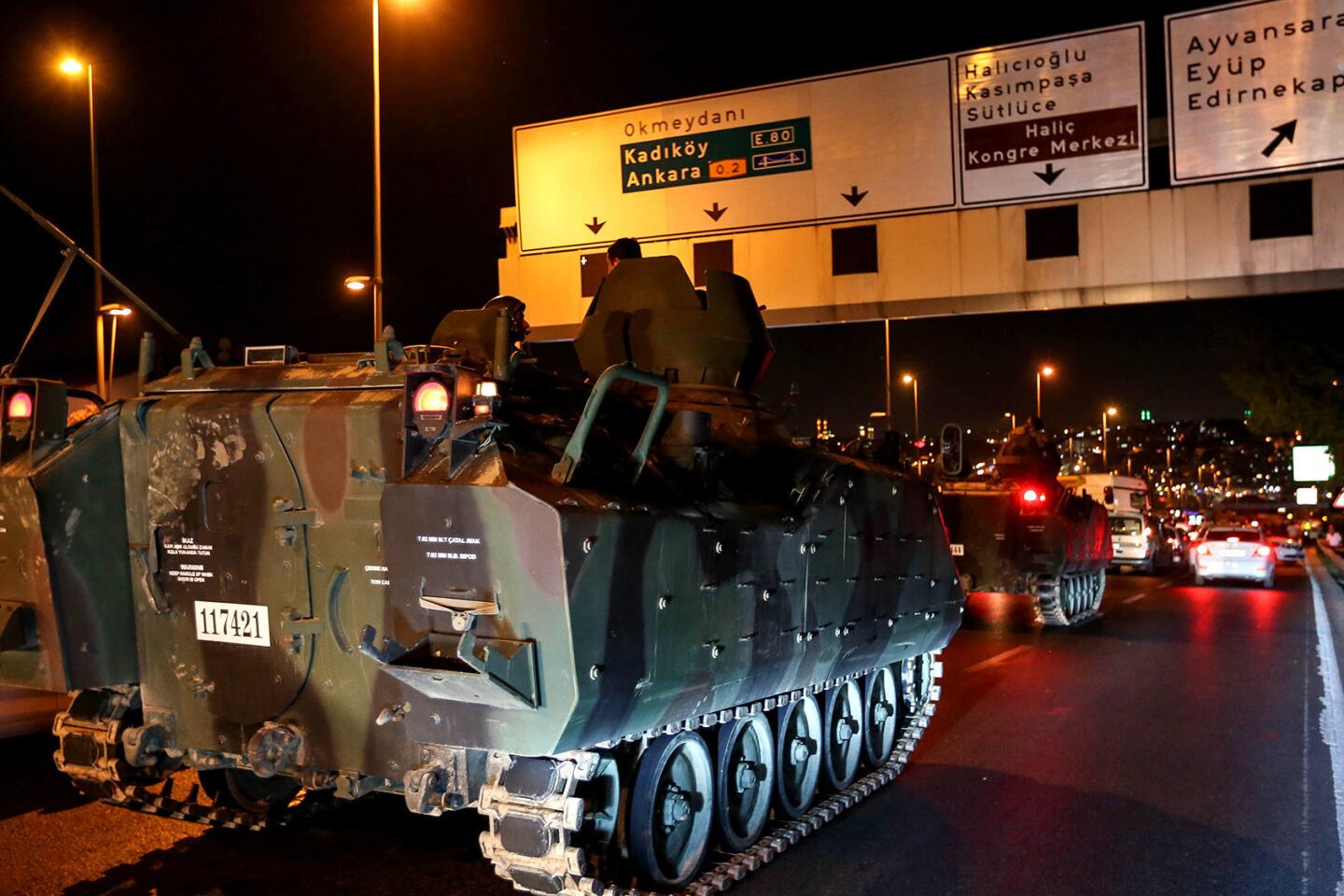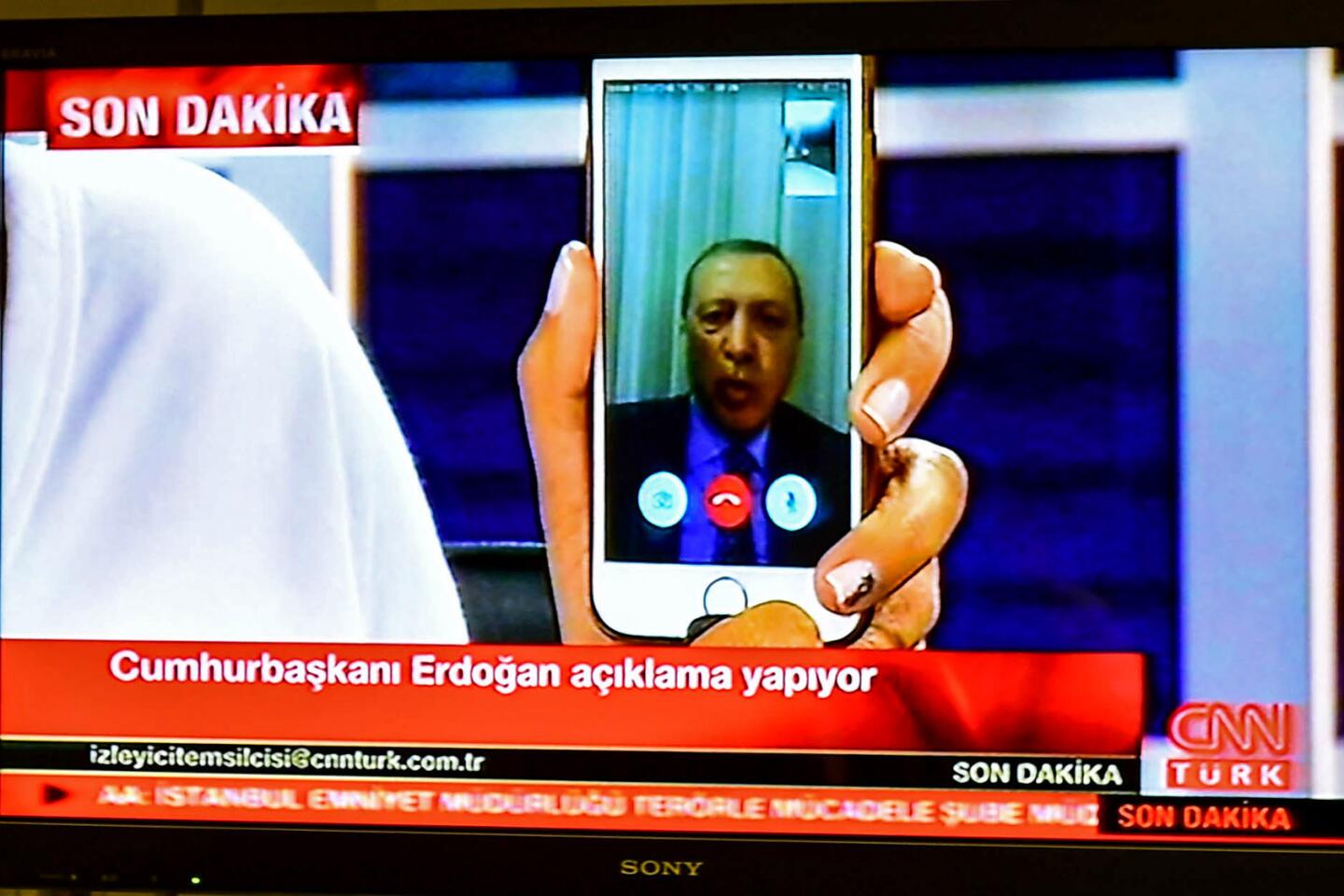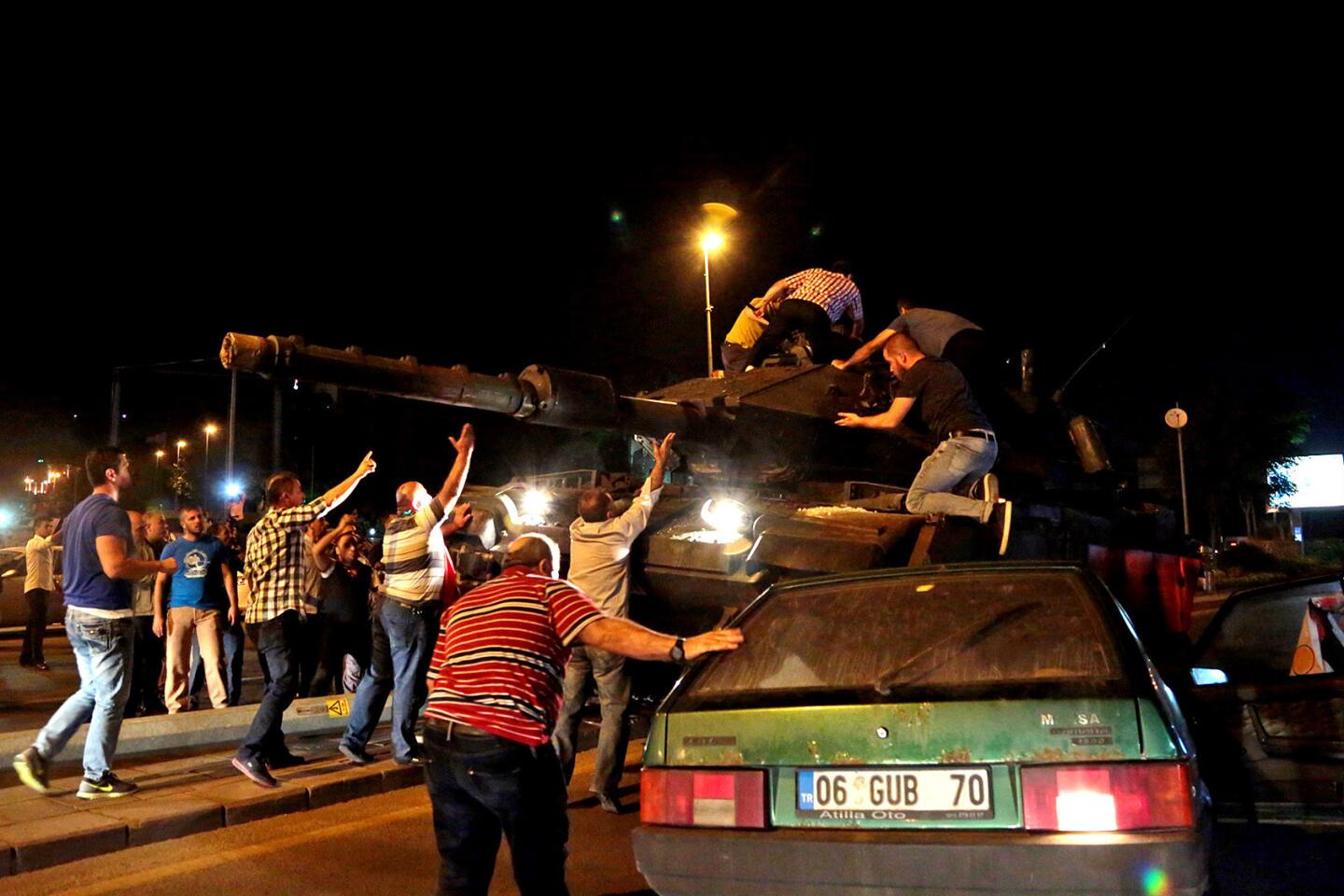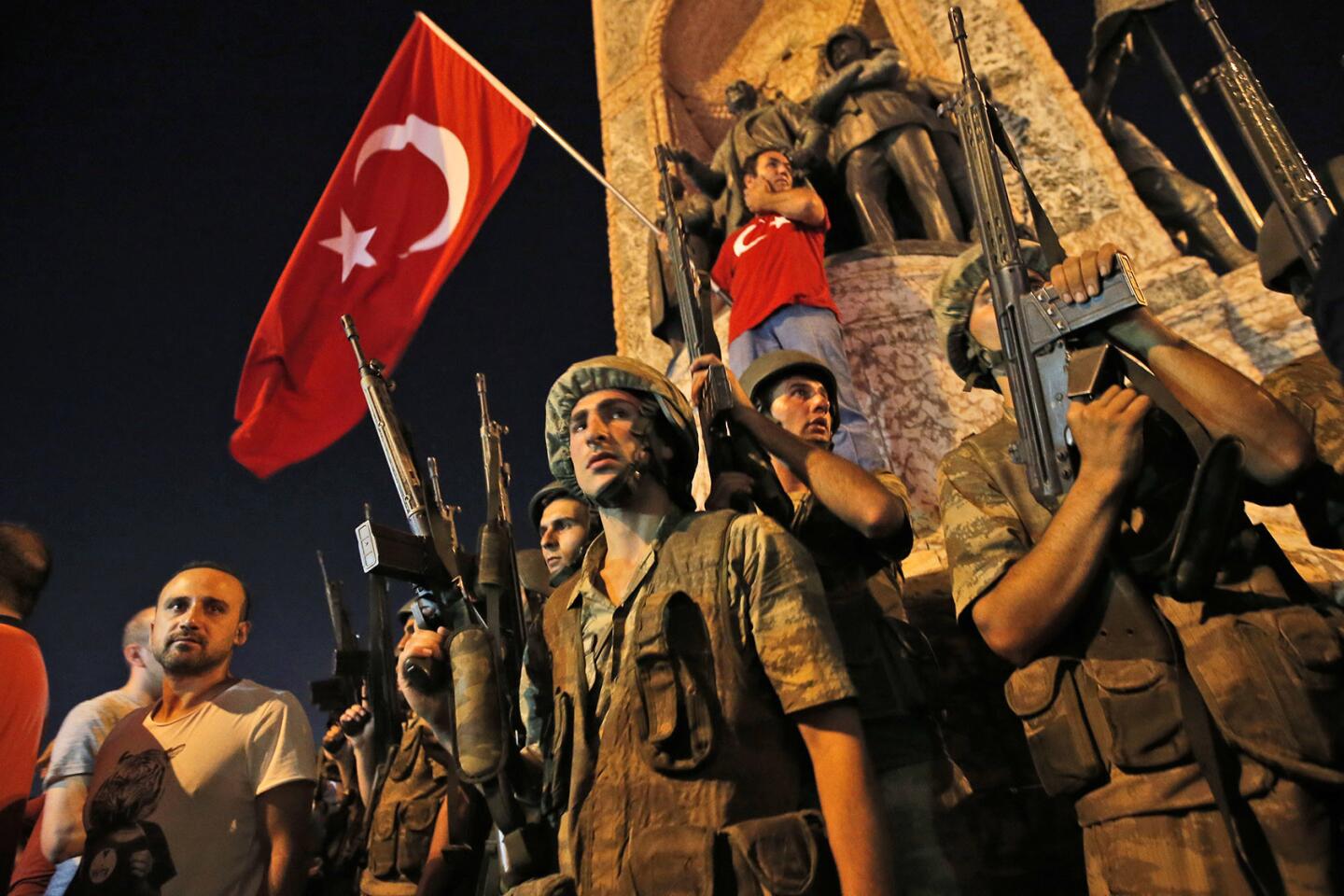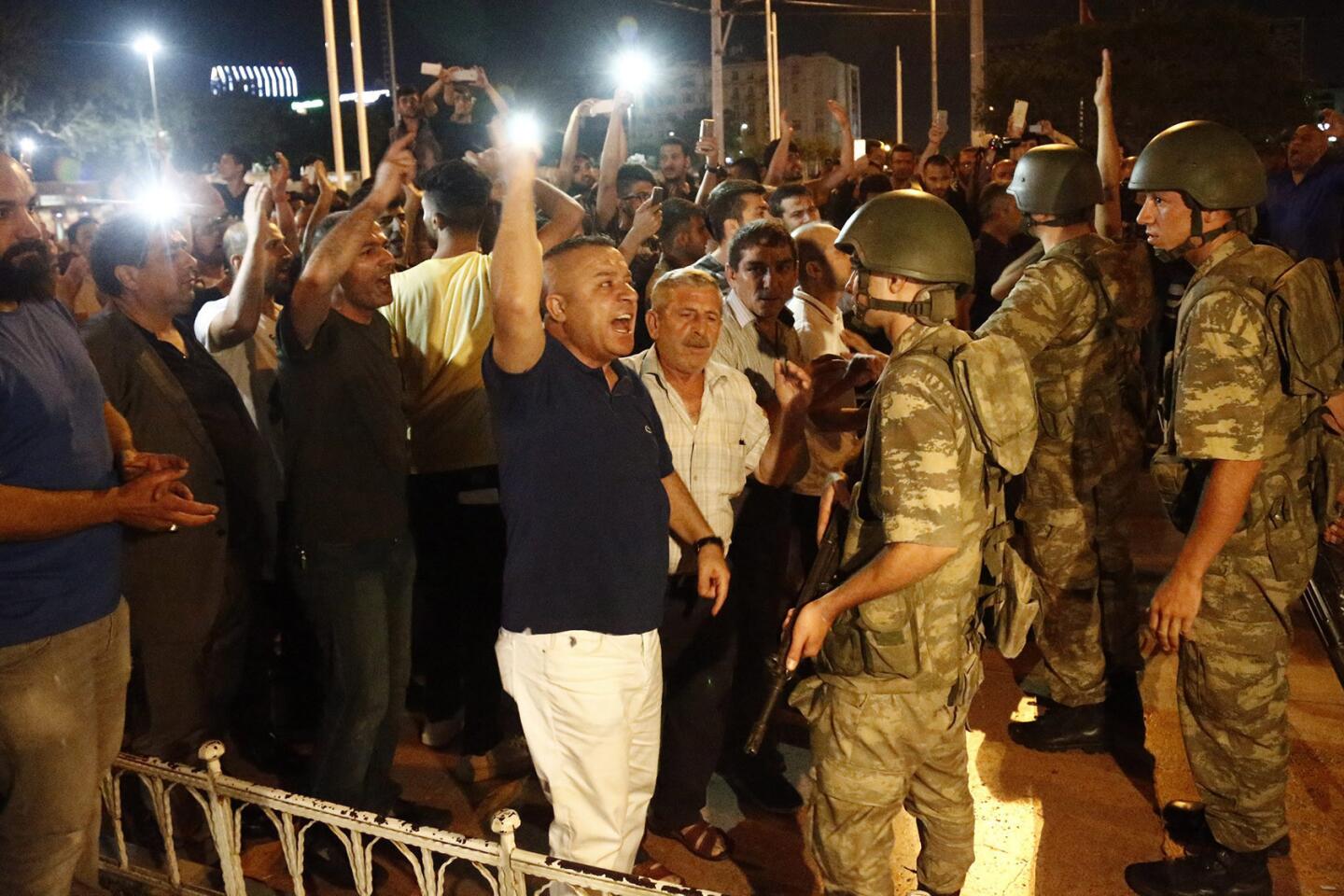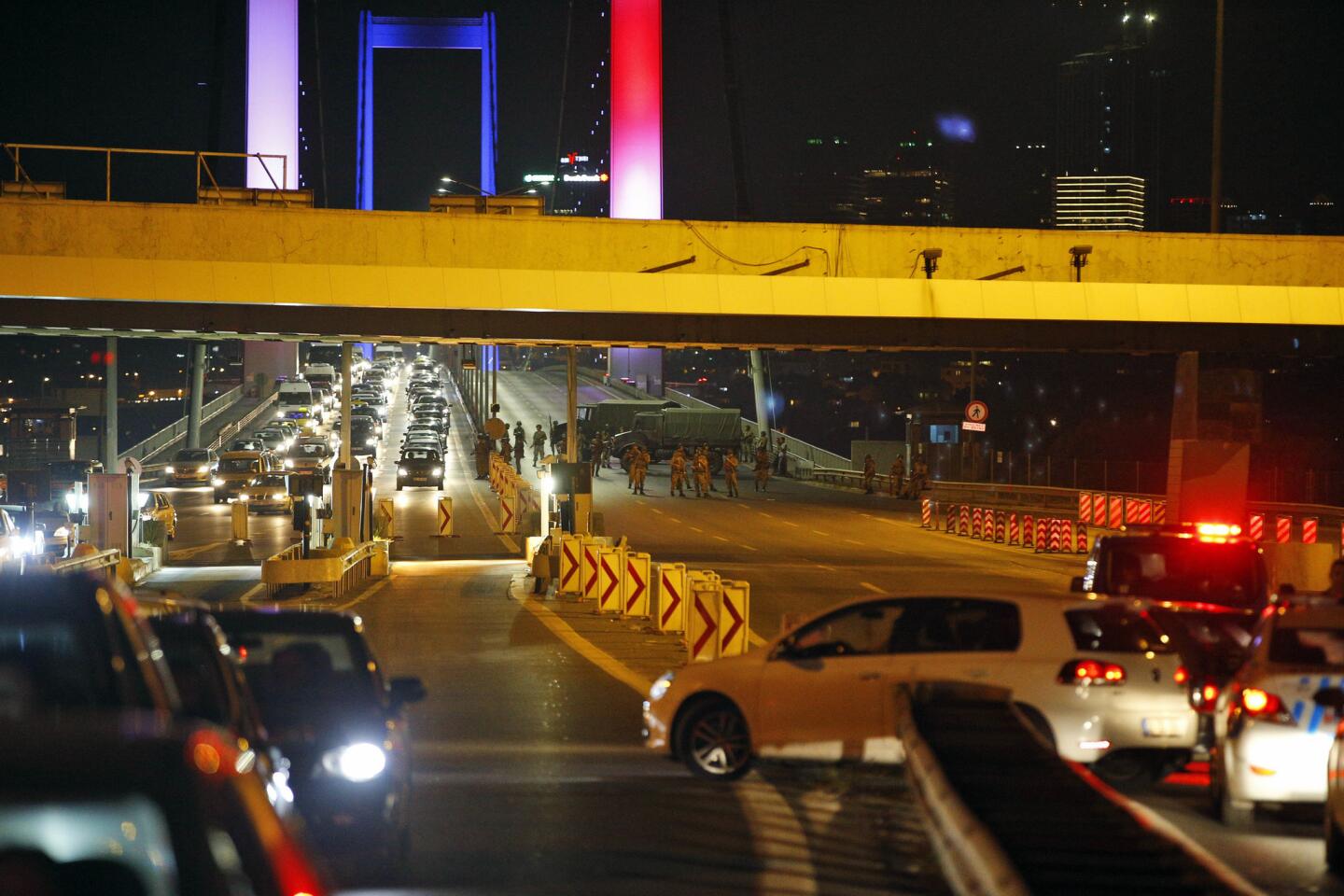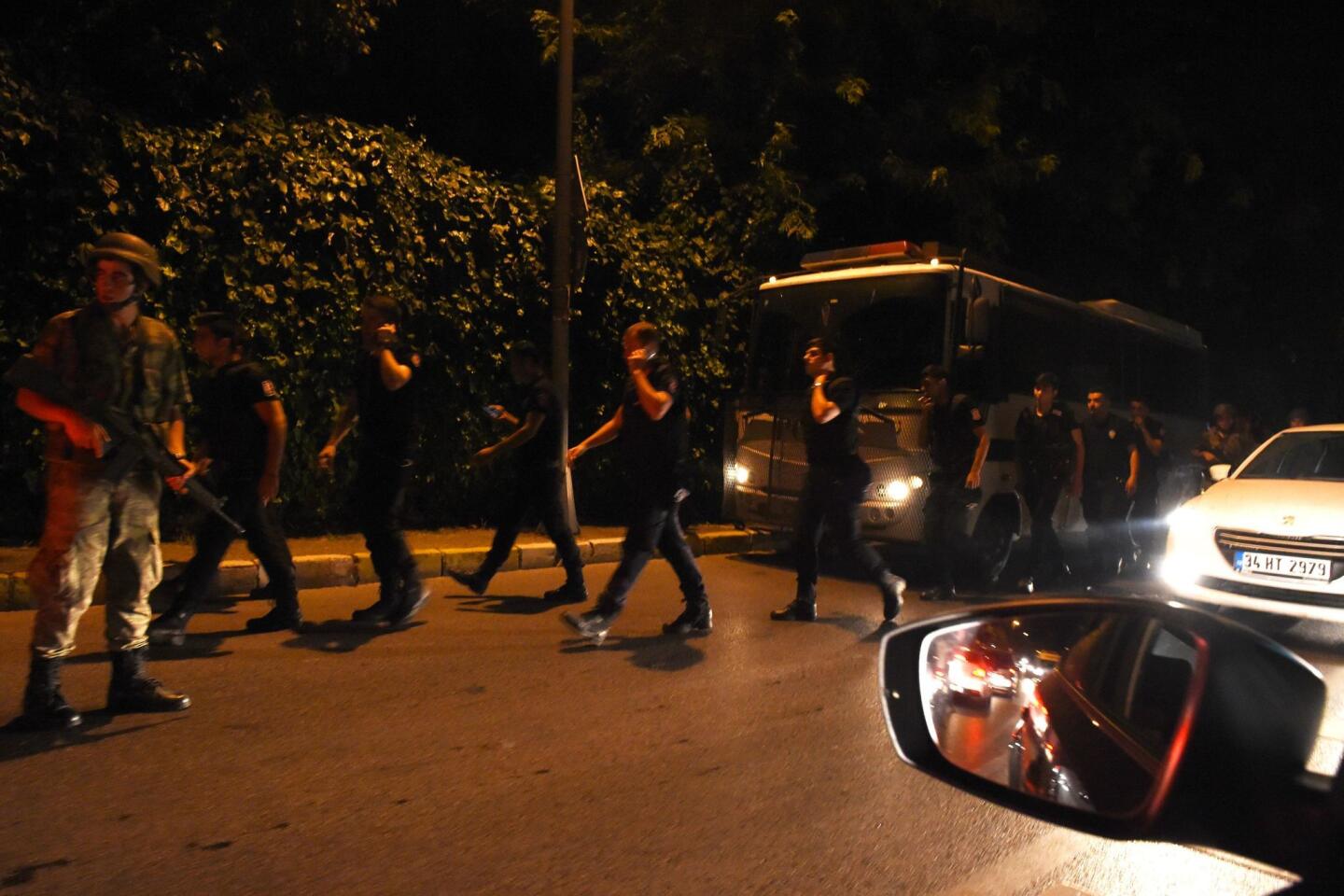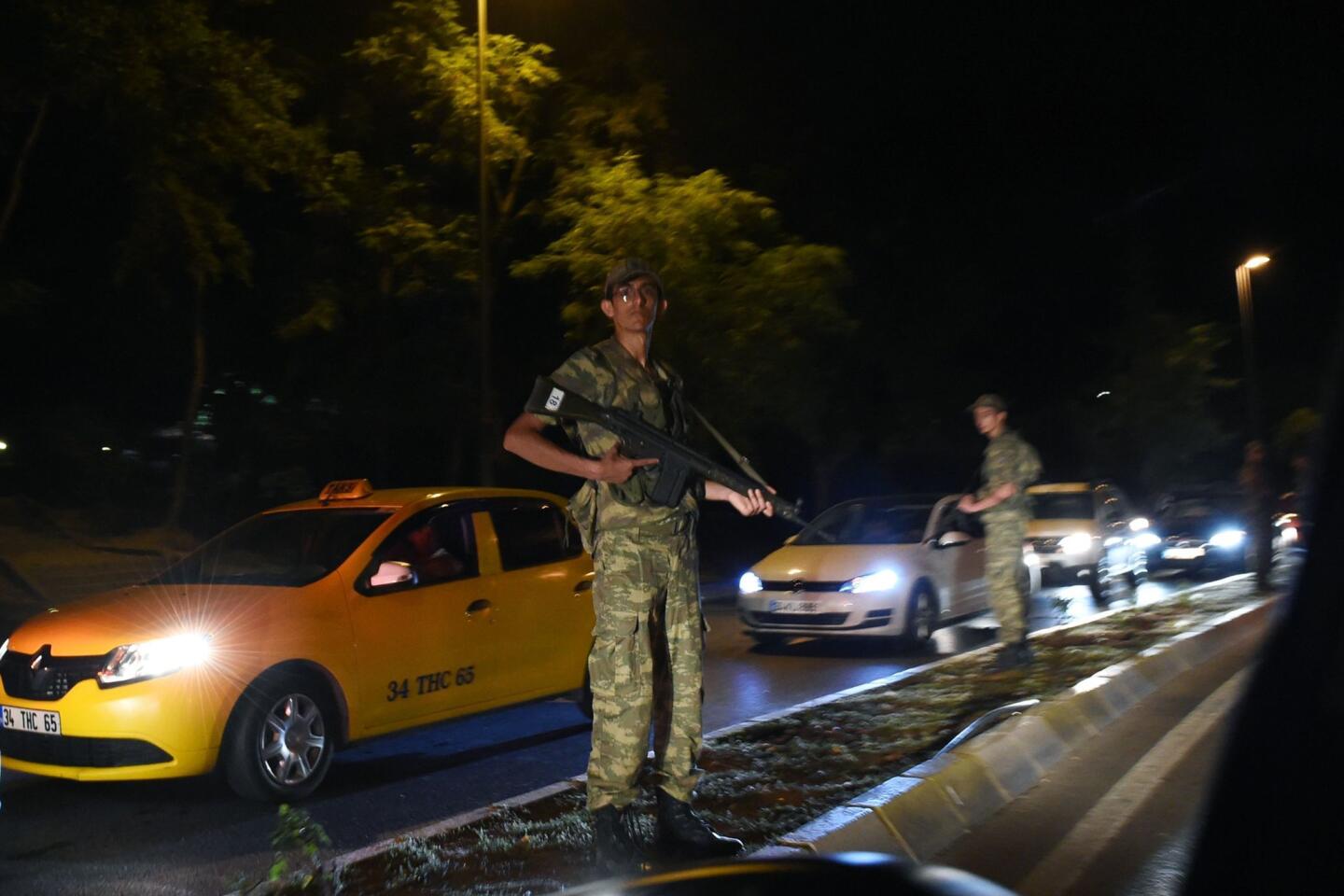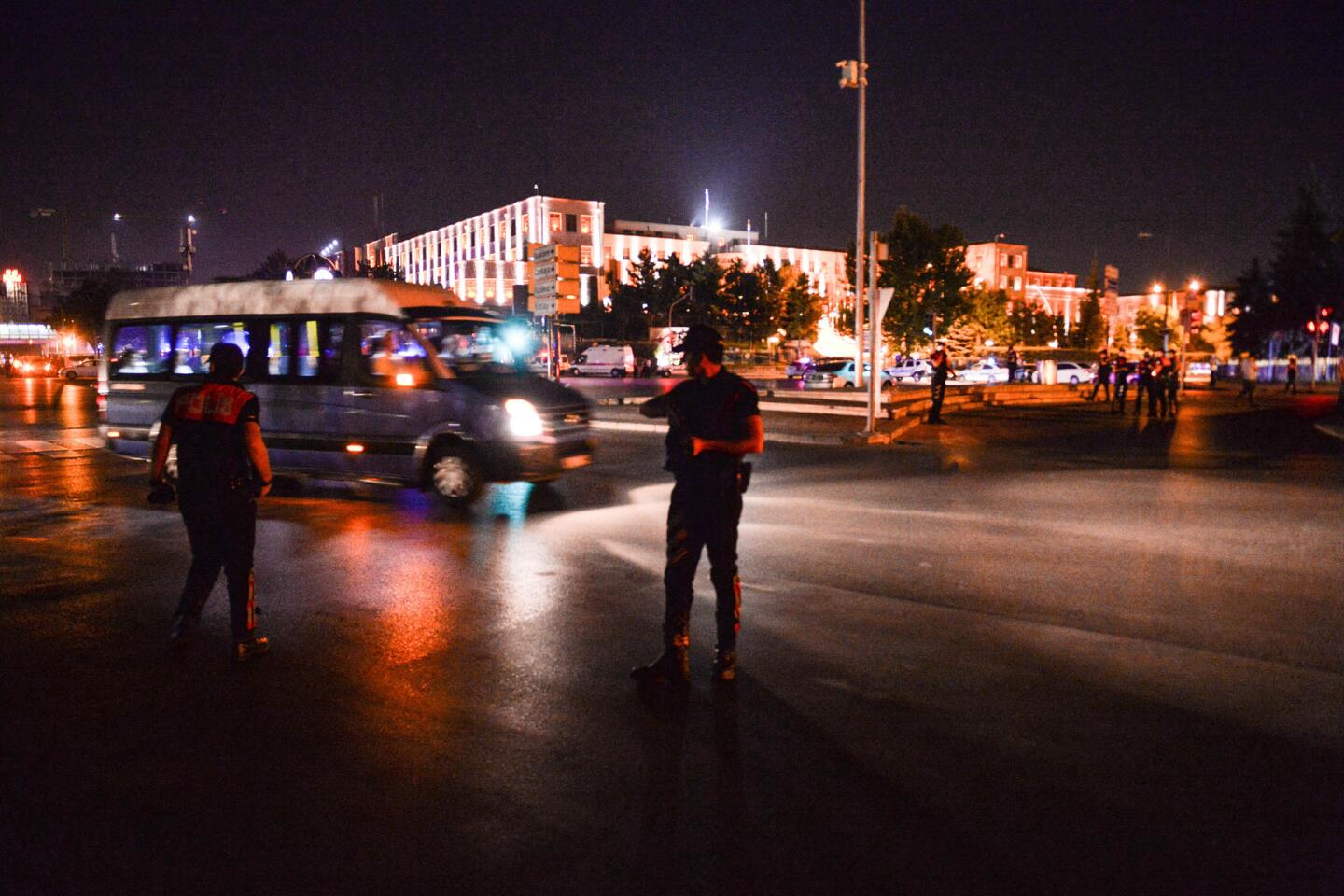After a night of clashes, Turkish president asserts that military coup has been defeated
Istanbul, Turkey â The Turkish capital was rocked by violent clashes overnight as the government fought back against a military coup, but authorities said Saturday they had managed to stave off a rebellion that has plunged one of the United Statesâ most important NATO allies into chaos.
Turkish President Recep Tayyip Erdogan on Saturday called the coup attempt âan act of treason,â and Turkeyâs army chief of staff said the plot was carried out by a militant faction within the armed forces.
âTurkey has a democratically elected government and president. We are in charge and we will continue exercising our powers until the end,â Erdogan said after landing in Istanbul.
At least 160 people, including 104 plotters of the coup, were killed in attacks in Ankara, and 2,831 members of the armed forces have been arrested, government authorities said.
The coup attempt began late Friday, when a statement from the military was issued proclaiming that it had seized control of the country âto reinstall the constitutional order, democracy, human rights and freedoms.â
But by Saturday morning, Turkish television was showing images of soldiers who had participated in the takeover attempt surrendering, and Prime Minister Binali Yildirim told broadcaster NTV that the country was âlargely under control.â
The president had been unable to return to Ankara on Friday from the seaside resort where he was vacationing because rebels controlled the airspace around the capital and instead flew to Istanbul.
While the government appeared to be consolidating control in Istanbul, the situation remained more uncertain in the capital.
The chaos enveloping a country that is a NATO ally, regarded as pivotal in the fight against Islamic State militants, boded ill for a region already roiled by violence. Both NATO and the U.S. administration were watching late-night and early morning developments with something close to alarm.
Secretary of State John F. Kerry said in a statement that the Obama administration viewed the situation âwith gravest concern,â and said he had spoken with his Turkish counterpart and voiced U.S. support for the elected Turkish government. NATO Secretary-General Jens Stoltenberg, calling Turkey a valued member of the alliance, called for âcalm and restraint, and full respect for Turkeyâs democratic institutions and its constitution.â
Both the Bosporus Bridge and the Fatih Sultan Mehmet Bridge, which connect Istanbulâs European and Asian sides, were closed to traffic on Friday, blocked by tanks, and gunfire erupted at one point when citizens protesting the coup attempted to cross.
In Ankara, a bomb exploded at the parliament building, the Anadolu news agency reported, and Erdogan said rebel bombs targeted the seaside resort hotel where he was thought to be vacationing.
Diego Cupolo, an Italian American photographer living in Ankara, described the scene there Saturday as, âmassive, massive death. Everybody is stressed. Thereâs a lot of broken glass and people are scared.â
He said jets had been circling the city and dropping bombs. Overnight, he said, âI heard people coming around with megaphones calling people into the streets: âCome support your country!â It was an organized effort to support Erdogan.â
A local imam could be heard praying all night, he said.
Recent months have been filled with turmoil across Turkey. Violence from Syriaâs multisided war has increasingly spilled across the Turkish border, with the government blaming Islamic State for a deadly attack last month on the main international airport in Istanbul.
Turkey was also at the center of a migrant crisis that boiled over last summer when thousands of refugees used it as a springboard for the short crossing to Greece, although measures by the European Union have since stemmed that flood.
In a fast-developing and turbulent series of events, tanks and soldiers blocked the entry to the main Istanbul airport, and incoming flights were turned away as outgoing flights were halted.
Ankara appeared to be the epicenter of the uprising, with repeated explosions hitting outside the parliament building and gunfire ringing out. After midnight, two fighter jets ripped low through the sky, their afterburners creating a deafening racket.
A statement attributed to the powerful military declared that the army had seized control in order to âensure that the rule of law once again reigns in the country.â
The military has been a traditional bastion of secularism, while Erdogan, initially considered politically moderate, has taken an increasingly strident Islamist stance since his rise to power in 2002.
Prime Minister Binali Yildirim said what he called limited elements of the military had failed to wrest control of the government.
Speaking to Turkeyâs private NTV television, he characterized events as a coup âattemptâ by âcertain groups who took arms entrusted to them by the state and pointed them toward the state.â
In Ankara, hundreds of bearded men â backers of Erdogan â walked along a main boulevard toward the prime ministerâs office, waving Turkish flags and chanting, âGod is great!â One marcher called the situation a âmini-war,â and another denounced the attempted overthrow.
âThe people are resisting,â said the man, who gave his name as Adnan.
But opponents of the Turkish leader were out on the street as well. One man who identified himself as Engin Zengin used an obscenity to describe the Islamist-leaning president. âHe wanted to make Turkey like Iran, to make us all Islamic fundamentalists,â he said.
The turmoil was reminiscent of coups that rattled Turkey from the 1960s to the 1990s, but Erdoganâs ruling Justice and Development Party, or AKP, had managed to instill a sense of stability in recent years. Human rights groups and Western governments, though, have expressed deepening concern about a continuing erosion of rights and harsh measures by Erdogan to muzzle dissent, stifle the media and bolster his personal power.
The Turkish leader has also launched a punishing war on Kurdish separatists, deeming them a far more dangerous threat than the jihadists of Islamic State.
It was several hours before the president was able to take to the airwaves to denounce the attempt by what he called a âminorityâ of the Turkish military to take power. For a man who up until now controlled most of the countryâs news media, he was reduced to communicating with CNN Turk, a television channel he considers to be an opponent, through the Facetime mobile app.
âThey will pay the price, the highest cost at the end,â Erdogan vowed.
The U.S. Embassy in Turkey issued an alert in response to the violence warning Americans to shelter in place.
A visiting California academic in Istanbul, David Selim Sayers, reported that he had seen stores shutting their doors, people rushing for their cars, and long lines outside corner stores and ATMs. In a dorm at Bosporus University, where Sayers is a guest lecturer, he said there was a rush on a vending machine selling Oreo cookies.
âWe donât know how itâs going to go,â said Sayers, who teaches at San Francisco State University, âbut people are preparing for the worst.â
A military faction calling itself the Peace at Home Council appeared to be spearheading the uprising. The group accused the president of destroying constitutional order and undermining the secular democratic state. The groupâs name evokes a phrase used by Kemal Ataturk, modern Turkeyâs founding father.
Erdogan blamed the uprising on Fethullah Gulen, a retired Islamic cleric and former political ally who once had a sizable following in the Turkish police, judiciary and military.
The president has purged the police and judiciary of reputed Gulen sympathizers over the last two years, and had been due to hold a meeting of the body overseeing the military, the High Military Council. There were reports he was planning to oust anyone still linked with Gulen.
Gulen, whose movement denied any involvement, now lives in exile in Pennsylvania, and Erdogan has tried, thus far unsuccessfully, to obtain his extradition to face allegations of supporting terrorism.
By Saturday morning, it appeared that Erdoganâs government was consolidating control, but Cupolo, the photographer living in Ankara, was not convinced. He wasnât venturing outside yet.
âWeâll just have to see in the next few hours and days,â he said. âThis could go any way âŚ. Whatever happens is probably going to change the trajectory of this country.â
Times staff writer King reported from Washington and special correspondents Johnson from Ankara and Gutman from Istanbul. Times staff writers Molly Hennessy-Fiske in Houston and Marisa Gerber in Los Angeles contributed to this report.
ALSO
French anti-terror unit seeking clues to Tunisian truck driver in Nice attack
Four years of terror: 278 people have died in recent terror attacks in Europe
Obama says Republicansâ idea for Muslim ban is ârepugnantâ
UPDATES:
7:10 a.m., July 16: The article was updated with a witness from Ankara and an updated death toll.
9:35 p.m.: The article was updated with a witness from Ankara and a revised death toll.
8:40 p.m.: The article was updated with reporting of additional clashes in Ankara and deaths.
7:10 p.m.: This article was updated with new information about Erdoganâs return to Istanbul and additional comments.
5:15 p.m.: This article has been updated with reaction and analysis.
4:25 p.m.: This article has been updated with Times reporting.
3:55 p.m.: This article has been updated with news about soldiers firing on protesters.
3:20 p.m.: This article has been updated with news about explosions.
3:05 p.m.: This article has been updated with comment from Turkeyâs president.
2:55 p.m.: This article has been updated with more details.
2:35 p.m.: This article has been updated with a statement from Russiaâs foreign minister
2:10 p.m.: This article has been updated with a statement from a Turkish news agency.
1:35 p.m.: This article has been updated with additional details
This article was originally published at 1:20 p.m., July 15.
More to Read
Sign up for Essential California
The most important California stories and recommendations in your inbox every morning.
You may occasionally receive promotional content from the Los Angeles Times.
